50 Incredible Weight-Loss Transformations You Just HAVE To See
When every day is #TransformationTuesday 💪.
If you’re like any of the women in these incredible weight-loss transformation stories, you’ve struggled with hitting walls while trying to drop pounds and, at least once or twice, felt the temptation to throw in the towel on the whole d*mn thing. That just means you're human.
Most of the weight-loss warriors here tried multiple avenues, from going vegan to intermittent fasting to at-home Pilates workouts, before finding the methods and eating regimes that worked with their lifestyles. And part of their success was being realistic about what was achievable in the long run. Take it from one wise woman: "I promised in the beginning that I wouldn’t want to eat or do anything while losing weight that I wouldn’t want to eat or do once I hit [my] goal, even if that meant it took a little bit longer," says @ashleys_officially_lost_it.
Finding a workout routine you love can also help keep you on track throughout the ups and downs. As one woman, @kaitlynesse, says, "Truly all of my weight loss came from working out to feel better and not to look a certain way. I just found this passion for it weightlifting I never had before," she says, noting that lifting helped her fight through a bout of depression after a breakup.
Together, these powerful women lost more than 4,000 pounds—and gained so much strength along the way—which you’ll see in these dramatic before-and-afters. Take them in as needed to stay focused, inspired, and invested in your journey toward achieving your own health goals. They did it—and so can you.
@kcantrell has lost 111 pounds since she started her journey in January 2019, and she credits Beachbody and 2B Mindset nutrition for her weight loss.
@jessmeetsthegym has lost over 130 pounds since July 2018 with consistent gym workouts and a new-found love for running.
By following a vegan diet and HIIT/circuit training, @iamrayysyymone has lost 100 pounds.
@jocelynthrivingfit has lost 166 pounds naturally following a "calories in, calories out" style of dieting and regular exercise.
@laurieforpresident is down 200 pounds after weight loss surgery in 2018. She keeps a food diary and tracks her macros.
Now a personal trainer, @jessmakesgains has lost over 150 pounds naturally by doing carb cycling and strength workouts.
@a.little.less.shannon is down 107 pounds naturally by following a "lazy" keto diet .
@tay_getting_fit has lost 114 pounds naturally thanks to running and using the fitness app Shreddy. She also cut out red meat.
@familytofunsize has lost an *incredible* 233 pounds after gastric bypass surgery in 2017 that kickstarted her transition to a low-carb, low-sugar diet.
@watchpeggyloseit has lost more than 150 pounds naturally in 13 months by getting in 5 a.m. HIIT classes at the gym and tracking her calories in the MyFitnessPal app.
@keto_allie has lost more than 100 pounds since 2017 after starting the keto diet and incorporating running into her fitness regime. She ran her first 10k in September 2019.
After reaching a place of recovery for binge eating disorder, @debiluv4health has lost over 80 pounds since she started WW (formerly Weight Watchers) and regular gym workouts.
@alicutsmyhair has lost over 105 pounds by combining intermittent fasting and keto.
After years of yo-yo dieting, @ketowithdanni weighed in at over 400 pounds. She learned how to count her macros after finding the keto diet and has lost 102 pounds in the process.
@chip0ltay described herself as a closet eater before joining WW (formerly Weight Watchers). Now, she's lost 109 pounds.
@jasminelosingit lost over 120 pounds after doing Jillian Michaels workouts and starting the 21-Day Meal Plan.
@thepaleopharmacist transformed her body after going on the paleo diet and eventually the carnivore diet. She's lost over 90 pounds.
After struggling with emotional eating for years, @alliedoesketo discovered the keto diet and added in 16:8 intermittent fasting. She's lost over 80 pounds.
@just_you_weight lost 106 pounds in just over a year naturally by using MyFitnessPal to 50 percent fruits and veggies, 25 percent protein, and 25 percent whole grains.
@kickinitwithlauren lost almost half of her body weight (a total of 120 pounds) in about two years with the help of a vertical sleeve gastrectomy (VSG) surgery and a love of lifting weights.
@cake_2_5k used WW (formerly known as Weight Watchers) to help her lose 90 pounds after struggling with postpartum depression after she went through a devastating miscarriage.
@regan_patterson lost 80 pounds by starting to count her macros and calories and getting back into strength training. Her fave workout now? Weight lifting.
@keeshnicoletv lost 94 pounds after she started meal prepping and doing light workouts, which turned into a serious passion for running.
@stellaisstriving lost 243 pounds—more than 42 percent of her starting body weight—by overhauling her eating habits with the keto diet and focusing on fat loss (not just losing pounds).
@_jens_journey_ started out doing keto but didn't feel that it worked for her, so she stuck with intermittent fasting, a sugar-free diet, and keeping her carbs down. She dropped more than 100 pounds—then gained back about 15 of those pounds to feel her healthiest, she previously told Women's Health .
It was WW that got @sweet_pea_leigh to a place of kicking her food addiction , which had been causing her to keep gaining weight as well as numerous body aches and pains. She's lost over 150 pounds.
The Couch to 5K app was hugely transformative for @lizzy_rockz—soon after hopping on the app, she started triathlon training and subsequently ran four marathons. Meal prepping with lots of protein and few carbs was huge for her, too, in her journey to lose about 150 pounds.
@rachellsharp93 went down a little more than 100 pounds, starting with her own version of alternate-day fasting , consuming small amounts of food in between days, and then segueing into another type of intermittent fasting.
Down about 220 pounds, @losing_for_health started out doing keto, then continued to count her macros with a free online calculator.
Originally through gastric bypass surgery , @kathleeng1112 shed 179 pounds, but she kept it up by eating tons of protein and few carbs. She stays active with Pilates, yoga, and at-home workouts.
@gessisfitnessjourney hit her goal of losing 124 pounds first by trying going vegan, then vegetarian, and low-carb, but she ultimately succeeded by tracking everything—calories, steps—on her Fitbit .
It was a combination of keto and intermittent fasting that helped @gritandgrace__ lose more than 50 pounds and her status as prediabetic. Once she cut out sugar, her PCOS symptoms were more manageable, too.
@hannah_day28's big turnaround came from BeachBody toning workouts . She also began practicing clean eating and portion control. She still eats buffalo chicken, but in a zucchini boat rather than fried.
She started out with VSG surgery , but @cam_bree_uhhh kept off 148 pounds by eating a vegan diet. She now belongs to two different gyms to stick with her love of weight lifting and doing circuits.
@carlywontquit lost 108 pounds with a strict policy of no added sugar , even in her coffee. She's also a cardio fanatic and can't get enough of Zumba or Total Body Pump.
Realizing the power of a nutritious home-cooked meal turned @_iwokeupinbeastmode;s nutrition around, helping her to lose a total of 130 pounds. She started out tracking every macro, but after hitting her goal, she stopped counting calories and focused on just eating clean instead.
@laurenlosing did VSG surgery in 2013 as a tool to change her lifestyle. She kept going with eating a high-protein diet, counting macros, and weight lifting.
A new-found love of lifting heavy was a major transforming factor for @kaitlynesse. She lost 80 pounds in about a year, focusing on squats and deadlifts, which she says made her feel strong and powerful. She also put on about 10 pounds of solid muscle in the process.
Keto and kickboxing were the power duo for @thestairlady. She went down 100 pounds in a year without giving up her favorite food, pizza.
@tashpointo's weight-loss journey started with VSG surgery. She continued to drop 150 pounds through the keto diet, and then a general low-carb eating plan. She also supplemented with a hot-yoga routine to help with her anxiety and started running and amping up her core workouts, too.
Struggling with symptoms of both PCOS and IBS, @get_moefit first cut carbs and started going beast mode in the gym, and then worked with a nutritionist to do an elimination diet. She cut out some cruciferous veggies that bothered her, as well as beef and pork (but kept other types of lean meat) to reduce GI issues and lose 80 pounds.
Starting with gastric-sleeve surgery, @gi_sciortino shed 120 pounds and kept it off with intense strength-training and HIIT workouts.
Counting calories with the My Fitness Pal app was a factor for @hayleysweightlossjourneyx to lose 70 pounds. "It was the simple science of tracking calories in vs. out, mixed with self-discipline and self belief," she says.
@wokeuplikedez dropped 150 pounds after having gastric-bypass surgery, and then continued the momentum with a high-protein diet. She kept consuming fewer calories and working out more consistently than she had in the past, too. And she's currently prepping for her second body building show.
In the beginning, @ashleys_officially_lost_it tried losing weight simply by counting calories, but she needed more accountability and support, she says. She jumped on the WW (formerly Weight Watchers) bandwagon and later became an ambassador in the midst of her 120-pound weight loss, which she's maintained for almost two years. Her transformation was mostly accomplished via healthier food swaps—she loves to make cleaner versions of favorite fast-food dishes, like a chipotle chicken avocado sandwich from Panera.
Down 80 pounds from clean eating and at-home workouts, @beast_girl_22 toned up using BeachBody Body Beast. She also made a major change in her eating routine: switching from eating three healthy meals a day to eating smaller healthy meals every two to three hours, with lots of water.
After dealing with postpartum anxiety, @getfitwithmeliss discovered Andy Frisella's 75 Hard mental toughness program and lost 20 pounds. In total, with the help of calorie counting, she lost 64 pounds.
@thisiswhitneyburk struggled with my weight my whole life until she started following a pescatarian diet and doing Beachbody workout programs and lost 66 pounds.
@rose_vibes19 followed the keto diet and cut out sugar and alcohol for weight loss and lost over 60 pounds.
@shrinkingbyfaith committed to eating a plant-based keto diet and got into Peloton and Rebounder workouts to lose 60 pounds.
@shiannesmithfit used Beachbody workouts and the portion control-focused eating plan and calorie counting to undo pregnancy weight gain and lost 100 pounds.
After struggling with her weight my entire life, @nishafitness learned how to make my favorite meals using healthier ingredients and started doing HIIT cardio and strength training and lost 103 pounds.
@justdreampaige struggled with her weight for her whole life until she cut out junk food, starting following a Mediterranean diet, and began running and doing Zumba workouts and lost 105 pounds.
After a back injury, @bl11hannah gained weight rapidly. She went on The Biggest Loser and started eating a low-carb, low-sugar PCOS diet and walking for weight loss, as well as incorporated strength training and HIIT, to reach a healthy weight.
@dmarie_rochelle practiced portion control and did low-impact cardio, like walking and hiking, for weight loss after her C-section and lost 72 pounds.
@megans.mission tried Weight Watchers, followed by intuitive eating, and Orangetheory Fitness workouts to lose 100 pounds and keep it off.
@beginwithbri tried intermittent fasting and YouTube Workouts and lost 120 pounds during the pandemic.
@kaila_a_duncan struggled with her weight until she decided to get in shape for her wedding by meal prepping, doing Tone It Up! workouts, and indoor cycling, and lost 85 pounds.
@kayfit_rusiecki stopped drinking and started keeping a food journal to develop a better relationship with food, lifted weights, and lost 70 pounds.
@findingabs11 struggled with her weight her whole life until she started Weight Watchers (WW) and food tracking with iTrackBites, and began to understand portion sizes. She lost 80 pounds with her new eating style and indoor cycling at CycleBar.
@sim_on_ww used WW and walking for weight loss 5 days and lost 123 pounds in 18 months .
After years of yo-yo dieting, @imjustshica tried 16:8 intermittent fasting and began walking for weight loss and lost 102 pounds.
@so_damthicknbad cut out processed foods and did sprinting workouts and fitness boot camps to lose 85 pounds.
By using WW and the iTrackBites app and working out with an elliptical and Les Mills classes, @nomo.yoyo has been able to lose 80 pounds.
@vickinosecrets started eating a low-carb, high-protein diet and walking and doing YouTube workouts to lose weight and manage PCOS symptoms.
After gaining weight in high school, @hopebby_fit started a vegan diet and started lifting weights and doing cardio to lose 50 pounds.
By going keto, then switching to a less restrictive low-carb diet, and lifting weights, @_jerrseyyy lost 80 pounds in 10 months.

Emily Shiffer has worked as a writer for over 10 years, covering everything from health and wellness to entertainment and celebrities. She previously was on staff at SUCCESS , Men's Health , and Prevention magazines. Her freelance writing has been featured in Women's Health , Runner's World , PEOPLE , and more. Emily is a graduate of Northwestern University, where she majored in magazine journalism at the Medill School of Journalism and minored in musicology. Currently residing in Charleston, South Carolina, Emily enjoys instructing barre, surfing, and long walks on the beach with her miniature Dachshund, Gertrude.


Weight Loss
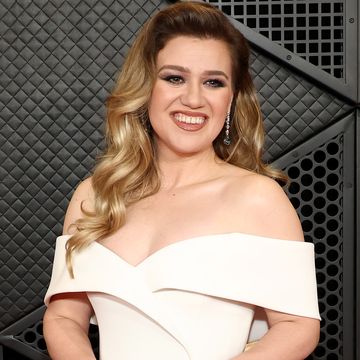
5 Ways To Speed Up Your Metabolism, Per Experts

Victoria Beckham's Diet: Is It Healthy?

Can Your Stomach Really Shrink? Doctors Weigh In
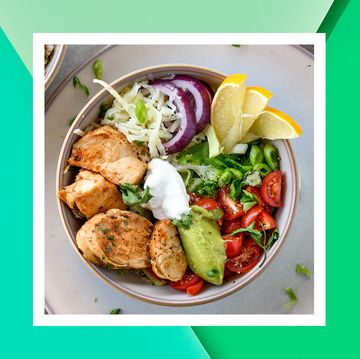
9 Best Keto Meal Delivery Services, Per Experts

All About Caroline Stanbury's Weight Loss
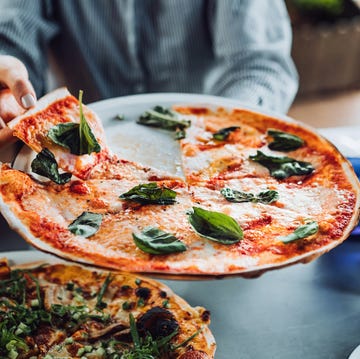
Should You Cut Carbs To Lose Weight?
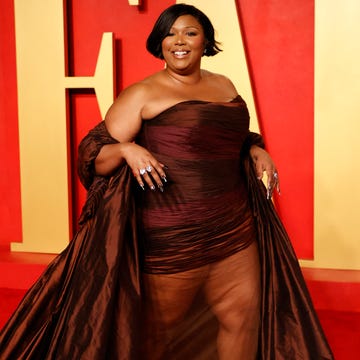
Lizzo's Weight Loss and Body Neutrality Journey

RHOA's Eva Marcille Opens Up About Weight Loss

Elle King’s Postpartum Weight Loss, PCOS Journey

How Mounjaro Helped Whoopi Goldberg Lose Weight

How To Calculate A Calorie Deficit For Weight Loss
- Search Please fill out this field.
- Newsletters
- Sweepstakes
- Special Diets
- Weight Loss
- Transformed
10 Lessons I Learned from My Weight-Loss Journey
I've kept 70 pounds off for more than 10 years. Here are 10 key lessons I've learned along the way.
Elizabeth Ward is a registered dietitian and award-winning nutrition communicator and writer. She has authored or co-authored 10 books for consumers about nutrition at all stages of life.
:max_bytes(150000):strip_icc():format(webp)/elizabeth-ward-2000-02e67fa239844547a8a14ab32548560e.jpg)
- 1. You've Got to Meet Yourself Where You're At
2. Never Eliminate Anything Completely
3. you can do anything you set your mind to, 4. your get-moving options are endless, 5. invest in your own personal wellness, 6. reward yourself for the small wins, 7. you will not be perfect, 8. water really is your bff, 9. the mental transformation is just as important as the physical.
- 10. If You Want Lasting, Permanent Change—It's about Your Lifestyle
From a young age growing up in the Connecticut suburbs, the number on the scale ebbed and flowed as my relationship with sport did as well. At age 14, I was a soccer whiz, running laps up and down the field feeling confident and great. Come 17, I didn't make the junior varsity volleyball team because I couldn't run a sub-10:00 mile, and my interests became a lot less active. As I leaned heavily into the arts and a local youth group, the pounds crept on. Despite feeling excited by my extracurricular activities, I began feeling self-conscious and uncomfortable in my own body.
This carried on to college, and like many, I gained the freshman 15—or perhaps the freshman 30 would be more accurate. In the spring of 2007, I was procrastinating studying for a final exam when I decided to step onto a dusty scale I had tucked under my bunk bed. After what felt like an eternity, waiting for the screen to populate, the number that glared back at me from the floor took my breath away. I was forced to come to terms with a harsh reality: I had to change. While I believe that people can find health at different sizes, I was definitely not healthy or more importantly, happy. I knew that making changes wouldn't be easy, but even so, I was ready to start.
Over the next three years, I lost 70 pounds through making healthier eating choices and learning to love running. Today, movement is my medicine, enabling me to better show up both personally and professionally. Now a nine-time marathoner, certified personal trainer and run coach, and wellness coach with her own podcast , I've learned a handful of lessons along my journey that empower me to give back to others and help them determine what wellness looks like for them. Here's what I learned during my personal transformation, plus some insight into why I feel like a forever work in progress.
1. You've Got to Meet Yourself Where You're At
Especially in the age of social media, it's easy to compare yourself to others. Your journey is just that: Yours. Instead of being made to feel like you're not good enough based on what you see someone else doing, focus on where you are and progress from there. This is important in all aspects of wellness, whether it's trying out a new strength training routine or shifting your eating habits. Just because you can't do a difficult movement like a dumbbell snatch, for example, doesn't mean you won't get there one day. Have some grace, embrace honesty, and the rest will come with time.
Many popular diets advertise cutting things out—at least in small portions—like complex carbs or sugar. When we eliminate things from our diet, it's almost guaranteed that we will crave them more. In my experience, I'd binge the very thing that I told myself I couldn't have. (The restrict/binge/repeat eating cycle has been confirmed in a 2020 Binge Eating article.) Instead of eliminating things from your life, the practice of moderation and portion control is a much safer alternative. It's a practice that truly helped me along my journey.
Instead of nixing my college's famous banana chocolate chip ice cream completely, for example, I let myself have a scoop on Fridays. When it came to indulging in Grandma's Sunday sauce, I made sure to also serve myself a hearty helping of salad in addition to the oh-so-good pasta bowl. By embracing the foods that made me happy in smart amounts, I was able to enjoy the process without feeling like I was missing out.
I really, really wanted to love running. But in the earliest stages, I felt as though I would never. I felt as though because I wasn't "good" at it (see the high school volleyball reference above), it would never be for me. Toward the beginning of my personal weight-loss efforts, I worked at a summer camp, without access to a typical big box gym. This really encouraged me to give running another hard try, as it was one of the few ways I could get active and really break a sweat without any equipment.
The first week of running was awful. I did it for about 15 minutes per day, and ran the exact same route every single time. However, after a week of sticking it out, I slowly got to a place where I realized that it was nowhere as bad as I had been making it out to be. With time, the enjoyment grew. I didn't have to be the best runner. I just had to be me— running. This realization empowered me to try and stick with other things that felt hard in the past.
I went through phases over my three-year journey dabbling in a slew of different fitness modalities. I've done it all, from barre and Spin class to dance cardio and even CrossFit. Some of these love affairs lasted longer than others, but what I most enjoyed about the process was that I had the opportunity to mix up my routine as often as I liked. There was no reason to stick with something that didn't bring me joy or light me up. By diversifying my go-to sweat method, I had a lot more fun, and even made some great friends along the way. Plus, research published in 2020 in Translational Behavioral Medicine has shown that adding variety to an exercise program can increase your physical activity.
During the summer of 15-minute runs, I lived in Hanes white v-neck T-shirts and cotton leggings from Target. Over time, I began to realize that if I wanted to perform better and feel more comfortable, I needed to invest a little bit more in my workout wardrobe. The good news: There are tons of great options out there, from Old Navy to Champion, that have technical gear at lower price points. Rather than buy six-packs of T-shirts every month, I started to accrue a collection of gear that lasted the washing machine test, and also made me feel more confident when the workout began.
When I started my weight-loss journey, I didn't set out and say "I want to lose 70 pounds." Rather, I set SMART (specific, measurable, attainable, relevant and time-bound) goals that helped me go in the right direction. For instance, a goal like " I want to drink three bottles of water every day before 6 p.m. "
If I made it through two weeks of this goal, I would take some time to celebrate the positive progress, whether that be with a trip to the local mall or simply setting aside some "me" time to take an extra long walk come the weekend. When the journey is long, the small wins are what keep your tank fueled up and help you stay motivated for more.
How many times have you told yourself "OK, today I'm going to have a good day of eating," and then a few bites of a chocolate bar later, you feel as though you've completely blown it? Listen, we've all been there.
Here's the thing: That all-or-nothing mentality isn't going to do you any good. Have some grace with the idea that from time to time, things aren't going to go as planned. There will be slip-ups. Rather than get angry and throw your hands up in the air, be proud of yourself for prioritizing your own wellness in the first place. Every single second, you have an opportunity to start with a clean slate.
I've never been "good" at drinking water. I don't particularly love the taste of it (which sounds weird, perhaps) and making sure to get enough felt like a total struggle. Alas, H20 accounts for 60 percent of our body—or about 11 gallons or 92 pounds inside a 155-pound person—and is essential to every cell.
When I made getting healthier a priority, I started downing at least six glasses each day. With that, I started to notice a real difference. I felt better, my skin looked better, and I performed well when it came to my regular workouts, staving off that ever-annoying headache that likely was a result of previous dehydration.
Honestly, I'm still working on my inner dialogue and being kinder to myself. When a big transformation happens on the outside, it's important to take the time to really think about who it is that you are, what's important to you and who you want to be going forward. As a self-proclaimed forever work in progress, I find that regular journaling and making time to reflect on my feelings helps me stay grounded. I'll never forget about the teenage girl who had trouble finding jeans that fit standing in her local mall. But I know, now, that she's not who I am anymore.
10. If You Want Lasting, Permanent Change—It's about Your Lifestyle
This is something I can't stress enough. No amount of exercise will help you against an unhealthy diet. Remember how you feel once you hit your goal weight. Returning to that feeling of pride and happiness will empower you to continue to make healthy decisions going forward. This makes maintenance easier, and helps you keep a level head when it comes to the occasional overindulgent meal or streak of exercise-free days (and those can be important, too!). We want to focus on lasting change and better health for years to come.
Related Articles
5 Key Lessons I’ve Learned From My Weight Loss Journey
One of the biggest goals in my life is to be on a weight loss journey and losing 40 pounds as a result. Since my sights have been set on this since last year, my weight loss journey has had some ups and downs. Last October, I took a 6-week challenge and lost 21 pounds. And currently, I’ve been on a superhero workout challenge.
These two experiences that I’ve gone through have taught me a wide variety of lessons. From general weight loss to mindsets and food choices. It’s these particular aspects that have helped me get to this point and keep me devoted to this weight loss journey that I am on.
Here are some of the biggest most important lessons I’ve learned from these experiences.

Weight Loss Is A Mixture Of Science And Math
Weight loss is a simple concept on paper.
If you ever want to lose weight, you merely need to burn more calories than what you are taking in.
This makes sense as many other posts echo the concept of cutting calories , eating particular low calorie foods, and avoiding higher calorie count food. Not to mention being somewhat active as well.
But there is a little more to it than just math. After all, since I’ve been taking this superhero challenge, I’ve actually been gaining weight despite doing 100 push-ups, sit-ups, and squats daily.
How am I gaining weight despite cutting calories and exercising more than the average person?
It’s for this particular reason I believe weight loss has math involved, but also a bit of science. For one, muscles weight more than fat and the amount of exercising I’m doing is certainly building muscle to some capacity.
On top of that, it’s also worth looking at the type of calories that I’m taking in as well.
Science has shown that calories from particular sources react differently in our bodies. Generally speaking our bodies will enjoy veggies, fruits and fibre than foods with added sugar or refined carbs like white rice, pasta, and pizza dough.
Understanding that there is a balance of science and math is key for any weight loss journey because it helps you to figure out what are some of the best meal plans to consider. These days there are thousands of different meal plans that are passed around like candy. Some of them are recommended by health officials and doctors, while others have been around for a long time.
Whatever the case is, it’s worth looking at the quality of those diets and seeing what the diet is meant to do and what you have to do. After all, some diets will help you out tremendously while others can straight up destroy your entire system .
Conversely, you can look into strategies that also help you on the exercise side of things. Consider this plan from BarBend .
Never Use Weight Loss As Your Marker For Motivation
One of the other cornerstones to weight loss for me has been finding the best kind of motivation. When I took the 6-week challenge, it was the opportunity of getting my money back (and I really needed my money back). For my superhero workout challenge, it’s being able to show better results to you, my audience.
But this particular lesson is bigger to me than most would think.
When I started this new year, I was determined to be losing weight and focused a lot of my attention on the scale.
In fact, the weight I gained after my 6-week challenge was over is kind of the reason for me taking this superhero challenge in the first place.
But it was through this challenge so far where I’ve learned I was wrong to be focusing on just that weight loss. Especially since, as I said before, I’ve been maintaining or gaining weight since then.
Motivation is so important as it’s the fuel for us to keep going and pursuing our goals. This is a fundamental aspect for any weight loss journey and as such you need to have a solid marker or motivator.
It’s this reason I don’t think weight loss is a good marker because you run into scenarios like I’m in. You’re putting in a lot of effort to change and in the end, you’re barely making progress or regressing.
It’s from these scenarios where people lose their motivation and ultimately give up.
That is unless you find a stronger motivator.
Finding a stronger motivator isn’t so simple though. In some cases, the motivator is right in your face like the 6-week challenge I took. Others may be discovered later as I found with my superhero workout challenge.
Whatever the case may be, it’s important to find something solid as it can do you a lot of good. For example, I would’ve given up my workout challenge a long time ago if I was focused solely on my weight loss.
I recall comparing the results I’ve been getting from this workout challenge with my 6-week challenge early on and that could’ve easily derailed me.
But instead of focusing so much on the numbers, I started to look at other things. I looked at how my body is overall handling the exercises I’m going through. Not to mention looking at my overall energy levels as well as what my body looks like.
I think this is essential for people in pursuit of better health because we’re so fixated on doing things one specific way. That or we prioritize one thing.
And the reality is one piece of information can shatter everything we stand for.
Take the method that Groom & Style mentioned here . It’s a workout with good results but doesn’t require you to go to the gym. It goes to show that not all weight loss happens at the gym, despite what so many people believe.
All I’m saying is to look for your motivator and find many of them. But also not to worry if things change. Health has twists and turns, peaks and slumps. It happens.
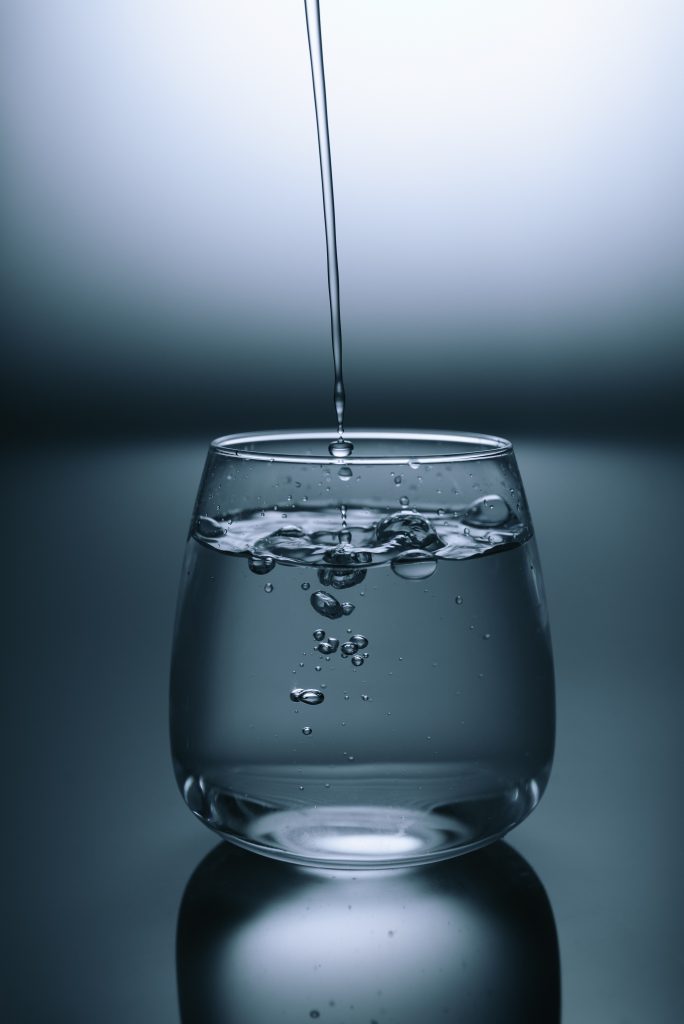
Stay Hydrated
I don’t normally run into this issue any longer thanks to my new water bottle, but hydration is essential to any weight loss journey. It’s not out of the ordinary for a lot of people to skip over water. Most are quick to drinking all kinds of other beverages before even drinking water.
It’s gotten to the point where there is literally a one gallon challenge hovering around that people have taken. Either way drinking plenty of water is essential for our body to function and there are a widespread of benefits from drinking water. Examples are water can make us feel full after a meal, and it can flush out a lot of chemicals from our body as well.
But water can also contribute a little bit to weight loss and even help with our sleep schedule as well. And sleep is just as important as drinking enough water as improper sleep habits can contribute to weight gain too ,
This is an important lesson to me because there was a time where I wasn’t drinking that much water. I drank all kinds of other beverages that did a lot of harm to my body. There was never a point where I went to the hospital but drinking water did alter my life.
I fell in love with drinking exclusively water. Not to mention I felt more energized.
I’m sure if I was still drinking some of the beverages that I’ve had in the past, I would be in a worse state than where I’m at right now.
What You Eat And When Matters
To expand on a previous point I mentioned above, the time of day for when you are eating matters to some degree. For one, the myth that we shouldn’t be eating after 8 pm is unfounded.
There is no danger to eating after 8 pm, but you do want to pay attention to what you eat. Most in that hour binge on salty foods or high sugar foods .
Basically foods that your dietician would tell you to avoid entirely in the first place.
It’s this reason most people advise against late night eating. In fact, some push for a 14 hour fast for your body to reset overnight which isn’t that bad. But one other thing I’d add to this is to look at what you are eating in your last meal of the day.
My overall experiences of weight loss taught me to not see carbs as an enemy. Where some say cut carbs, others villainize these foods and avoid them.
But I think some of us might have it all wrong.
Yes, we should be cutting carbs but not all. One way to do that is to eat foods that contain healthy fats in our evening meal. But during the day, we eat a healthy amount of carbs. Pair that up with some protein and veggies in every meal and you have a solid diet plan.
Why do I suggest eating this way?
Aside from that type of diet working for me, it also makes sense on a body level. Carbohydrates are generally our body’s fuel. So eating carbs (Fruits, tomatoes, whole grain foods, etc.) over the course of the day will keep our body in tip top shape. But when the evening comes around the last thing our body wants is more fuel. It’s looking to burn that fuel up and start slowing down.
This is where the fat comes in as adding a little bit of it is essentially putting our body into overdrive in burning that excess energy and helping us burn fat while we are sleeping. This is better than what our body would do traditionally with carbs which are storing it as fat.
It’s why there are several articles floating around talking about eating a tablespoon of peanut butter before bed. It’s a fat food.
There’s nothing wrong with fat and it can play a vital role in weight loss. This is true especially when we know when to be eating it. This rule applies to even when we eat our meals in general .
Pay Close Attention To Your Feelings
One thing I’ve been sorta hinting at in some of my points is this particular lesson:
Pay close attention to your feelings over anything else.
I’m saying this because there is such a massive disconnection between what is out there and our bodies. And before you get angry this isn’t intentional. All of our bodies have varying degrees of reactions to certain foods. Take the blood type diet for example. This diet is specifically designed for your blood type. But as some people have pointed out, the claims are ridiculous .
Even something like the BMI scale is drastically off in some cases. For those not familiar with it, it’s a measurement of our body and height . Furthermore, there are specific numbers for what is an ideal body weight based on our height. But that measurement can be flawed in some cases, especially amongst athletes. Athletes are good examples as they are active and in shape. However, their BMI would likely indicate that they are heavily overweight. This is due to their muscles weighing more than fat.
Again, this isn’t intentional but these are still good grounds to consider the sciences, but more on feelings.
Lean on this lesson for when you are exercising but also on every aspect of food and eating as well. I rely on this because only I will understand my body the most. Sure there are plenty of professionals who know nutrition better than I do, but they don’t know how techniques or foods will react to my body.
I get stomach aches from eating pineapple for example. This is despite the fact that science proves pineapples is designed to prevent inflammation of the stomach.
My point is, just because something is stated doesn’t always mean it’s the perfect fit for you. Try it out and see how you feel. This is why I’m not claiming this stuff will work perfectly for you. It could be a hit or a miss.
A Weight Loss Journey Twists And Turns
While there is ample of evidence on weight loss there are still road bumps along the way. Not every piece of advice will work for you and for me I’m okay with that.
The road to a better healthy life should be difficult. It teaches us so many things about our bodies but also ourselves.
It’s to the point that the weight loss journey can reveal some valuable life lessons. The biggest of these lessons is this:
There are no short cuts. If you want to see amazing results you must put the time and effort to achieve it.
To your growth!
Eric S Burdon
13 thoughts on “5 Key Lessons I’ve Learned From My Weight Loss Journey”
I loved reading this- it made me realize that we are in this together, and we will get through this.
That is so true and thank you for reading!
https://waterfallmagazine.com Its like you read my mind! You appear to know so much about this, like you wrote the book in it or something. I think that you could do with some pics to drive the message home a little bit, but other than that, this is wonderful blog. A great read. I’ll definitely be back.
Thanks, I’m glad you learned from this article. 🙂
Love this! Thank you for sharing such an insightful article!
Glad it was able to help you Amalie! Thanks for reading! 🙂
Oooooh so useful! Thanks for sharing 🙂
No problem Sophie! Thanks for reading.
Very nice. I really like your blog. I have learned a lot too. Thanks!
Thanks for reading Brenda! I’m glad that you enjoy the blog and the article. 🙂
Really interesting ideas, thanks for sharing this.
No problem! Thanks for reading. 🙂
I just like the helpful information you provide on your articles. I’ll bookmark your blog and check once more right here regularly. I am fairly sure I’ll be informed many new stuff proper right here! Good luck for the following!
Leave a Comment Cancel Reply
Your email address will not be published. Required fields are marked *
Save my name, email, and website in this browser for the next time I comment.
Lorem ipsum dolor sit amet, consectetur adipiscing elit . Ut elit tellus, luctus nec ullamcorper mattis, pulvinar dapibus leo.
Weight Loss
Ok. you gained weight. these 5 tips will get you back on track.
- Published March 25, 2017
- 6 minute read

In This Article
“I’ve gained 15lbs and I CAN’T stop eating!”
That’s the text I received from a friend recently. She told me another friend asked — purely out of kindness and concern — if something terrible had happened because they noticed she had gained a decent amount of weight recently. This gain was after a check up where her doctor mentioned she needed to lose about 20 pounds. Eek!
This was the wake-up call she needed.
She was mortified, and while she knew things had gotten out of hand, the idea of trying to lose a total of 35 pounds seemed out of reach. A former Division I athlete, she couldn’t believe she was in this position at age 30.
I knew how she felt; I’ve been there (a few times)…well not the DI athlete part.
In college, I tore my ACL and meniscus. One surgery turned into two and a third all within a year. I gained at least 40 pounds in a few months. I’m 5-foot-6 and I weighed about 200 pounds (no, that wasn’t muscle weight). It was a tough moment. I can’t remember the exact number on the scale at the student health center that day. I knew it was a problem, and I didn’t feel together physically or emotionally.
“I felt hopeless. I gave up. I took a golf cart just to get to class.”
While that might not sound like a huge number, it was “crisis weight” for me. Pre-surgery I was active, working out daily and biking a ton, I weighed 150 pounds and thought I needed to lose 5 pounds (ha!) After surgery, my goal weight felt so far away — I would’ve been grateful to hit 160 — that my approach was, “what’s the point in trying?!”
I felt hopeless. I gave up. I took a golf cart just to get to class. I didn’t do any cardio. I hit up In N Out and then went directly to Krispy Kreme to top it off. I was eating my emotions.
I say this to illustrate that I know firsthand how weight can spiral. Quickly.
Getting out of that slump took years and a combination of logging my meals, making healthier choices, setting realistic goals, taking care of my body and upping my workout routine. I discovered I had more energy and felt better, which was empowering. Until I started feeling better, I didn’t realize I had forgotten what healthy felt like.
OK, back to my friend. I listened to her worries. She vented. We laughed. We came close to tears. Then we started troubleshooting.
Whether you are starting your weight loss journey, finding yourself in the middle of the struggle or working on maintenance, here are tips to keep you on track:
START NOW AND START SMALL
You gained weight…it’s a bummer, but you can’t harp on it: move forward. Stop saying “tomorrow will be the day I start.” Once you start you are closer to finishing. Most people love that post workout high, but the toughest part is starting that workout. On days I don’t want to work out, I tell myself to just do a little cardio. I get on the elliptical and push myself to the 5-minute mark, and I know I’m halfway there. Since I’m already in the gym and sweaty, it’s easier to talk myself into 10 minutes of strength moves, too. Some days 20–30 minutes is enough .
Apply the same philosophy to food and goal setting. Instead of focusing on the 80 total pounds you want to lose, put your energy towards the five pounds you can realistically lose in April.
The most exciting part is, if you’ve fallen off the wagon completely, taking a few small steps typically results in changes pretty quickly.
LOSE THE GUILT
It’s easy to feel ashamed, guilty and embarrassed if you’ve gained or regained weight. Weight gain happens, so shift your focus from the past and set your sights on the concrete actions you can take to move forward.
So quit beating yourself up over that cup of ice cream you ate late last night, instead focus on what you are going to do tonight. Have a banana, greek yogurt or string cheese on hand just in case that nighttime hunger strikes again.
Make attainable goals and celebrate yourself when you’ve hit them – strive for progress, not perfection. If you are struggling with intense feelings of shame and guilt this next tip might be especially helpful.
CONSIDER HELP FROM THE PROS
Whether it’s a personal trainer, nutritionist, medical doctor or therapist, it can help to have someone holding you accountable. Depending on your situation, it can also help to sit down with a professional to unpack why you may have gained the weight in the first place and what you should be doing to make a change that sticks. If you have preexisting conditions, are trying to lose more than 100 pounds or have a BMI of 40 or greater, consulting a doctor ensures you are embarking on the plan that is best for your health.
For me, getting back on track after surgery required checking in with my physical therapist and surgeon about my game plan. It was important to learn what exercises were off limits for the moment and which I’d have to modify or avoid long term (I won’t be running any marathons or doing deep jump squats anytime soon and that’s ok).
MAKE A MEAL PLAN
It’s always helpful to plan out your meals when you first start to prevent you from falling back into old bad habits. Personally, I love to cook (plus, cooking at home saves money ) and incorporate as many veggies as possible into every meal (even breakfast). If your schedule isn’t conducive to meal planning and getting groceries in advance, try a meal delivery service. My friend signed up for a paleo food delivery service to jumpstart her weight loss plan.
REACH OUT TO FRIENDS
Tell your family and friends you are working on your weight-loss goals. They may want to join you, and even do a challenge together . Your family can also create an environment that’s more hospitable to your goals by keeping junk food out of sight or better yet, not bringing unhealthy food into the home in the first place. Sometimes it just helps to have someone to vent to.
Today, I weigh around 165 pounds, have a a decent amount of muscle and feel better than ever about where my body is and what it can accomplish! I’m happy at this weight, which is bizarre, because according to the charts, I’m overweight (with a BMI of 26.6), but weight and BMI can only tell you so much . So I’ve released the power that number held over me. It would be great to lose a couple pounds just to ensure the long-term health of my knee, but I’m no longer obsessing about the number, and I’m embracing myself as I am. My weight still fluctuates (I’ve gained and lost countless pounds), but I’m more focused on how I actually feel and how far I’ve come. I’ve even embraced the athlete moniker, which has made my workouts more effective.
Weight gain happens and weight loss is hard work, so don’t give up or feel defeated if you are struggling: You’ve got this and you are not alone.
I can’t wait to hear from you. Have you ever looked up and suddenly gained more weight than you anticipated? What was your wakeup call? What did you do? And what are your tips for staying on track?
About the Authors
Meet the people behind the post, related articles, more inspiration for you.
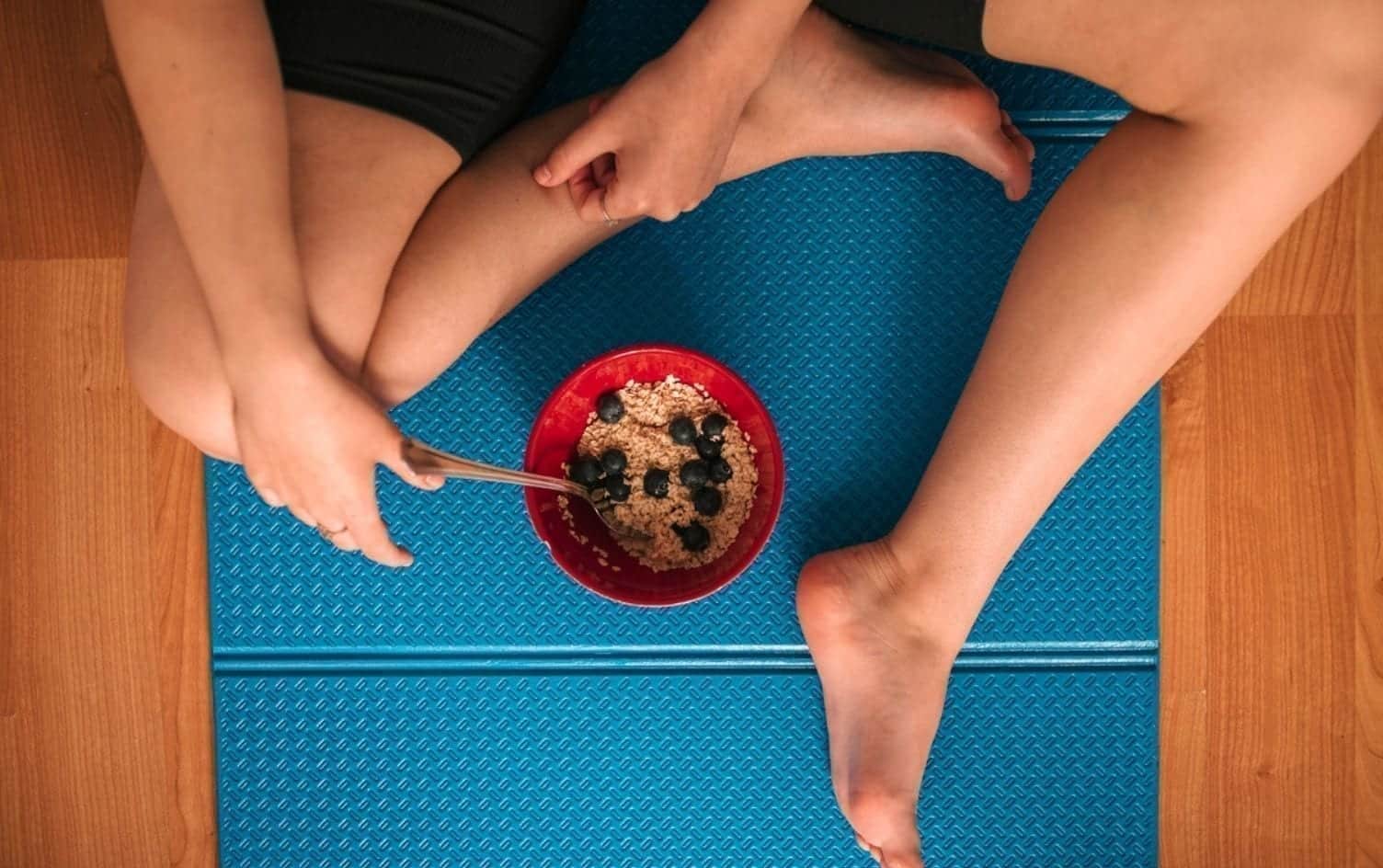
Eating Before Or After a Workout To Lose Weight?
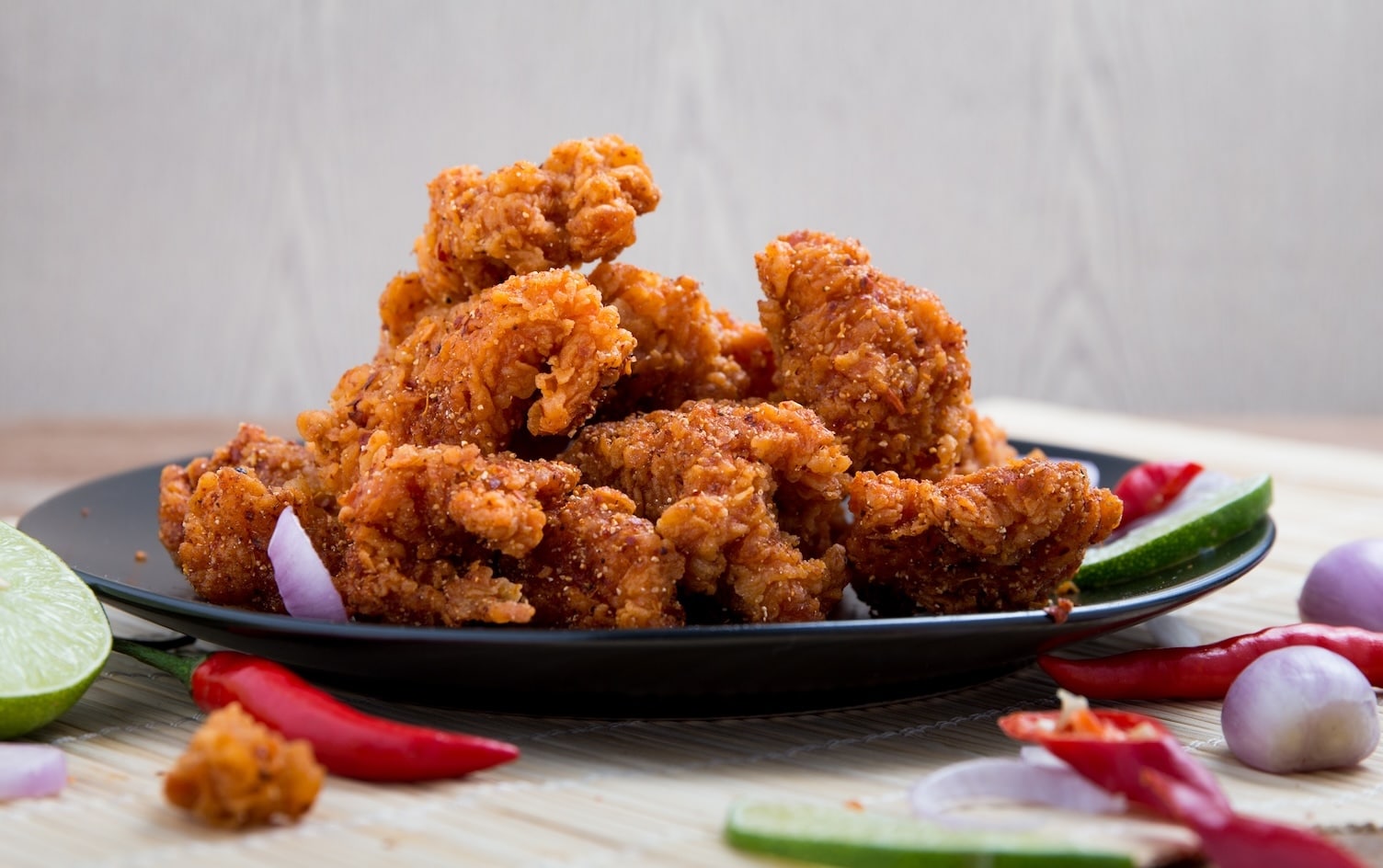
The Hot Honey Chicken Bites That Are Perfect For Summer Nights
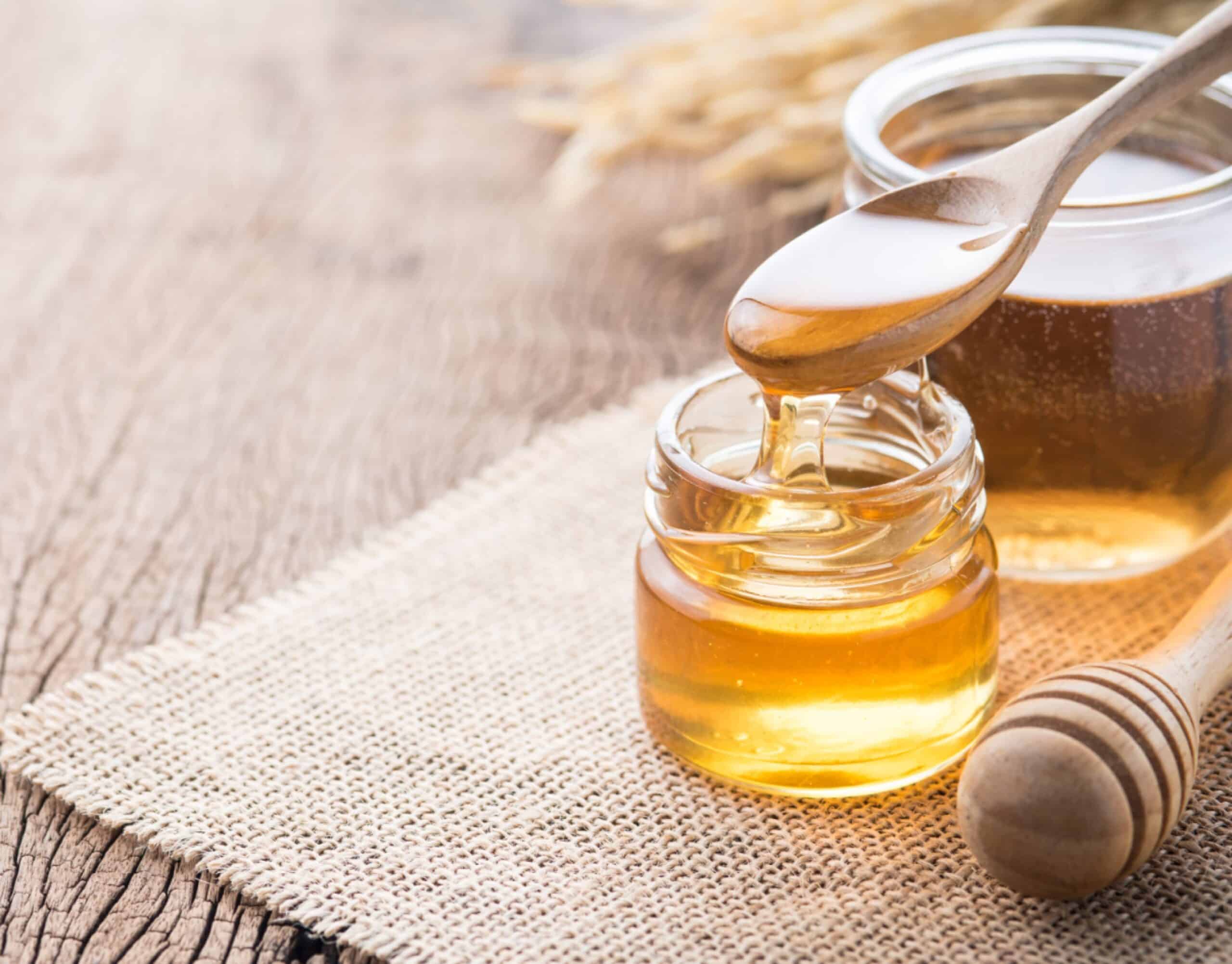
Is Honey and Salt a Good Pre-workout Hack?
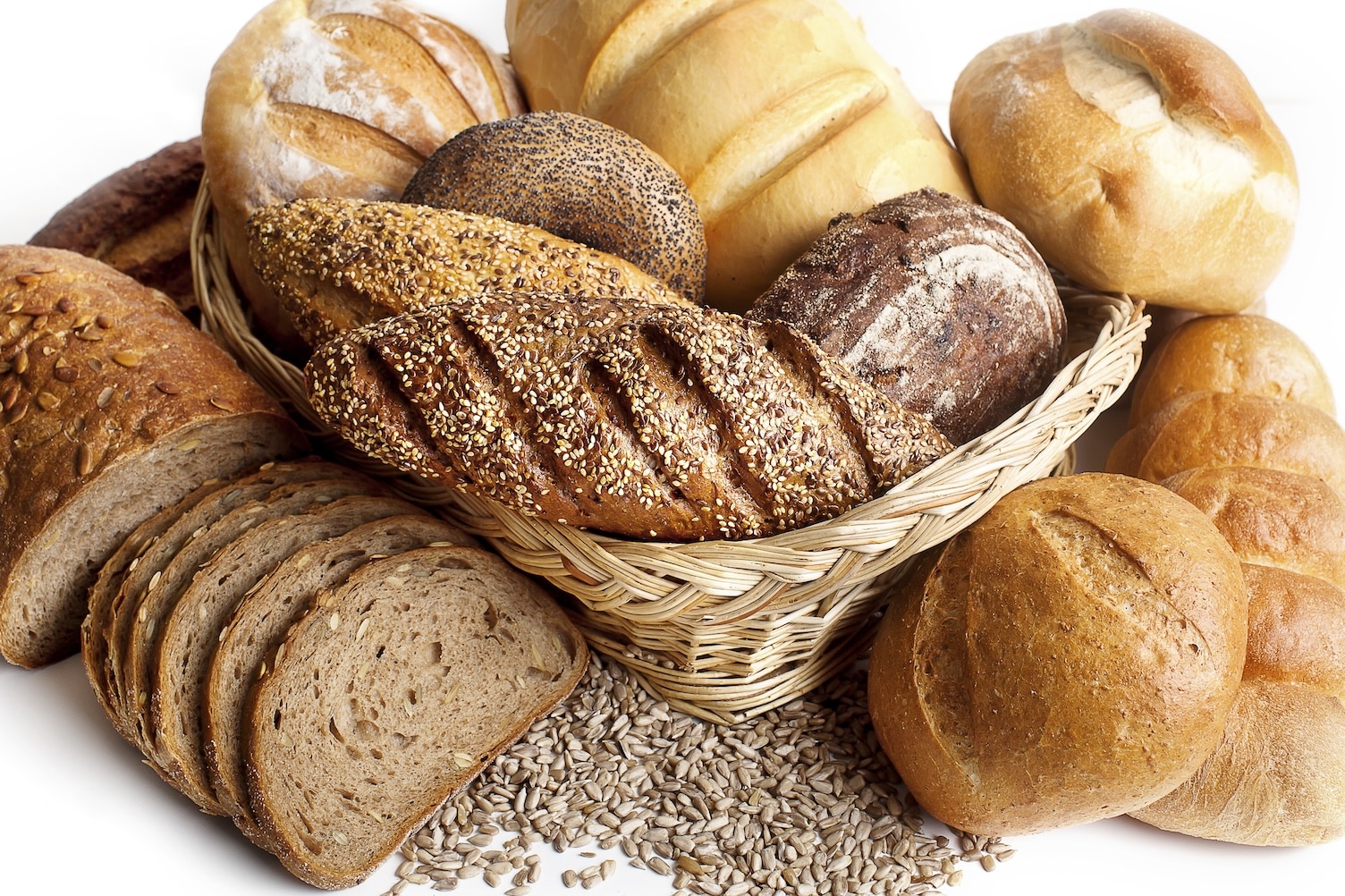
Sprouted vs. Whole Wheat — Which Bread is Healthier?
Recent posts.
Find your healthy, and your happy.
- Support Centre
- © 2024 MyFitnessPal, Inc
- Community Guidelines
- Cookie Preferences
- Do Not Sell My Personal Information
- DOWNLOAD THE APP
- Search Please fill out this field.
- Newsletters
- Sweepstakes
- Health and Wellness
- Weight Management
How I Learned My Weight-Loss Journey Wasn't Over Even After Losing 170 Pounds
Tina Minasyan shares how losing weight was just the beginning of her journey.
The first time I became aware of my weight, I was in fourth grade. At the time, it was common for schools to weigh students and I remember feeling completely shocked when I learned I weighed 130 pounds.
Based on my appearance alone, I knew I was different and heavier than the kids around me, but it didn't really start affecting my life until I was a freshman in high school. My weight skyrocketed and the first thing to go was my confidence. Not necessarily because it bothered me, but because I was constantly being judged and teased for my weight .
I went from being a social butterfly to being incredibly reserved. I felt like my weight defined me. It got to the point where I began pushing away my friends because I felt like even they were talking about my weight behind my back. Soon enough, I'd dug myself into a deep dark hole where I felt completely and utterly alone.
The two years I spent in high school, I never went to homecoming or prom and missed out on a lot of other typical teenager experiences. Eventually, that environment became so unbearable that my parents decided it was best for me to drop out and focus on my mental health.
The Struggle with Yo-Yo Dieting and Diet Pills
Over the next couple of years, my goal was to lose weight no matter what it took. I spent a lot of time in therapy , which helped me cope with my feelings of depression. But I was still desperate and impatient to lose weight. I decided to take matters into my own hands and began dieting.
I tried every diet—and I mean every single thing out there. From Jenny Craig and Weight Watchers to the 7-day diet and the cabbage soup diet, I did it all. But my weight didn't budge. (
During this time, I was working on getting my GED. When I turned 18, I got a job at Sephora as a makeup artist to help pay for college. While working there, I had to wear a uniform and found out that I could only fit into a size 24. My desperation grew and I finally decided it was time to turn to a professional for help.
I sought out a nutritionist but, unfortunately, I learned the hard way that not all nutritionists are registered dietitians , which is who I should have turned to given the circumstances.
This particular nutritionist recommended that the best decision for me was to go on diet pills, which I did. Here's how the meds were supposed to work: You take the pills for two weeks and then go off of them for one week. All the nutritionist told me was that they would curb my appetite, but they didn't give me any guidelines on how to improve my diet or eat better in general.
After the first two weeks, I lost 30 pounds, which was the most weight I'd lost at the time. I felt great, but during the week that I didn't take the pills, I found that I gained almost half the weight back. After several rounds of going on and off the pills, I ended up weighing more than when I first started taking the medicine.
Undergoing Weight-Loss Surgery
By July 2015, I weighed 320 pounds. I was 20 years old and only 5 foot 3. My doctors classified me as morbidly obese. My depression deepened and I started looking toward weight-loss surgery as a solution. After months of going over my options, I decided to undergo a laparoscopic vertical sleeve gastrectomy or "gastric sleeve."
The procedure itself removes approximately 75 to 80 percent of the stomach and limits the amount of food you're able to eat. It's also considered a metabolic surgery since it removes the majority of the cells responsible for secreting a hormone called ghrelin, which is responsible for making you feel hungry.
Now, many people think that weight-loss surgery is the "easy way out." But I'm here to tell you it's quite the opposite. Here's the thing: There is no easy way out when it comes to extreme weight loss. Yes, I've had surgery, which is something I'm very transparent about. But, like most women who undergo these kinds of procedures, I learned the hard way that surgery only works if you do. (See: The Ripple Effect of Weight-Loss Surgery)
Going into the surgery, I knew that the procedure wasn't going to fix my attitude toward food. Just because they cut my stomach, didn't mean my brain was going to rewire to not like the taste of cookies. I still walked out of that surgery obese and had a long road ahead of me.
The Aftermath
The first two weeks of recovery were absolutely miserable for me. While I wanted to binge-eat, I wasn't hungry and couldn't physically consume a lot, which took a toll on me mentally. I realized for the first time that my eating habits were based almost entirely on my emotions and not as much on my actual need for food. That epiphany led me to heed my surgeon's advice and see a therapist again so that I could figure out why I was using food to cope with how I was feeling.
Over the next year, I worked hard to undo the unhealthy habits I'd spent my whole life building. I started to really understand my triggers and learned that when I was sad, I'd go for a bag of chips. When I was anxious, junk food made me feel better. And when I felt helpless, my outlet was to just eat whatever I could get my hands on. So I decided to cut all of these crutches out of my life. (
Yes, some people might label that as restrictive , but for me, it was necessary—at least for a period of time, so I could start building healthier habits. My goals were to start eating super healthy, regulate my meals, and ditch the binge-eating mentality once and for all.
A year after my weight-loss surgery, I lost 180 pounds, which was the lightest I'd been in my adult life. I also started going to college during this time and found myself easing up on restrictive eating. I knew that I'd gain some weight, and after a couple of months, I put on 10 pounds. For the most part, though, I brushed it off.
A few more months went by and I started to become even more relaxed with my eating, quickly falling back into old, bad habits. By the end of my freshman year, I'd put on 30 more pounds and felt like I'd failed myself.
Regaining that weight even after weight-loss surgery finally made me realize that changing my attitude toward food was something I needed to work on not for weeks, months, or years, but my whole life. I needed to learn how to focus on what I want most versus what I want now.
I also had to learn that when I "messed up" (because we all mess up), it didn't have to become a pattern; I could get right back on track. Like any other person going through extreme weight loss (surgery or not), I had to practice my new healthy habits every single day to finally lose all the weight and keep it off.
Along the way, I've undergone two plastic surgeries to remove loose skin around my stomach, breasts, back, arms, and thighs. While aesthetic reasons played a part, I also had a lot of loose skin in those areas that made me extremely physically uncomfortable. If I really wanted to restore my body to its original shape, I could undergo several more surgeries, but I'm perfectly okay having that extra skin, and cellulite as a reminder of what I've been through. (
Looking Ahead
Today, I don't follow a diet, but I've become a huge advocate for eating what you want in moderation. To date, I've lost 170 pounds and still feel like I have 25 pounds to lose. My next goal is to establish a fitness routine and build that into my lifestyle. Recently, I started going for long walks with my dog almost every day. But in the future, I'd like to get into the gym and work on my overall strength.
I've made peace with the fact that my journey is continuous and that every day will have its ups and downs. But at the end of the day, without weight-loss surgery, I would have never regained the weight, and never made the changes I needed to regain my health.
So, for anyone who thinks that weight-loss surgery is a cop-out: I fought to be where I am today, and that's something I'll always feel proud of.
Related Articles
10 Things I've Learned About Losing Weight, One Year After I Started
It's been a journey!

Roughly one year ago, I decided I wanted to lose weight. I had zero idea how I was going to do this, I only knew that I needed to start. After years of writing cookbooks, hosting a cooking show, owning a restaurant and bakery, and having a cooking website, the weight had crept up through the years and my exercise/activity level had all but slowed to a stop. With the exception of walking with the dogs, I had pretty much given myself permanent permission "not to have time" to exercise because of work, scheduling issues, and any other excuse I could come up with. So last January, at my highest weight ever and with the wedding of my daughter looming in May, I just knew I had to start.
One year later, I've lost 55 pounds.
10 Things I've Learned About Losing Weight
First, to summarize the June post :
I didn't use a trainer, I didn't do Keto or Paleo or follow an official diet, I didn't eat specialty foods, and I didn't do intermittent fasting. Those things work for lots of people, which is wonderful! I just hadn't had success with them.
Here's what I did do: I ate fewer calories. I consumed smaller portions. I weighed my food. I walked and did the rowing machine. I built muscle by lifting weights and doing lunges and squats. I ate more protein, ate less sugar and drank no alcohol. I used an app called Happy Scale to track my daily weight . I switched to a standing desk and generally tried to stand and move more.
So here's what I've learned, one year later! (In no particular order.)
1. The initial, more intense, stage doesn't have to last forever.
I started my weight loss journey in January 2021 and went all-in for the first five months. After that initial stage of counting calories, lifting weights, etc., I relaxed my efforts a little bit beginning in the summer months. During those first five disciplined months, I'd developed a good sense of portion sizes, calorie amounts, and protein percentage, and I was able to go about daily life with a general sense of the choices I needed to make. If I ever had a question, I'd break out the food scale or Google the calories of a common food, but I generally put away the food scale last July and never looked back.
I was glad I'd been so strict for that first stage, because it wound up being a nice crash course that equipped me going forward. Starting out with that discipline actually allowed me more freedom later in the process.
2. Building muscle is the gift that keeps on giving.
I can't emphasize this enough: Building muscle—not just the smaller muscles in your arms, but the larger muscles in your legs and butt—will turbo charge your weight loss like nothing else and set you up for more success.

The months I spent doing squats, lunges, and dead lifts early in my weight loss process really laid the foundation for a summer and fall of more efficient calorie burning. I'm not a physician or trainer, but I can tell you that as I watched the number on the scale continue to decrease through the summer and fall, I knew without question that it was largely due to the muscle I'd built. It's like an engine that's always working behind the scenes! The great part about it is that you can have a day or two or three when you fall off track with eating or exercise, but if you have that strong foundation of muscle, you can climb right back on the bike and not feel (or see) the consequences as much.
3. My body is now accustomed to eating smaller portions.
One of the primary things I learned in the initial months of my weight loss was just how off the rails I'd been for years when it came to portion size! During the five-month period I weighed my food and counted calories, I really broke the spell of eating too much volume and during this process, I trained my body to get used to smaller—well, I should say more normal—portions. The answer "smaller portions" is so lackluster and boring when someone is asking me about losing weight, but it has absolutely held true for me. Today, as I point out below, I'm eating all the foods I love, but my body is satisfied with much less of it.
4. Alcohol, in moderation, is fine.
I knew I had to eliminate alcohol entirely during the initial/intense stage of my weight loss, but beginning in the summertime, I started having a social drink or two here and there. I avoided (and still avoid) anything that's sugary or otherwise really caloric. Off limits are frozen drinks such as daiquiris and margaritas, and sweet cocktails that include syrups and lots of fruit juice.

That said, lemon and lime juice are my friend when it comes to booze, and my two favorite drinks are Ranch Water (clear tequila, lime juice, and sparkling water over ice) and White Wine Spritzer (small amount of cold white wine, sparkling water, and lemon slices.) These sparkling water-spiked drinks are great for two reasons: First, they force you to hydrate as you ingest the alcohol or wine! Second, they keep you from drinking too much alcohol. They also spread out the calories more: In other words, you can have two drinks for the calories of one.
5. Moving every day, even if I don't exercise every day, is very important.
Starting in September 2021, when school and football started and I had lots of filming and cookbook events going on, I fell off my disciplined exercise routine a bit. I still did the rowing machine, lifted weights, and did Pilates, but I was exercising only two or three days a week, instead of the five or six days I was doing before. As I explained in #1 above, I had a good foundation of eating smaller portions and a rock solid (haha, just kidding...let's say firm) foundation of muscle, so fortunately this decrease didn't undo my hard work. However, I found that if I had a couple of days at home when I was sitting and working a lot, it showed itself both in the number on the scale and in the way I felt overall. So I made sure to stay more committed than ever to using my standing desk, stepping away for frequent breaks, and putting myself in a position to move more. Today, I'm still using a standing desk and not letting myself collect too much dust during the day.
Moving is good! (Essential, actually.)
6. It's important for me to weigh myself daily.
I realize this can be triggering for some, and I can't emphasize this enough: My decision to weigh myself every day is not about fixating over every pound and ounce. I've just found that when excess weight has crept on through the years, it has happened when I've chosen not to weigh myself. Before I decided to lose weight last January, I don't think I'd stepped on a scale for two years. I willfully hadn't weighed myself because I never wanted to know. Without seeing that number go up over time, it was easy for me to tell myself that it was probably just a few pounds. So part of my routine now is weighing first thing in the morning (before water, coffee, anything) and logging it in my now-favorite app called Happy Scale . 😊 It's good to see the trends over time! (As you'll read in my June post , Happy Scale was an incredibly helpful tool during the past year!)
Here was my weight chart on Happy Scale from January 2021 to June of 2021.
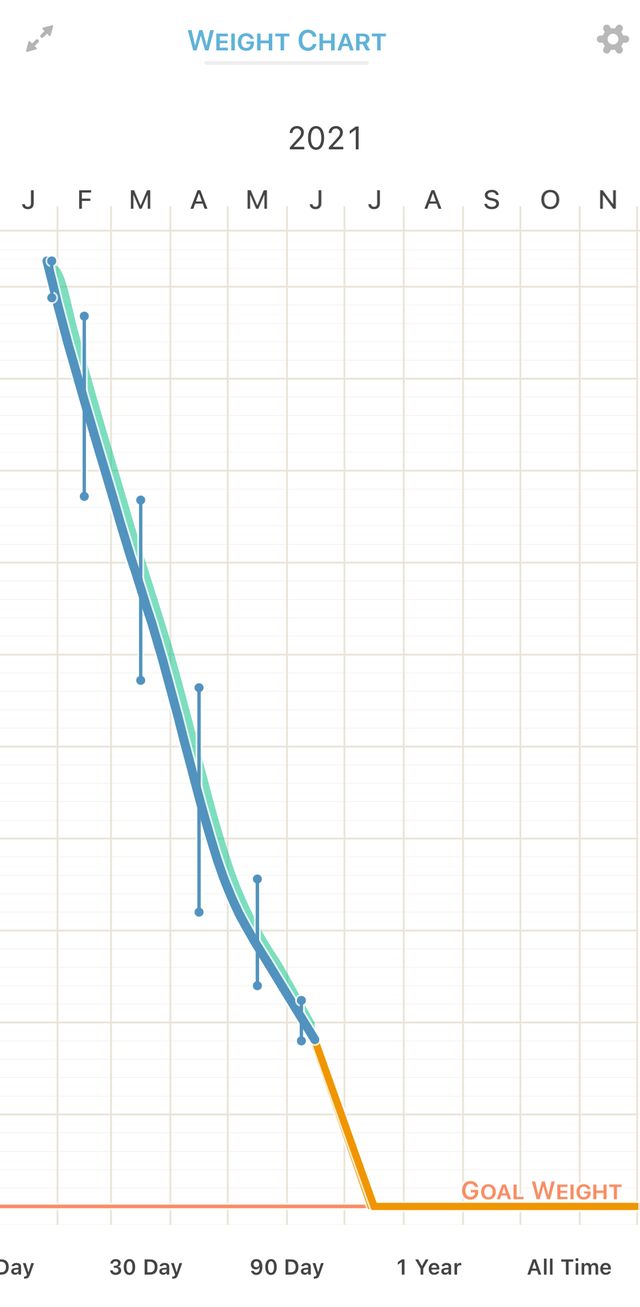
And here's a screenshot of the chart now, showing January 2021 to February 5, 2022.
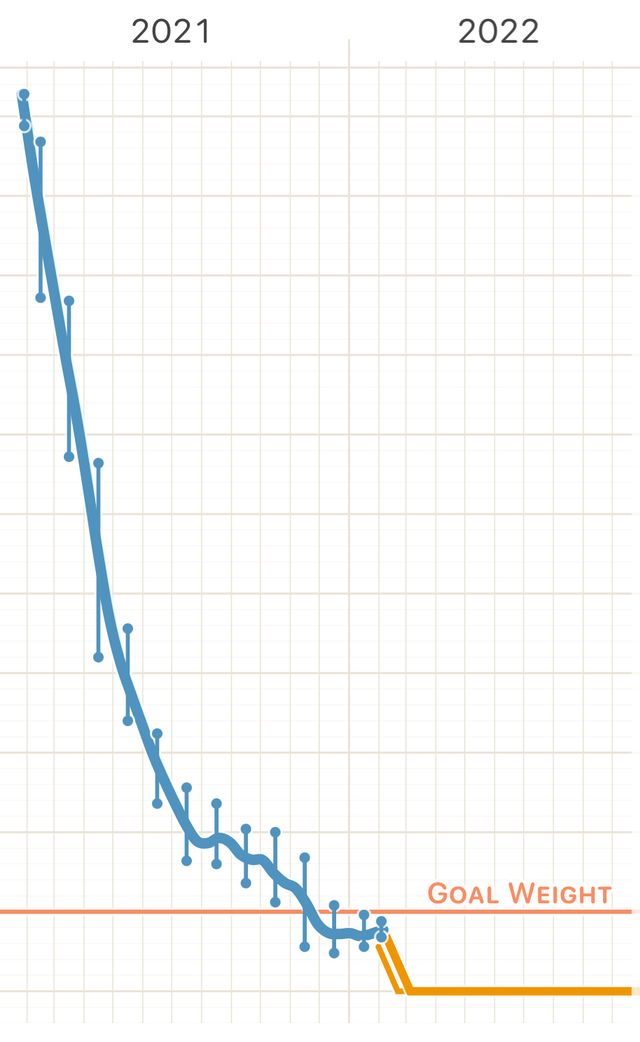
You can see the intense, more aggressive period of weight loss in the first half of 2021, but you can also see how it slowly became more gradual through the summer and fall. And now, I'm settling in just below the original goal weight I imagined for myself—which, by the way, was intentionally realistic! I wasn't striving for pre-marriage, pre-baby, pre-thirties weight! 😊 Just a good weight where I thought I'd feel and look better, and where I felt I'd be able to maintain and have longer term success.
7. There's nothing on my list of banned foods!
During the first five months of my weight loss, I was more strict. I did not drink alcohol, and I largely stayed away from foods that had added sugar.
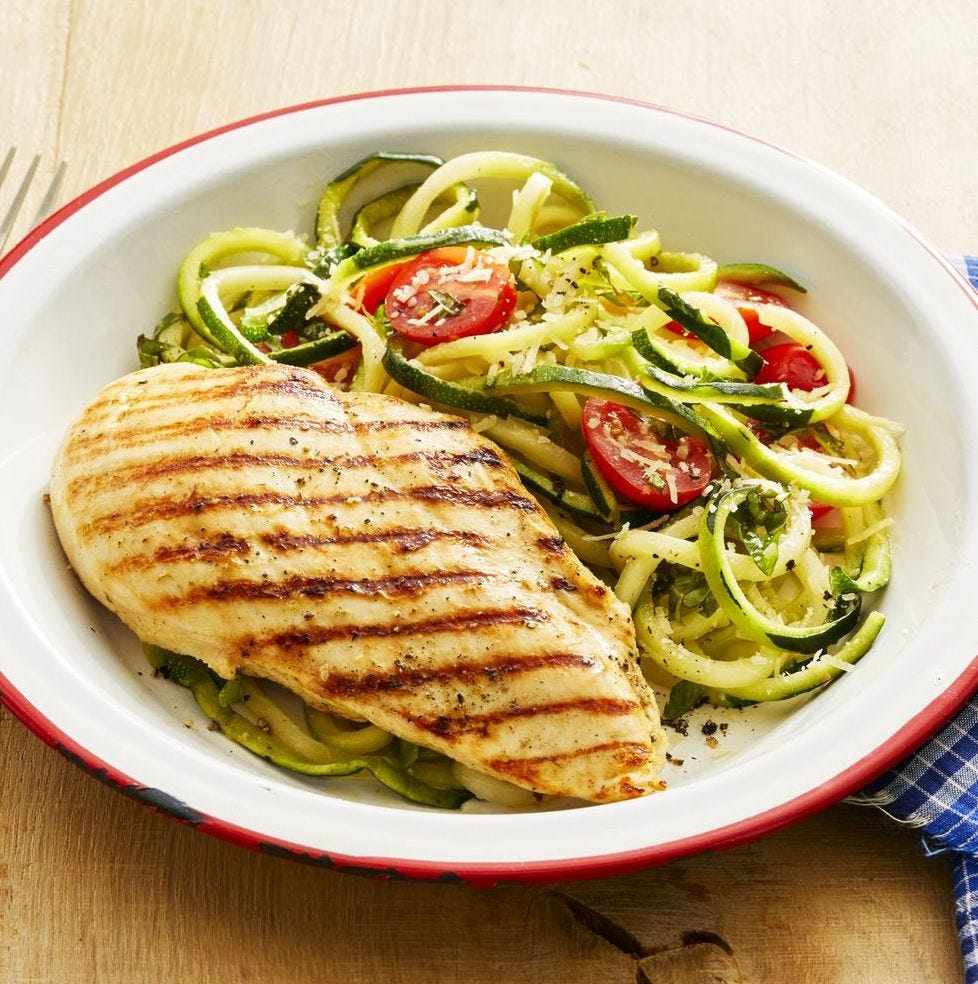
While I did eat small portions of all the foods my family was eating, I also ate a higher amount of high-protein foods such as egg whites, chicken, fish, lean beef, plain Greek yogurt, cottage cheese, Swiss cheese, and dark, leafy greens.
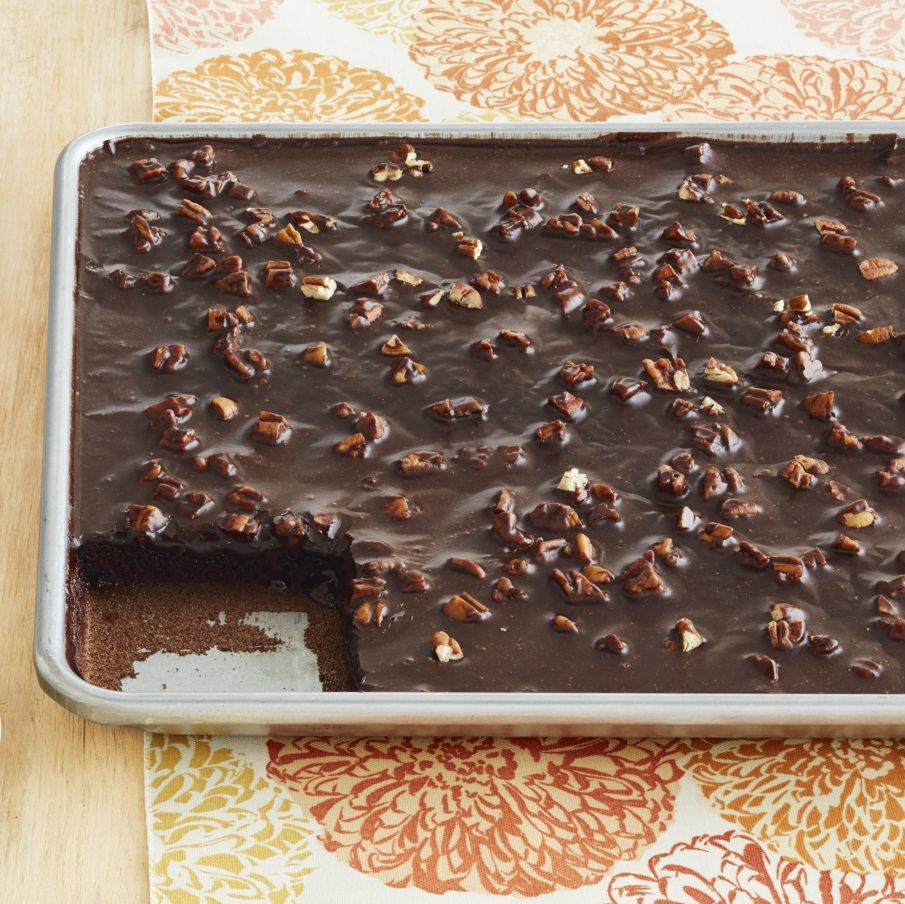
Now, a year later, I eat pretty much all the foods I love, with two big differences: First, my portions are much more reasonable. Second, I do still pay attention to the daily proportions I'm devoting to both high protein foods and foods with wasted calories. I'll carry this thought over into the next paragraph. (Oh! And a correction: Bananas are the one item on my list of banned foods. Ha!)
8. I try to minimize wasted calories.
I'm so grateful for that initial five months of nutritional boot camp I put myself through, because in addition to resetting my whole understanding of portion size, it also made me much more aware of wasted calories, and the importance of minimizing them as a percentage of my diet.
Foods that I consider wasted calories: sugary soft drinks, cookies, cake, potato chips, doughnuts, and the like.
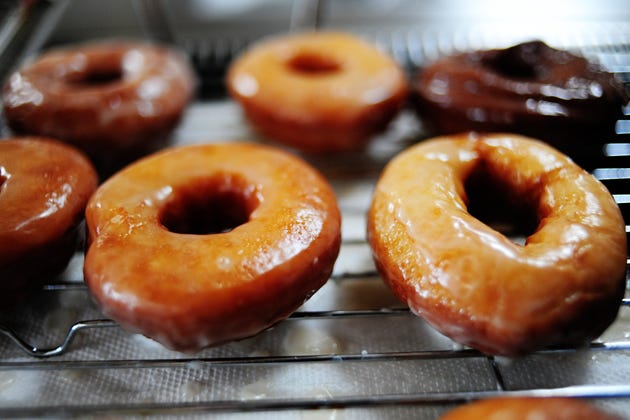
In my June post, I gave this example: "If I am eating X calories today, do I want to blow 300 of those calories on a doughnut? Or do I instead want to spend 50 of them on a piece of good dark chocolate to get my fix, then keep eating things with more nutritive content?" Months later, I apply that thinking to all sorts of high-sugar, high-carb foods that don't have any nutritional value. Using the doughnut as an example, some days I eat half the doughnut. Some days I decide not to eat the doughnut. Other days I'll pinch off a bite of the doughnut. Heck, there will be a day now and then when I will eat the whole doughnut. There's no hard and fast rule, but I'm just more mindful of it now, and I try to factor the doughnut into the day as a whole. (In the old days, I might eat three doughnuts and not give it a thought. Ha.)
Another example I gave in my June post: I still eat chocolate cake; I just eat a Rhode Island sized piece instead of a Texas sized piece!
9. Steadily doing everything is so much more effective than going all-in on just one thing.
Looking back on the past year, I'm glad I started out pretty aggressively and had the wedding as an initial motivator, because it compelled me to tackle my weight loss from several different angles. I've been able to experience different approaches: building muscle, eating more protein, moving/standing more, exercising on the rowing machine, logging my daily weight, etc. I can continue all of these over time, or I can emphasize some more than others, or choose some over others. This has expanded my options and made me feel like I have more control over the inevitable ebbs and flows over time.
10. Losing weight and becoming healthy is a lifestyle change, but it hasn't changed my life. (Or has it?...)
There's something about the word "lifestyle change" that I have always resisted. I would hear people say "Losing weight is about changing your lifestyle" and I'd think, "But I don't want to change my lifestyle. I just want to wear smaller jeans." The phrase lifestyle change , to me, meant that one's day-to-day life would be totally different—and maybe unrecognizable? I think that's what always made me bristle .

Maybe it would be better to say perspective change instead of lifestyle change. Because that's what it has been for me. During the first five months (and in the ensuing months) of my journey, I experienced a seismic shift in my perspective of everything I've mentioned: Portion size, calories, daily movement, sitting vs. standing, protein percentage, muscle mass, wasted calories, and so on. I think about all of those things totally differently now.
I'm going to share a before and after pic below, not to be critical of myself, and definitely not to suggest that pre-weight loss is somehow "bad" and post-weight loss is somehow "good." But it is helpful for me to see the distance I've come, and to know that the changes have been good for me.
A year ago, my life was comprised of living on the ranch, filming my cooking show, working on cookbooks and my product line, and being a wife and slightly weird mom.
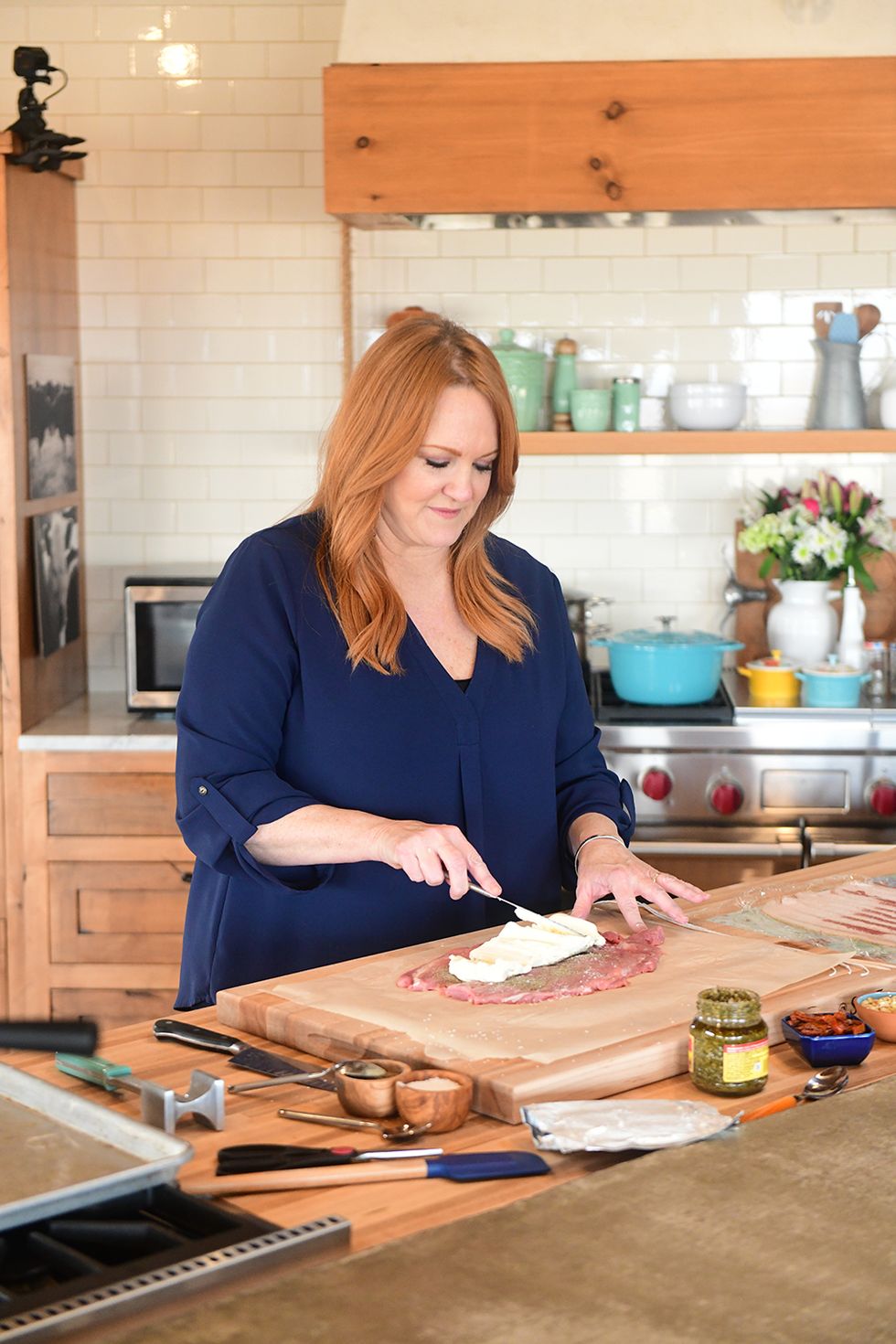
Today, my life is comprised of living on the ranch, filming my cooking show, working on cookbooks and my product line, and being a wife and slightly weird mom.

Only difference between before and after is that I've lost weight. Aside from that, my daily life really hasn't changed all that much.

Today I feel stronger, more in balance (both physically and mentally), and I have more spring to my step. I am wearing clothes I wasn't comfortable wearing a year ago, I feel better about the way I look, and I'm smiling more (yes, even more than I smiled before, which was a lot--haha) and that is a nice feeling at age 53.

After the experience of the past year, I feel better. I have more energy. I'm more motivated to take on projects and put things on the ol' calendar. Feeling good bleeds over into all aspects of my life. And that has changed my outlook.
But to come full circle...it hasn't changed my life itself. I still have cow manure in my yard, for example. It's on top of snow, and it's ruining the dreamy winter vibe. 😂 Gotta go clean that up now, but at least that'll help me get out and move!

I’m a desperate housewife, I live in the country, and I’m obsessed with butter, Basset Hounds, and Ethel Merman. Welcome to my frontier!

.css-l114lb:before{background-repeat:no-repeat;-webkit-background-size:contain;background-size:contain;content:'';display:block;margin:auto auto 0.25rem;}.loaded .css-l114lb:before{background-image:url('/_assets/design-tokens/thepioneerwoman/static/images/butterfly.svg');}@media(max-width: 48rem){.css-l114lb:before{width:2.039rem;height:1.616rem;}}@media(min-width: 48rem){.css-l114lb:before{width:2.5rem;height:1.9rem;}} Confessions

Ree's Family Easter Album

Ree's Fun Girls' Trip!

Ree's Four Wedding Dates!

Ree and the Kids in Colorado

Ree and Ladd Got a Hot Tub!

What's Ree Getting Ladd for Christmas?
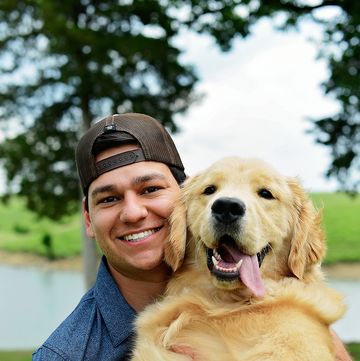
Ree Drummond's Thanksgiving Guest List for 2023

My New Cookbook Launches Today!

Here's Ree's Cookbook Tour Schedule!
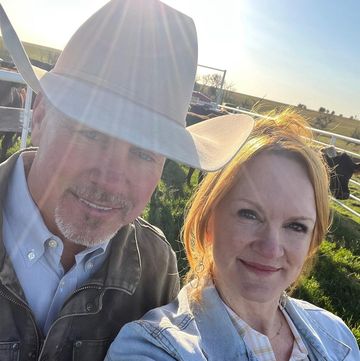
Ree Reflects On Her Now Empty Nest

Ree and Ladd Drop Todd at College
I Lost 50 Pounds and Transformed My Body Through Weight Training
"I have come to understand how much my physical activity is linked to my personal wellbeing."

Daniel, 40, from Warrington in the United Kingdom, shares his weight loss journey.
I did some weight training when I was younger, but over the years injuries and inconsistency reduced the frequency and effectiveness of my workouts to the point that I was exercising sporadically. Mentally, I was a little demotivated. Through this process, I have come to understand how much my physical activity is linked to my personal wellbeing.

During the transformation I had to prepare my own food in order to stick to the diet and that made me much more aware of what I was eating and the choices I was making. Once I started making progress, the diet was pretty easy to maintain: generally a source of protein with every meal and being aware that carbohydrates were fuel for my day or workouts.
I was initially weight training three days per week and cardio two days. That increased to four days of weights and low intensity cardio when needed to maintain my activity levels. I found the lower body exercises the most difficult at first, but the coaching advice around form, angles, and grip was really impactful. The number of sets and reps for each body part initially decreased, but my form was much improved and the overall program was much more balanced to improve my areas of weakness. Over time the volume then increased.

While my muscle mass stayed pretty consistent, but I lost around 22 kgs (48 pounds) in body fat. I definitely feel more confident and energetic. My overall health is much better too; my blood pressure is much improved after losing that fat. I am comfortable with my weight now, and the plan moving forward is to maintain it and focus on some areas of weakness such as mobility and lower body strength to improve my overall rounded fitness.
The best advice I can give to anybody who is at the start of their own fitness journey is to get help from a good PT: the cost is far outweighed by the time and money saved by going off in the wrong direction. I initially looked at training with Ultimate Performance and decided to try lower cost solutions or attempt to do it myself, but I wasn’t getting the results I wanted and decided to make an investment in my health. I only wish I had done it sooner.

.css-1fpt53b{height:1.25rem;}@media(max-width: 48rem){.css-1fpt53b{overflow:unset;line-height:1.25rem;}}@media(min-width: 48rem){.css-1fpt53b{line-height:1.25rem;}}.css-1fpt53b:before{background-color:#D2232E;color:#fff;margin-right:0.625rem;width:1.25rem;height:1.25rem;content:'';display:block;} Weight Loss Transformations

Stephen A. Smith Talks Weight Loss Transformation
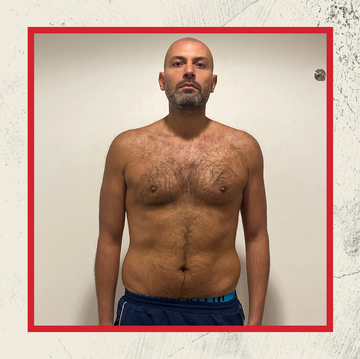
Making a Commitment to Himself Changed Everything
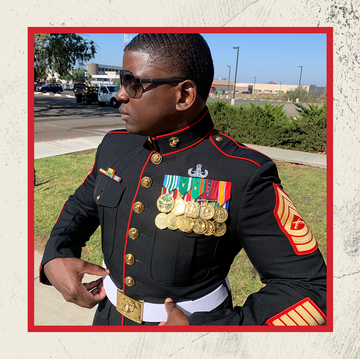
Barre Workouts Helped This Veteran Manage PTSD
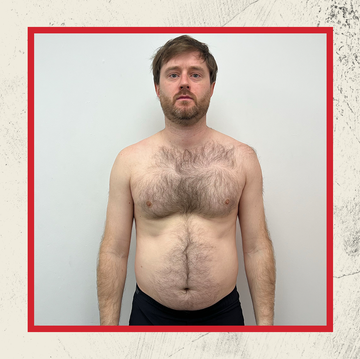
This Guy Got Shredded by Trusting a New Process
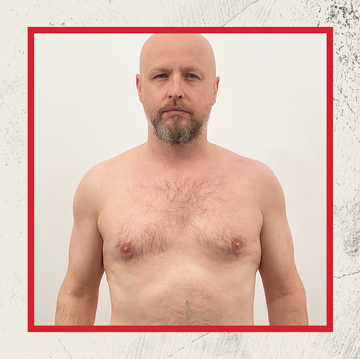
This Guy Got Lean and Ripped in 15 Weeks
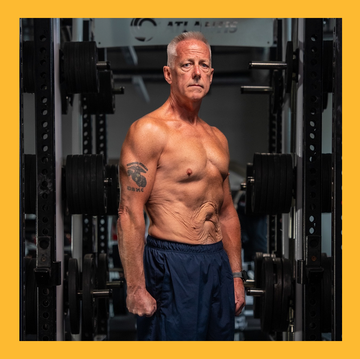
How This Guy Lost 110 Pounds Slow & Steady
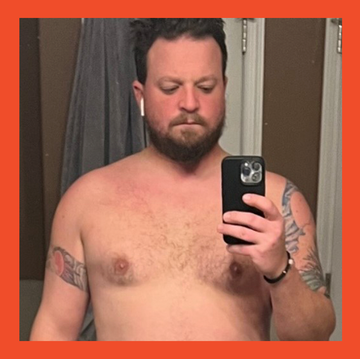
This Guy Lost 80+ Pounds By Doing Yoga
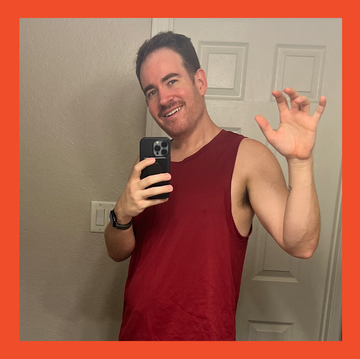
I Danced Off More Than 50 Pounds
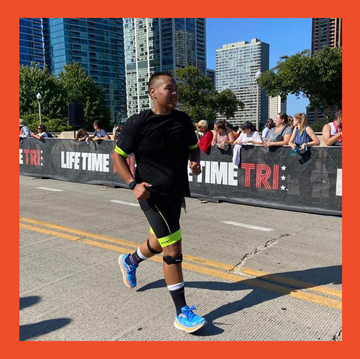
This Guy Lost Nearly Half His Weight in 30 Months

This Guy Lost Nearly 140 Lbs. With Indoor Cycling

Paul Walter Hauser Gets Real About Fitness Journey
Gaining Back the Weight You Lose? Use These 5 Tips to Stop Yo-Yo Dieting
Weight cycling can happen to anyone. Thankfully, there are several tricks you can use to end this habit.

- Certified Sleep Science Coach, Certified Stress Management Coach
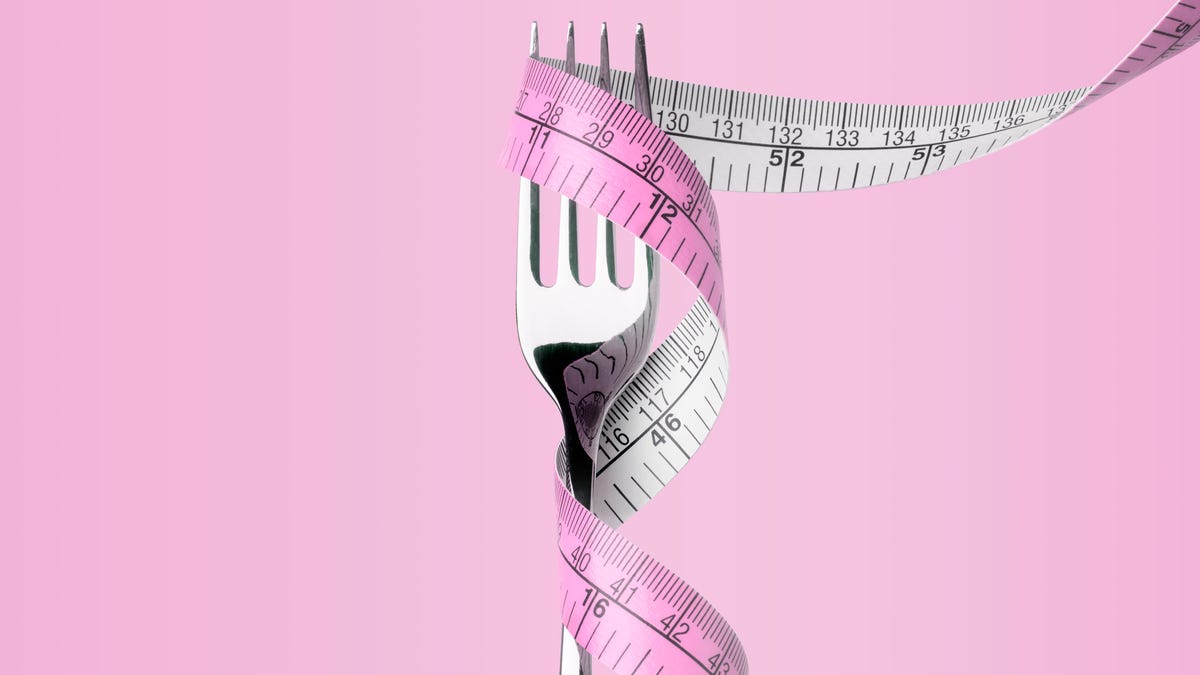
With the rise and fall of fad dieting, yo-yo dieting is more common than you may think, especially with restrictive diets.
Let's see if this sounds familiar: You worked your tail off in the gym and maintained a nutritious diet for months to finally lose the weight you've wanted to... only to gain it all back once you've stopped dieting. But you've lost the weight once, which means you know you can do it again. So you get back on your diet and start all over again. Only for the cycle to repeat itself and the weight to come back.
You're not alone. Many people experience weight cycling, or yo-yo dieting. The cycle of losing weight then gaining it back can keep you from achieving your goals. Not to mention the lasting effects it can have on your body. Thankfully, you can break the cycle, burn any allegiance to fad dieting and get back on track with your wellness goals. Here's how.
Read more: How Many Calories Should You Burn Each Day to Lose Weight?
Why does yo-yo dieting happen?
Yo-yo dieting is not something you're intentionally doing. There's a physiological reason your body responds to unrealistic dieting. The hormone leptin decreases as you lose weight. Leptin's job in our body is to tell us when we have enough energy (in the form of fat) stored up in the body. When leptin levels decrease enough, we start experiencing hunger.
In response to restrictive diets that limit what we eat, our bodies slow our metabolism to hang onto those nutrients for as long as they can. This means your weight loss will stall, and you're at greater risk of gaining it back when you stop that restrictive diet.
How common is weight cycling?
Every time you turn around, it feels like there's a new diet to try. With the rise and fall of fad dieting, yo-yo dieting is more common than you may think, especially with restrictive diets. A March 2019 study from the Columbia University Irving Medical Center found that 70% of female participants experienced at least one instance of weight cycling. The study included a diverse group of 485 women aged 20 to 76.
Weight fluctuation is entirely normal. The average adult's daily weight tends to fluctuate within a 3- to 4-pound range , depending on what you eat, drink and eliminate that day. Weight cycling doesn't always have to be drastic. However, it is outside of normal ranges of weight loss and weight gain for the body and generally follows an unsustainable diet.
Why is yo-yo dieting bad for you?
You can lose muscle and gain fat.
When you diet and lose weight quickly, you're losing muscle along with fat. Then, when you are in the phase of yo-yo dieting where you are gaining weight, you will gain fat first , not muscle. In the long run, this can impact your ability to walk, lift things or climb stairs. However, this can be offset with exercise, like weight training to ensure you're building muscle .
Studies have also found that weight cycling can increase body fat percentage. A review of published research found that 11 out of 19 studies connected the history of yo-yo dieting to higher body fat . Half of the reviewed studies also found that weight cycling is linked to future weight gain.
It's risky for your heart
Weight gain increases your risk of developing heart disease. The same is true for the cycle of gaining and losing weight. A recent study published by the New England Journal of Medicine found that the risk of heart disease is correlated to the change in weight -- the greater the swing in weight, the higher the risk.
Some studies have also investigated the relationship between weight cycling and increased blood pressure. Past studies suggest that with enough time between weight cycling, the effects on your blood pressure fade . Not all studies agree on this point, however. A more recent study has suggested that your body mass index will determine if a history of weight cycling contributes to higher blood pressure or not. More research is needed to get the full picture.
It can affect your mental health
Various positive mental health benefits are associated with weight loss -- greater confidence, a sense of achievement and increased self-esteem. Unfortunately, there can be negative effects as well, especially with yo-yo dieting. Repeated weight shifts are discouraging and can even contribute to anxiety and depression.
A 2020 study showed that a history of weight cycling is a significant predictor of depressive symptoms, with internalized weight stigma as a mediator. When controlled for gender, there was no significant difference, meaning that the effects are similar across men and women. Like the other risk factors on the list, not everyone will experience this.
How to stop the cycle of rebound weight gain
Dieting is hard, and it's easier than it should be to fall into a pattern of weight cycling. We don't want to paint the picture that breaking the cycle of yo-yo dieting is easy. It's not. And remember, losing weight isn't necessary to be healthy. However, if weight loss is your goal, these tips may help you regain control.
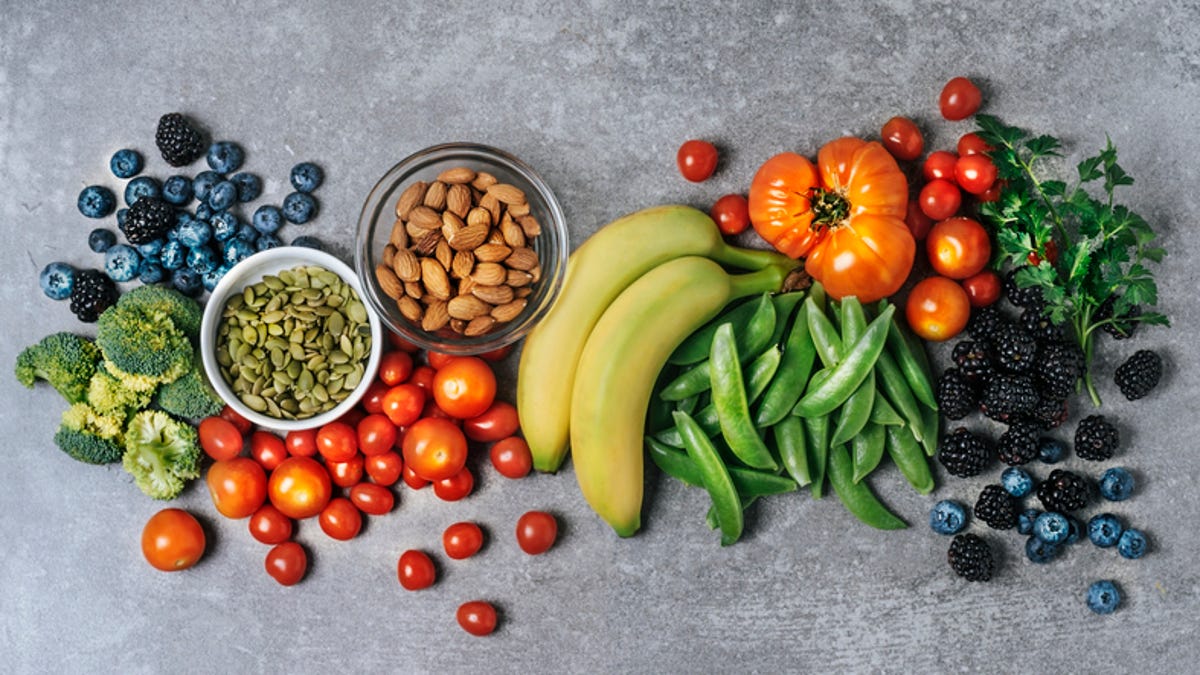
A great way to reach your health goals is to establish a realistic diet and exercise plan.
Reevaluate the diet you're on. Yo-yo dieting starts with unsustainable diets. You'll want to avoid any diets that rule out entire food groups. We're people, and sometimes we need a cookie or a soda or bowl of pasta. Most importantly, we need the space to decide what we eat and what we don't.
Think about what you're eating. In general, it's a good rule of thumb to try and avoid high amounts of sugar and sodium. But don't make foods off-limits for yourself. That's one of the main pitfalls of yo-yo dieting. Instead, try to find your balance and make the best choices for you.
Exercise. One of the main ways to combat yo-yo dieting is to exercise. Staying active will ensure you maintain a healthy weight during your long-term weight loss plan. Exercise will also help you avoid losing muscle mass over time. Just make sure to take breaks and don't over-exert yourself .
Check in with yourself. Don't forget to check in on yourself on your journey. How are you sleeping? How are you feeling? Has your relationship with food changed? Checking in on yourself now and then will help you make sure you're healthy in every sense.
Find help. Yo-yo dieting can be linked to binge eating disorder or other forms of disordered eating . Even if you don't have an eating disorder, if meals and weight are stressful topics for you, you can still get help and work through your relationship with food. You can reach out to your doctor, a counselor or the National Eating Disorders Association helpline .
Too long; didn't read? Here's what you need to know
Yo-yo dieting is the dark side of weight loss. And unfortunately, it happens to a lot of people. Remember, weight loss isn't synonymous with being healthy. Yo-yo weight cycling comes from unrealistic and sometimes unhealthy diets that we couldn't possibly maintain. Even if you've been stuck in the vicious cycle of weight loss and weight gain, it doesn't mean you can't get out of it.
More for your health and wellness needs
- Scientifically Backed Fitness Supplements Worth Taking
- Want to Lose Weight? You Need to Find Your BMR First
- 8 Personal-Trainer Approved Workouts You Should Be Doing
- Yes, You Can Build Muscle and Lose Fat at the Same Time
- Do You Really Need 3 Meals a Day? A Dietitian Cracks the Code
Nutrition Guides
- Best Meal Kit Delivery Service
- Best Healthy Meal Delivery Service
- Best Cheap Meal Delivery Service
- Hungryroot Review
- EveryPlate Review
- Best Vegan Meal Delivery Service
- Best Vegetarian Meal Delivery Service
- Best Keto Meal Delivery
- Best Grocery Delivery Service
- Fresh N Lean Review
- Blue Apron vs. Hello Fresh
- Best Weight Loss Programs
- Optavia Diet Review
- Noom Diet Review
- Nutrisystem Diet Review
- Weight Watchers Diet Review
- Noom vs. Weight Watchers
- Best Multivitamins
- Best Multivitamins for Men
- Best Multivitamins for Women
- Best Creatine Supplements
- Best Probiotics
- Best Supplements to Gain Weight
- Best Vitamin Subscription
- Best Vitamins for Energy
- Best Vitamins and Supplements for Joint Health
- Best Vitamins for Healthy Hair, Skin and Nails
Losing weight after 50: Jenna Leveille's Lumen Experience
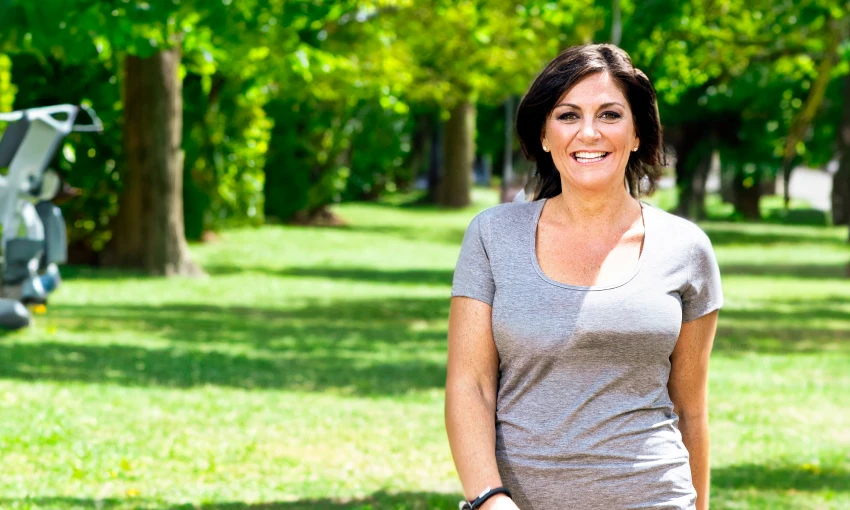
Jenna Leveille shares her Lumen journey and achieving midlife weight loss
Jenna has been sharing her weight loss story in the hopes of helping others who were struggling and founded the free community Getting Closer Every Day. She wanted to offer support where people felt safe and encouraged during their journey. After being pregnant with her daughter, she had trouble losing weight and started crash dieting.
We sat with Jenna to learn more about her journey and success in losing her midlife weight. Read on to see how she achieved her goals.
Describe your health journey before Lumen
I was on yoyo diets for years, losing weight, but often gaining it back. Then I started to exercise more and really improve my nutrition in a way that I could sustain. I managed to lose a lot of weight, but then I hit a plateau. I just couldn't lose the extra bit of weight I was still carrying. So that's when I found Lumen . With a lot of consistency and dedication, I managed to lose all the remaining weight with this device!
In the journey to heal my gut, nurturing a well-functioning metabolism becomes paramount, and my Lumen helped me dial down the good and the bad. That knowledge gave me the power to learn and make impactful changes.
I also started the online community during my weight loss journey back in 2013 and 14 after I had lost 140 pounds. I wanted to offer others the kind of support I received. You know how it's sometimes challenging to ask your friends or family repeatedly for support during a weight loss journey . That’s why I created a safe space for people to connect, share, and gain encouragement.

That sounds incredible. Can you give us more insight into this community?
Our community is beautiful and truly embodies what support, kindness, and wellness are all about. It's a kind group where people share not just weight loss journeys, but also other life challenges, like dealing with cancer or grieving the loss of a loved one. You can join our group for free at gettingclosereveryday.com.
How did you come across Lumen in your journey?
After a significant weight gain post-surgery, I was stuck in a cycle of gaining and losing the same 10 pounds. That's when I came across Lumen. The first month I used it, I lost 12 pounds! The technology and advice kept improving over time, and it made me feel more in control without being on a restrictive diet. Now I could finally see what was going on in my body and what fuel I was burning at a given time. This helped me improve my metabolic flexibility .
During your journey, did you face any challenges related to body composition or hormonal changes?
Absolutely. It took me a year to lose 100 pounds and another six months for the next 40. As I aged, especially after turning 50, I began to notice changes. I recently learned I'm post-menopause, and it has been a challenging period, both in terms of weight management and overall well-being.
Aging and hormonal changes are unavoidable challenges, and with menopause and post-menopause, there's a lot dictated by our hormones. Men too face a decline in hormones like testosterone. We might find it harder to lose weight as we age. But it's essential to be kind to ourselves and focus on what we can control.
Watch the full interview here:
Start your metabolic weight loss journey with lumen today >>, nutrition and exercise have been major factors in your journey. can you share more about how you tweaked these aspects during your weight loss.
Yes! What we consume and how we move our bodies are things we can control. During my time at LivingSocial, I observed my colleagues crushing their day-to-day tasks.
They'd get up early, work out, and yet no one was observing them. This motivated me to not revert to my old weight. So, I decided to engage with my team, my boss, my family, and friends.
There's this saying, "Fake it till you make it," and honestly, I felt like that was my approach until I began to believe in myself.
Every minor achievement was a triumph. I couldn't think of losing 150 pounds at once, so I broke it down into 10-pound goals. This approach was less overwhelming and more achievable for me.
Discussing menopause and other challenges women face. How has that affected your journey?
Accountability is crucial. Just like anyone else, I have my ups and downs. Right now, I'm navigating the challenges of menopause. Instead of using it as an excuse, I remember what I've achieved in the past and push forward. This isn't just about appearances; it's about holistic health and feeling good from the inside out. When you're healthy, you radiate happiness and positivity.
Would you say that a positive mindset was a foundational element for you?
Yes, it all starts with a mindset. I had champions in my corner. They would check in, asking about my work or what I ate that day. That's how community became essential to me. They rallied around my mission, and I'm not sure where I'd be without their support. Their continuous encouragement was invaluable.
Considering the struggles and challenges you faced, what's your primary message for others?
The journey might be tough, but the cycle of yo-yo dieting is even harder. It's mentally taxing to constantly feel like you need to diet or lose weight. Instead, buckle down, set smaller goals, and achieve them. This way, you can transition to a balanced lifestyle faster.
Many Lumen users transitioned from yo-yo dieting to understanding their macronutrients better. How do you feel about diet changes, especially during midlife?
It's crucial to understand our bodies. Under-eating, especially during phases like menopause, can be detrimental. Our bodies need adequate fuel to sustain muscle mass, which naturally declines as we age. Hence, we should do everything in our capacity to nurture and maintain our health.
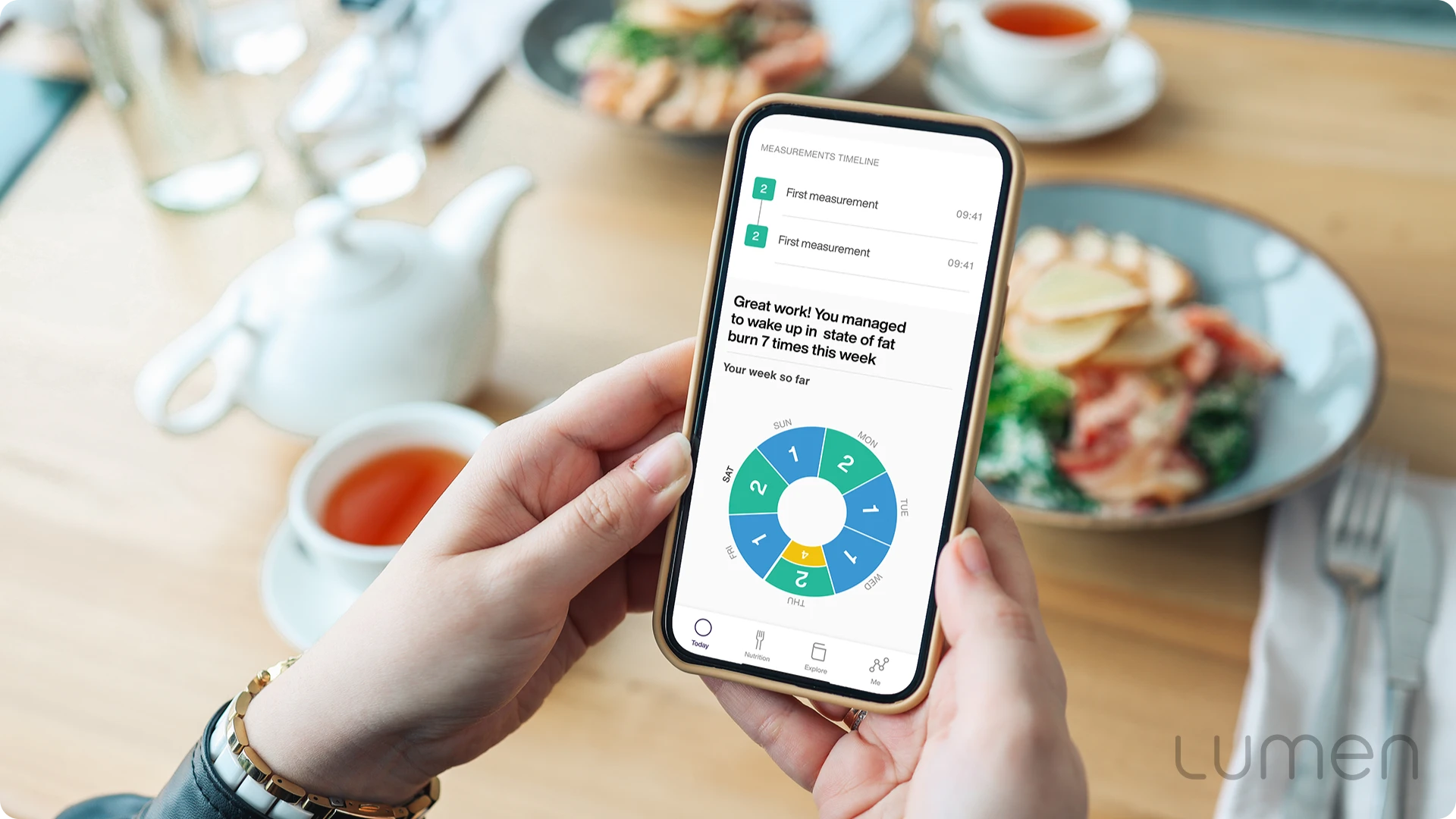
When discussing the importance of maintaining a balanced diet, you mentioned the idea of "intuitively carb cycling." Can you explain what you mean by that?
Intuitively carb cycling means understanding the types of carbs our body needs and when it needs them. It's been an eye-opener to realize I can eat carbs, but what's crucial is the type of carbs I consume.
The Lumen device was instrumental in teaching me this. So, while on my weight loss journey, I did not cut out carbs completely, I followed a personalized carb cycling meal plan . I went with a high protein, slightly lower carb diet. However, I never deprived myself of carbs.
For some reason, every Sunday, I just had to have my toast with grape jam. Some people were surprised I lost weight with such choices, but it's about the overall balance and understanding my body.
What about the pace of your weight loss? How did it fluctuate?
Great question. My weight loss varied: in one month I'd lose six pounds, another month four, and sometimes just two. The scale didn't always drop significantly, but I noticed my body shrinking. Rapid weight loss can be stressful for the body, so losing at a steadier, more manageable pace is beneficial.
Lastly, with all the challenges and vulnerabilities you've faced, what's your take on enjoying life while on a weight loss journey?
Life is meant to be enjoyed. Yes, we should have discipline, but there will be moments of indulgence. The key is to know how to pull yourself back and keep your goals in mind.
We all have our off days, but it's essential to create a balance and prioritize health most of the time. Allow yourselves to be happy, because true health makes you glow from the inside out.
I want everyone to know that when you work hard and dig deep you have the power to change your life! Whether you are trying to lose weight, get a better job, be more confident, or just try to live the happiest life you can, you can get closer every day with community support, wellness tools, and human kindness.
You don’t have to journey alone!
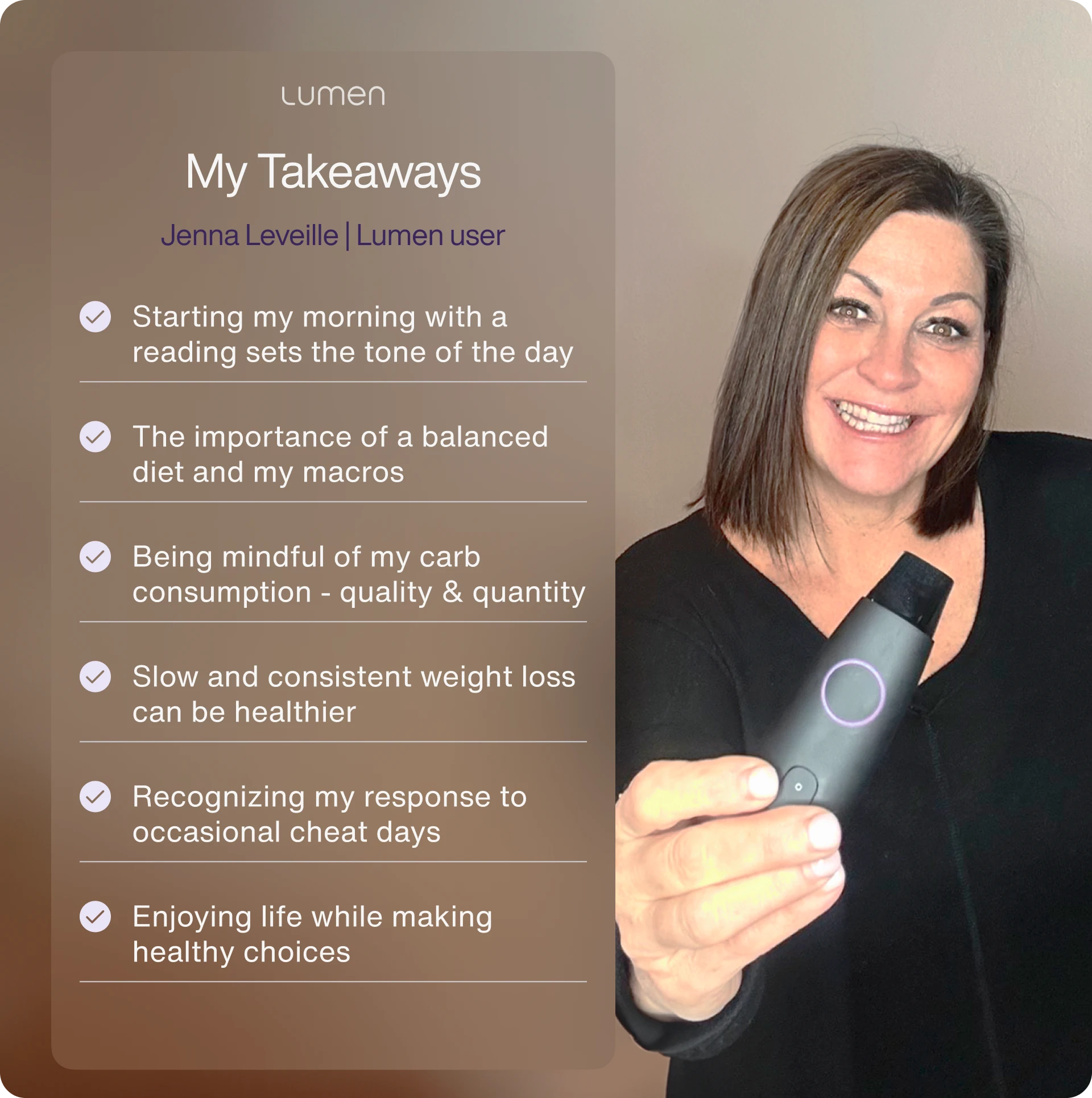
Here are some key points and takeaways from this section:
Balanced Diet: The importance of a balanced diet, including all macronutrients like carbohydrates, fats, and proteins, is emphasized. Restricting any of these can lead to adverse health effects.
Mindful Carb Consumption: While carbs are essential, it's crucial to be mindful of the type of carbs consumed.
Pace of Weight Loss: The pace at which one loses weight matters. Slow, consistent weight loss can be healthier and more sustainable than rapid weight loss.
Allowing Occasional Indulgences: The discussion touches upon the topic of "cheat days" or allowing oneself the occasional indulgence. While some people can rebound from a cheat day easily, others might find it hard to get back on track. Recognizing one's individual response to such days is vital.
Mental and Emotional Aspects: The psychological aspects of diet and weight loss play a pivotal role. It's important to be self-aware and gauge one's emotional and mental readiness before making significant changes or allowing deviations in the diet.
Enjoying Life: Ultimately, the goal is to enjoy life while making healthier choices. Balance is the key, and occasional indulgences should not lead to guilt but rather an understanding of one's journey and goals.

Lumen Editorial & Reviewed by: Mia Dige, Metabolic Coach
Mia is a Women’s Health Specialist and a Personal Trainer. She has a genuine passion for supporting and empowering people on their journeys to better health and happiness. Mia is currently a Metabolic Coach and Events Host at Lumen, regularly hosting talks with field experts on various health topics. Mia has a Bachelor’s degree in Zoology with Evolutionary Psychology & a Master’s degree in International Health.
8 reasons you experience weight fluctuations and how to manage it
Weight fluctuations are normal — in fact, everyone's weight fluctuates on a day-to-day basis

When you're on a weight loss journey, a weight fluctuation can feel disheartening when you've gained weight.
The key to weight fluctuations is to remember that they are a human experience. Everyone on the planet deals with daily fluctuations in their weight. And, if you're in the process of losing weight and have experienced increasing days of fluctuations that lean into weight gain, we're here to help.
How much can weight fluctuate in a day?
It's common for your weight to fluctuate up to two to three kilos from your set point each day! This is influenced by what food you eat and when as well as what you drink, the exercise you do and sleep can even play a role.
Why does weight fluctuate daily?
If you're wondering whether daily fluctuations are normal, the short answer is yes. There's nothing to worry about if you're experiencing small changes to your weight each day.
Your day-to-day weight changes largely depend on the food and drinks you consume. Salty food can cause fluid retention, which affects the number on the scales and may make them slightly higher.
Carbohydrates can also cause your body to hold onto water, leading to water weight and bloating. This increase in your weight can stick around until the bloating subsides.
Exercise can help reduce weight but if you're adequately hydrating post-workout, it may not result in weight loss on the scale thanks to your water intake. Bowel movements, on the other hand, can cause your weight to decrease a little after you've gone to the bathroom.
You might notice major weight fluctuations if your diet has changed after losing weight or if old habits have crept in and you're snacking more.
Research has also suggested that weight tends to go up on weekends due to a change in eating or exercise. A 2013 study of 48 healthy adults found that the participants consistently gained weight on weekend days but not on weekdays [1].
This was attributed to a higher dietary intake on Saturdays coupled with less physical activity on Sundays compared to weekdays. This demonstrates how your lifestyle behaviours can cause weight fluctuations and hinder weight loss.
What contributes to weight fluctuations?
You can experience small changes in your weight over the course of a single day for many reasons.
Things that can contribute to your weight fluctuating are:
- Consuming salty foods
- You haven't had a bowel movement
- Your body is reacting to stress
- You've eaten a meal high in carbs
- You've consumed alcohol
- You're dehydrated or overhydrated
- Your body is responding to heat
- You haven't had enough sleep
All of these moving parts, which can cause weight gain or weight loss, are why it's recommended that you don't weigh yourself at random times of the day as your weight will be heavily influenced by the above factors.
It's also important to remember that the number on the scale can change regularly as weight loss is never a linear process. You'll have days where your weight increases and other days where it decreases.
And, you'll probably experience days or even weeks where your weight stays the same — this is called a weight plateau and can be extremely frustrating when you're continuing with all of your healthy habits but not seeing any change.


What role does the menstrual cycle play in your weight fluctuations?
Weight gain before and during your period is a common experience for many women and there are a number of reasons why this happens.
Firstly, your appetite tends to change throughout your menstrual cycle and at certain times over the month, you may experience an increased or decreased appetite. When your appetite is increased, you may experience a small change in your weight as you may be eating more [2].
The same goes for cravings. Women tend to crave foods that are high in carbohydrates and fat during certain phases of the menstrual cycle and it's common to take in more calories during these times [3].
The final factor is water retention. Bloating is a common symptom connected to your period and when combined with the consumption of salty foods, it could cause the numbers on the scale to slightly increase.
To help combat this, try to fill your plate with lots of veggies and fruit where possible and remember to stay hydrated to help reduce the bloatedness [3].
What if my weight is starting to go up?
That's OK! The good thing is that you noticed a change on the scale and in your body. Now is a great time to stop and take a moment to reflect on your progress so far.
Has anything changed recently that could have influenced the weight gain? Are you doing anything differently?
Here are a few things that might be affecting your weight loss results.
- Hormonal changes
- You haven't been as active
- Some old habits have crept in
- Winging it with portion sizes
- Increase in stress levels
- You're not getting enough sleep
It's normal to gain weight — your body is in a constant state of flux and is changing every day — so try not to stress about this too much. Now is the time to get back to basics and recommit to your healthy habits.
Managing weight fluctuations
Losing weight is rarely a straightforward endeavour so try to take it a day at a time. But, there are a few things you can do to manage weight fluctuations.
When to weigh yourself
Your weight is influenced by everything from exercise to illness, alcohol intake and water consumption. This is why it's recommended that you weigh yourself at the same time every day to avoid getting huge discrepancies.
For example, if you weigh yourself as soon as you wake up in the morning, continue doing so at this time of day. It's also good to keep things consistent when you're weighing yourself.
Try weighing yourself without shoes and clothes if you can, or wear similar garments when hopping on the scales each day.
Weighing yourself at the same time of day will help give you an accurate representation of where you're at with your weight and help you jump back on the weight loss train.
A healthy helping hand
If you're dealing with a fluctuation where you have gained weight, you might want to try something new to help kickstart your weight loss once again.
Juniper's Nourish Shakes are one way to do this. These dietitian-approved meal replacement shakes help you achieve lasting weight loss with the nutritional benefit of a balanced meal.
With three delicious flavours — Chocolate, Vanilla and Espresso — each shake contains more than 40 per cent of your daily vitamin needs and is a good source of fibre, which helps keep you feeling fuller for longer.
On the Rapid weight loss plan, which involves consuming two shakes per day, it's normal to lose up to two kilos a week for the first four to six weeks.
Those on the Steady weight loss plan can help you lose four per cent of your body weight in 12 weeks by consuming one shake a day and combining it with a low-calorie diet.
This could be the boost you need to get going again.
Get back to basics
Another way to help combat major changes in your weight is to get back to basics. This will look different for each person but start by reflecting on any changes that might have occurred recently.
From here, you can discern what might be influencing some weight gain and makes changes accordingly. For example, if you haven't been as active lately, it might be helpful to book a few classes at the gym or schedule some walking dates with a friend.
If afternoon snacking has become a regular occurrence, it might be time to change what you're snacking on or make your lunchtime meal more filling.
While weight fluctuations are normal, they can be frustrating when you're on a weight loss journey. Try to remember that every choice you're making now is contributing to a healthier you.

Weight loss backed by science
Thousands of Australian women have found new confidence with Juniper.
Give this a go:

Nourish Shake One Off
Dietitian-approved meal replacement shakes that offer lasting weight loss, with the nutritional benefit of a balanced meal. Lose weight today with Juniper.
Articles you might like:
- https://www.ncbi.nlm.nih.gov/pmc/articles/PMC3740215/
- https://www.medicalnewstoday.com/articles/327326#overview
- https://www.everydayhealth.com/pms/weight-and-your-cycle.aspx
Read this next

How to overcome a weight loss plateau

What is considered to be a healthy BMI range in Australia?

Why does menopause cause you to gain weight?
- Health Conditions
- Health Products
10 tips for successful weight loss

A balanced lifestyle and nutritious diet are the key to healthful living and better weight control. Some tips for weight loss include exercising regularly, seeking social support, and keeping a food and weight diary.
According to the Centers for Disease Control and Prevention, around 93.3 million adults in the United States had obesity in 2015–2016. This number is equivalent to 39.8 percent of the population.
Carrying excess body weight can increase the risk of serious health problems, including heart disease , hypertension , and type 2 diabetes .
Crash diets are not a sustainable solution, whatever perks their proponents might claim them to have. To both lose weight safely and sustain that weight loss over time, it is essential to make gradual, permanent, and beneficial lifestyle changes.
In this article, we provide 10 tips for weight control.
People can lose weight and maintain this loss by taking several achievable steps. These include the following:
1. Eat varied, colorful, nutritionally dense foods

Healthful meals and snacks should form the foundation of the human diet. A simple way to create a meal plan is to make sure that each meal consists of 50 percent fruit and vegetables, 25 percent whole grains, and 25 percent protein. Total fiber intake should be 25–30 grams (g) daily.
Eliminate trans fats from the diet, and minimize the intake of saturated fats, which has a strong link with the incidence of coronary heart disease .
Instead, people can consume monounsaturated fatty acids (MUFA) or polyunsaturated fatty acids (PUFA), which are types of unsaturated fat.
The following foods are healthful and often rich in nutrients:
- fresh fruits and vegetables
- whole grains, such as brown rice and oatmeal
Foods to avoid eating include:
- foods with added oils, butter, and sugar
- fatty red or processed meats
- baked goods
- white bread
- processed foods
In some cases, removing certain foods from the diet might cause a person to become deficient in some necessary vitamins and minerals. A nutritionist, dietitian, or another healthcare professional can advise a person how to get enough nutrients while they are following a weight loss program.
2. Keep a food and weight diary
Self-monitoring is a critical factor in successfully losing weight. People can use a paper diary, mobile app, or dedicated website to record every item of food that they consume each day. They can also measure their progress by recording their weight on a weekly basis.
Those who can track their success in small increments and identify physical changes are much more likely to stick to a weight loss regimen.
People can also keep track of their body mass index ( BMI ) using a BMI calculator .
3. Engage in regular physical activity and exercise

Regular exercise is vital for both physical and mental health . Increasing the frequency of physical activity in a disciplined and purposeful way is often crucial for successful weight loss.
One hour of moderate-intensity activity per day, such as brisk walking, is ideal. If one hour per day is not possible, the Mayo Clinic suggests that a person should aim for a minimum of 150 minutes every week.
People who are not usually physically active should slowly increase the amount of exercise that they do and gradually increase its intensity. This approach is the most sustainable way to ensure that regular exercise becomes a part of their lifestyle.
In the same way that recording meals can psychologically help with weight loss, people may also benefit from keeping track of their physical activity. Many free mobile apps are available that track a person’s calorie balance after they log their food intake and exercise.
If the thought of a full workout seems intimidating to someone who is new to exercise, they can begin by doing the following activities to increase their exercise levels:
- taking the stairs
- raking leaves
- walking a dog
- playing outdoor games
- parking farther away from a building entrance
Individuals who have a low risk of coronary heart disease are unlikely to require medical assessment ahead of starting an exercise regimen.
However, prior medical evaluation may be advisable for some people, including those with diabetes . Anyone who is unsure about safe levels of exercise should speak to a healthcare professional.
4. Eliminate liquid calories
It is possible to consume hundreds of calories a day by drinking sugar-sweetened soda, tea, juice, or alcohol. These are known as “empty calories” because they provide extra energy content without offering any nutritional benefits.
Unless a person is consuming a smoothie to replace a meal, they should aim to stick to water or unsweetened tea and coffee . Adding a splash of fresh lemon or orange to water can provide flavor.
Avoid mistaking dehydration for hunger. An individual can often satisfy feelings of hunger between scheduled meal times with a drink of water.
5. Measure servings and control portions
Eating too much of any food, even low-calorie vegetables, can result in weight gain.
Therefore, people should avoid estimating a serving size or eating food directly from the packet. It is better to use measuring cups and serving size guides. Guessing leads to overestimating and the likelihood of eating a larger-than-necessary portion.
The following size comparisons can be useful for monitoring food intake when dining out:
- quarter of a cup is a golf ball
- one-half of a cup is a tennis ball
- 1 cup is a baseball
- 1 ounce (oz) of nuts is a loose handful
- 1 teaspoon is 1 playing die
- 1 tablespoon is a thumb tip
- 3 oz of meat is a deck of cards
- 1 slice is a DVD
These sizes are not exact, but they can help a person moderate their food intake when the correct tools are not available.
6. Eat mindfully
Many people benefit from mindful eating, which involves being fully aware of why, how, when, where, and what they eat.
Making more healthful food choices is a direct outcome of becoming more in tune with the body.
People who practice mindful eating also try to eat more slowly and savor their food, concentrating on the taste. Making a meal last for 20 minutes allows the body to register all of the signals for satiety.
It is important to focus on being satisfied after a meal rather than full and to bear in mind that many “all natural” or low-fat foods are not necessarily a healthful choice.
People can also consider the following questions regarding their meal choice:
- Is it good “value” for the calorie cost?
- Will it provide satiety?
- Are the ingredients healthful?
- If it has a label, how much fat and sodium does it contain?
7. Stimulus and cue control
Many social and environmental cues might encourage unnecessary eating. For example, some people are more likely to overeat while watching television. Others have trouble passing a bowl of candy to someone else without taking a piece.
By being aware of what may trigger the desire to snack on empty calories, people can think of ways to adjust their routine to limit these triggers.
8. Plan ahead
Stocking a kitchen with diet-friendly foods and creating structured meal plans will result in more significant weight loss.
People looking to lose weight or keep it off should clear their kitchen of processed or junk foods and ensure that they have the ingredients on hand to make simple, healthful meals. Doing this can prevent quick, unplanned, and careless eating.
Planning food choices before getting to social events or restaurants might also make the process easier.
9. Seek social support

Embracing the support of loved ones is an integral part of a successful weight loss journey.
Some people may wish to invite friends or family members to join them, while others might prefer to use social media to share their progress.
Other avenues of support may include:
- a positive social network
- group or individual counseling
- exercise clubs or partners
- employee-assistance programs at work
10. Stay positive
Weight loss is a gradual process, and a person may feel discouraged if the pounds do not drop off at quite the rate that they had anticipated.
Some days will be harder than others when sticking to a weight loss or maintenance program. A successful weight-loss program requires the individual to persevere and not give up when self-change seems too difficult.
Some people might need to reset their goals, potentially by adjusting the total number of calories they are aiming to eat or changing their exercise patterns.
The important thing is to keep a positive outlook and be persistent in working toward overcoming the barriers to successful weight loss.
Losing weight
Successful weight loss does not require people to follow a specific diet plan, such as Slimming World or Atkins . Instead, they should focus on eating fewer calories and moving more to achieve a negative energy balance.
Weight loss is primarily dependent on reducing the total intake of calories, not adjusting the proportions of carbohydrate , fat, and protein in the diet.
A reasonable weight loss goal to start seeing health benefits is a 5–10 percent reduction in body weight over a 6-month time frame.
Most people can achieve this goal by reducing their total calorie intake to somewhere in the range of 1,000–1,600 calories per day.
A diet of fewer than 1,000 calories per day will not provide sufficient daily nutrition .
After 6 months of dieting, the rate of weight loss usually declines, and body weight tends to plateau because people use less energy at a lower body weight. Following a weight maintenance program of healthful eating habits and regular physical activity is the best way to avoid regaining lost weight.
People who have a BMI equal to or higher than 30 with no obesity-related health problems may benefit from taking prescription weight-loss medications. These might also be suitable for people with a BMI equal to or higher than 27 with obesity-related diseases.
However, a person should only use medications to support the above lifestyle modifications. If attempts to lose weight are unsuccessful and a person’s BMI reaches 40 or over, surgical therapy is an option.
Maintaining weight loss involves a commitment to a healthful lifestyle, from which there is no “vacation.” Although people should feel free to enjoy a special meal out, a birthday celebration, or a joyful holiday feast without feeling guilty, they should try not to stray too far from the path of healthful eating and frequent physical activity.
Those who do may find that they lose focus. Gaining back lost weight is easier than losing it.
Achieving and maintaining weight loss is possible when people adopt lifestyle changes in the long term.
Regardless of any specific methods that help a person lose weight, individuals who are conscious of how and what they eat and engage in daily physical activity or regular exercise will be successful both in losing and keeping off excess weight.
I have an injury that is keeping me from physical exercise. Is there any way to continue keeping the weight off?
If your injury allows, you can do some simple exercises while sitting in a chair, such as lifting light weights. You can also use resistance bands while sitting or lying down.
Some other ways to keep the weight off include counting calories and sticking to a healthful diet that includes fruits, vegetables, lean meat and fish, and whole grains.
Ensure that you include plenty of nutrient-dense foods in your diet, take the time to plan meals, use portion control, drink plenty of water, and maintain a positive attitude.
Gerhard Whitworth, RN Answers represent the opinions of our medical experts. All content is strictly informational and should not be considered medical advice.
Last medically reviewed on January 15, 2019
- Nutrition / Diet
- Obesity / Weight Loss / Fitness
- Sports Medicine / Fitness
How we reviewed this article:
- Adult obesity facts. (2018, August 13) https://www.cdc.gov/obesity/data/adult.html
- How do I follow a healthy diet? (2015) https://www.heart.org/-/media/data-import/downloadables/pe-abh-how-do-i-follow-a-healthy-diet-ucm_300467.pdf
- Increasing fiber intake. (n.d.) https://www.ucsfhealth.org/education/increasing_fiber_intake/
- Knell, G., Li, Q., Gabriel, K. P., & Shuval, K. (2018, November). Long-term weight loss and metabolic health in adults concerned with maintaining or losing weight: Findings from NHANES [Abstract]. Mayo Clinic Proceedings, 93 (11), 1611-1616 https://www.mayoclinicproceedings.org/article/S0025-6196(18)30323-9/fulltext
- Kushner, R. F. (2014, January–February). Weight loss strategies for treatment of obesity [Abstract]. Progress in Cardiovascular Diseases , 56 (4), 465–472 https://www.ncbi.nlm.nih.gov/pubmed/24438739
- Laskowski, E. R. (2018, December 14). How much should the average adult exercise every day? Retrieved from https://www.mayoclinic.org/healthy-lifestyle/fitness/expert-answers/exercise/faq-20057916
- Planning meals using Eating Well with Canada’s Food Guide. (2017) https://www.dietitians.ca/Downloads/Public/Senior-Friendly-collection.aspx
- Weight management. (n.d.) https://www.nal.usda.gov/fnic-faq-categories/weight-management
- Willett, W. C., & Stampfer, M. J. (2013, January 7). Current evidence on healthy eating [Abstract]. Annual Review of Public Health , 34 , 77–95 https://www.ncbi.nlm.nih.gov/pubmed/23297654
Share this article
Latest news
- Young bone marrow transplants may help fight Alzheimer's, mouse study suggests
- 1 in 6 people who stop antidepressants face withdrawal symptoms
- Planetary Health Diet linked to lower risk of death from cancer, heart disease
- Can eating chili peppers actually increase obesity risk?
- Can statins help prevent cancer? New study offers clues
Related Coverage
A new trial explores the effect of varying the portion size of food and making healthful, low-calorie choices on women who are trying to lose weight…
So many of us try so hard to reach the ideal body weight that we desire, but the question is: once we achieve our weight goal, can we maintain it?
Exercise alone is unlikely to help you shift the pounds, a new study finds. Instead, physical activity should be combined with a healthful diet.
Although obese participants had higher levels of hunger and satiety hormones after 2 years of sustained weight loss, hunger hormones seemed to be…
Starting the day with a big breakfast, followed by a medium lunch and a small dinner, may benefit people with obesity and type 2 diabetes, new study…
📱 A month from now, you'll thank yourself for starting today. Click to get your 14 days of FREE workouts
- Sarah Louise & Bill Wynne
- Jan 9, 2022
How to Start Your Weight Loss Journey (+ Free Guide)
Starting a weight loss journey can seem daunting for many. How do you start? How often should you workout? How much cardio do you need to add? What and how much can you eat?
These are all valid questions. That's why today we're sharing our trainn tips on how to start a healthy weight loss journey 👇🏼

#1 Set a realistic weight loss goal 📝
You already know the direction you want your fitness journey to go in, but setting yourself a clear & realistic goal is paramount to success. It will keep you organised in your efforts, make it easier to track your progress & motivate you by how far you're progressing along the way.
How to do it:
Ask yourself a few key questions to determine your goal:
Is there a specific weight, feeling or health condition I am trying to achieve?
Do I have a certain time frame, or do I just want to change my overall lifestyle?
How many times per week do I realistically see myself working out long term?
Which healthy habits would I like to include more of in my life?
Which unhealthy habits would I like to minimise?
#2 Get the right amount of protein 🥜
Protein is an incredible help for your weight loss journey. It helps keep you full for longer so you snack less on sugary treats, and it maintains and builds up your muscles so you're burning fat, not muscle. Proteins will help repair muscle tissue after every workout and build them stronger for the next session . It's ideal to spread out your protein intake throughout the day instead of having it all in 1 or 2 meals. There's only so much protein our body can absorb in one sitting.
For each of your 3 main meals, aim to get in 15-30g of protein . This could for example be 180g tofu, 200g of cooked chickpeas, 2.5 eggs or 120g chicken or soy mince substitute.
Out of your 3 main meals every day , try to keep 1 of those meals solely protein and veg. This could be a spicy black bean chili, or scrambled tofu. For the other 2 meals be sure to include carbs & healthy fats as well.
💡 Reminder: just because you're trying to lose weight, it doesn't mean your diet should only consist of protein and vegetables - healthy carbs & fats are just as important. Fats keep your brain & hormones healthy, while carbs give you energy for your day (and workouts). Be sure to include carbs & healthy fats in your diet.
#3 Start a realistic workout routine 💪🏼
It’s easy to say to yourself you're going to start doing an hour of cardio everyday, but we all know this isn't realistic in the long run. If you do this, you'll burn yourself out after only a few weeks, and you'll have zero energy or motivation for your life outside the gym.
Therefore, when starting your weight loss journey, set a realistic amount of workouts you're able to maintain long term . Focus most of your workouts around strength training, and add in cardio slowly .
If we don't prioritise strength training during a weight loss journey, we risk our body burning muscle instead of fat. Strength training will also leave you with more overall rewarding results
Set yourself an amount of workouts per week, you can see yourself maintaining in the long run.
Ideally, aim to start with for 2-4 strength workouts per week and a total of 60-90 mins low intensity cardio per week . For best results, do cardio after your strength workouts or on separate days.
#4 Track your progress 📉
Whichever fitness journey you’re on, tracking your progress is useful. It will help you stay on track and motivate you in the long run.
The 2 best measures of progress for your weight loss journey are taking pictures and weighing yourself (in the morning, before eating) Pictures help us see the changes we don’t notice looking in the mirror every day. Comparing them to your start pictures will motivate you more than you think!
Weighing yourself regularly lets you know if you're losing weight steadily and when it's time to make any changes.
Aim to take pictures before your journey and every 8-10 weeks thereafter; and weigh yourself every few days.
Track your progress daily or weekly. If you notice a few weeks go by without any change in the numbers, make small changes to your nutrition or add in more exercise.

#5 Avoid hitting a plateau ✍🏼
Hitting a plateau is when your progress comes to a standstill – when you haven’t lost weight for a few weeks and you’re not feeling stronger in the gym. You feel like you've hit a stop.
Don't worry, many of us hit a plateau every once in a while. It's completely normal and only means your body has adapted so you need to introduce a few further changes. It is however important to remind yourself that your weight won’t necessarily go down every single week - that’s normal. So don't take any drastic measures after a bad few days or a week.
If 2 or 3 weeks go by with no progress at all, try making simple adjustments like eating more protein, swapping out your snacks, lowering calories slightly, or upping your strength or cardio training. Nothing too drastic.
With a personalised training plan from the trainn app you'll know exactly how to workout each week and see the right amount of progress in your workouts, so you can avoid as much as possible hitting a plateau.
Reminder: as motivating as it is to see your weight go down every day, it's completely normal if a few days (or even a week) goes by without any progress in your weight. It's normal and your body sometimes needs time to adjust. So don't beat yourself up or make any drastic changes after a few "bad days" 😌
#6 Have a healthy approach to food 🌱
It’s no secret that to lose weight you'll need to make a few diet changes. However, it's important to build a diet you can see yourself maintaining in the long run.
As easy as it is to set up strict rules for yourself like "I'll only eat chicken salads from now on" and "I can never eat chocolate or ice cream", this is not sustainable. Avoid falling into the trap of thinking there are good foods and bad foods . Instead, think that there are certain foods you should eat more of (protein, veggies and wholegrain carbs) and other foods you should enjoy in moderation (sugary treats or fried food)
Having a balanced diet with all kinds of food is proven to not only be more relaxed and enjoyable, but also help you maintain your new weight for life.

Let's wrap up - here's what you should do
There can be plenty of changes to make when starting a weight loss journey, which is why a slow and steady approach give you the best results in the long run. To recap here are the initial steps you should go through:
Set yourself a realistic goal
Build in strength training 2-4 times per week
Slowly build up cardio
Include protein with every meal
Include carbs & fats for 2 meals per day
Make minor adjustments if your progress stalls
Keep a routine of tracking your progress
Enjoy food with a healthy mindset and don't set up strict rules for yourself
We have created a FREE 20-week Trainn Guide designed to help you level up your workouts. Every week you'll receive effective workouts, high-protein recipes and healthy habits to live by. Click here to start the 20-week Trainn Guide .
Ready to start chasing your fitness goals? Download the trainn app.
Related Posts
The 12-3-30 workout: The most effective 30 minute workout
17 tips for maintaining a social life while dieting
How to Get 120g of Protein a Day as a Vegan (+ Recipes)

Start your fitness journey today 💪🏼
Download trainn to start your personalised workouts & healthy habits. 14 day free trial..
A woman who lost 55 pounds by making 2 simple changes shared 10 fat-loss lessons she learned
- Megan Tjelle lost 55 pounds by walking and eating in a calorie deficit.
- She lost a further 50 pounds by taking the weight-loss drug Wegovy.
- Tjelle shared 10 lessons from her weight-loss journey, including the importance of patience.

Megan Tjelle's weight had fluctuated for over a decade. She would try a fad diet and lose some weight but then always gain it back — and more.
As her 30th birthday approached, Tjelle had lost her self-confidence and knew she needed to make a change.
This time, she wanted to get healthier and lose weight in a way that was sustainable. In October 2022, she started small, and by eating in a calorie deficit and walking, Tjelle, from Chicago, lost 55 pounds in six months, she told Business Insider.
Struggling with " food noise " and worried about plateauing, Tjelle saw her doctor, who suggested she try the appetite-suppressing weight-loss drug Wegovy (which contains the same medication as Ozempic), which she promptly did.
Tjelle lost a further 50 pounds over eight months and is now taking a maintenance dose of the medication. She has also progressed in her workout regimen, having built up to running a half-marathon and doing strength training. Those on such drugs, known as GLP-1 agonists , are advised to eat healthily and exercise while taking them.
Tjelle's experience reflects how approaches and attitudes toward weight loss are changing . A report by Research and Markets found the global weight-loss-drug market was estimated to grow from $3.83 billion in 2023 to $44.12 billion in 2029 as more people looked to combine medication with healthy diets and exercise to lose weight, often after struggling to hit their goals "naturally."
Tjelle, now 30, shared the 10 fat-loss and fitness lessons she learned during her journey.
1. Patience is key
Tjelle said she found it frustrating at times when she didn't see fast progress.
"I had to remind myself that I didn't gain the weight overnight and I am not going to lose it overnight, either," she said.
She learned to focus on taking things one day at a time, describing it as considering the step in front of you, not the whole staircase.
2. Consistency is important
Tjelle realized she didn't need to do grueling workouts or eat an overly restrictive diet every day to make progress: She just needed to do something that was a step in the right direction.
"The most important (and the hardest) part of the process is to start," she said.
3. Drinking your calories makes fat loss harder
While alcohol is a big source of liquid calories for some people, Tjelle realized she was consuming too many creamy, sugary coffee drinks , some of which contained over 400 calories each. Cutting down on them helped her hit her goals, she said.
"When you're trying to lose weight, these calories really add up, and they don't even fill you up or really provide any nutritional value," Tjelle said.
Related stories
Nutrition experts have previously told BI that there's nothing wrong with occasionally eating less nutritious foods that you enjoy, but consuming them less frequently can improve health and help you hit your fat-loss goals.
4. Walking is great for fat loss
"Walking was by far the most effective exercise for weight loss early in my weight-loss journey," Tjelle said.
She felt overwhelmed and self-conscious walking into a gym for the first time in years, but she knew she could walk for 30 minutes every day.
"It's great for beginners because it's low impact with very low risk of injury," Tjelle said.
Walking can be great for fat loss because it burns calories without ramping up hunger, which higher-intensity cardio does for some people.
5. Calories count
Whether you count calories or not, they count. Tjelle learned about the calorie content of different foods and made sure she was in a deficit by ordering meals from a healthy delivery service called Seattle Sutton.
"Once I got into a true calorie deficit, I saw results right away," she said.
6. You can still eat foods you enjoy
Tjelle learned that she could enjoy everything she likes in moderation and still lose fat, and she didn't need to cut out any food groups.
"I found that overrestricting just led to me eating even more of the food that I was restricting," she said.
On her weight-loss journey, Tjelle celebrated milestones by going out to eat at her favorite places, including sushi restaurants, because she thought it was important to still enjoy life and celebrate her wins.
7. Falling off track doesn't ruin your progress
Tjelle used to throw in the towel and go back to her old habits whenever she had a day or even a meal that took her out of her calorie deficit. But now she knows to just get back on track .
"It's important to remember that a slipup or bad day is not going to ruin your progress, and you just have to keep going," she said.
8. Having a positive attitude toward exercise helps
Tjelle exercised consistently when she stopped thinking of it as a chore and instead focused on the benefits.
"Changing my mindset from, 'I have to,' to, 'I get to,' was key for me," she said. "I realized how grateful I am to be able to move my body every day and do something that makes me feel good."
9. You are your greatest investment
Previously, Tjelle always pushed exercise and healthy eating to the bottom of her priority list. But now she realizes how important it is to prioritize her health .
"What helped me on the really hard days was thinking about what my life will look like at my ideal weight and how different everything will look (in a good way)," she said.
10. You won't always feel motivated
For the first few months of her weight-loss journey, Tjelle really didn't want to go to the gym, she said. But she stayed consistent even when she didn't feel like it, instead of relying on motivation, and she gradually started to enjoy it more.
"I really struggled to get there every day, but I reminded myself that this was not going to be easy but the long-term results would be so worth it," Tjelle said.
- Main content
- Weight Management
- Nutrition Facts
- Nutrition Basics
- Meal Delivery Services
- Fitness Gear
- Apparel & Accessories
- Recipe Nutrition Calculator
- Weight Loss Calorie Goal
- BMI Calculator
- Body Fat Percentage Calculator
- Calories Burned by Activity
- Daily Calories Burned
- Pace Calculator
- Editorial Process
- Meet Our Review Board
How to Set and Plan Weight Loss Goals
:max_bytes(150000):strip_icc():format(webp)/PaigeNew-594a893c3df78c537b843956.jpg)
Heather Black, CPT is a NASM-certified personal trainer and owner of Heather Black Fitness & Nutrition where she offers remote and in-person training and nutrition coaching.
:max_bytes(150000):strip_icc():format(webp)/HeatherBlack-1000-0d30639669b240cda64e4a942e99b0a1.jpg)
Zing Images/Getty Images
Do You Need to Lose Weight?
- SMART Goals
Achieving Your Goals
- Sample Plan
Figuring out how much weight you want to lose is the first step on a new weight loss journey. There are many different ways to come up with a long-term goal that's both realistic and aspirational. Setting your sights on the future can help fuel the motivation needed to make healthy changes. Here's how to get started.
A lot of people feel like they should lose weight, even if that's not always the case. It's not uncommon to have an unrealistic view of what a healthy weight really is. There are broad parameters to determine whether weight loss is recommended for health reasons. In general, a good candidate for weight loss may have the following measurements:
- BMI : Greater than 25
- Waist circumference : Abdominal girth measurement of more than 35 inches in women and 40 inches in men
- Waist to hip ratio : Higher than 0.8 for women and higher than 1.0 men
Body Mass Index (BMI) is a dated, biased measure that doesn’t account for several factors, such as body composition, ethnicity, race, gender, and age.
Despite being a flawed measure , BMI is widely used today in the medical community because it is an inexpensive and quick method for analyzing potential health status and outcomes.
If you're losing weight for your health, a modest goal of 5% to 10% of your current weight can begin to improve important markers like blood pressure and blood sugar levels. Other benefits of even a moderate weight loss can include more energy, a boost in self-confidence, improved fitness, and better mobility.
However, sometimes our goals are based on other factors, like the desire to fit back into old clothes or look a certain way. As long as our goals are realistic and don't veer into a dangerous underweight category, there's nothing wrong with setting a vanity goal.
Together with your health care provider, you can decide whether or not it's a good time to set a weight loss goal.
SMART Goal Setting
The key to setting weight loss goals is to follow the standard of goal setting, which means it needs to be SMART. A SMART goal stands for the following characteristics:
- Specific : Be clear about your intention by putting some numbers and details into your goal.
- Measurable : How will you keep track of your progress? Will you measure body weight, waist circumference, or exercise performance?
- Attainable : Do you have the time, resources, and motivation to reach your goal?
- Realistic : It's OK to set an ambitious goal as long as it's possible and within reach.
- Time-bound : Set a deadline for your goal. Break it up into shorter-term milestones to stay on track for the long haul.
The main thing to remember is that sustainable weight loss takes time.
Once you've determined that you're ready to lose weight, you'll need the proper tools to set your plan in motion. Keep in mind that a healthy rate of weight loss is 1 to 2 pounds per week. Losing weight at this slow and steady pace gives you the best chance of maintaining your progress long term.
It's helpful to get an idea of how many calories your body requires to lose or maintain weight. This weight loss calculator will help you set a daily calorie target to achieve your weight loss goals.
This calorie deficit can be achieved through a combination of mindful eating and increased physical activity. Focus on making healthy choices each day and give it time to see progress on the scale or in your body measurements. Consistency is the key to success.
Sample Weight Loss Plan
Here's what a sample weight loss plan (using SMART goal objectives) might look like:
Mary is 5'7" tall and weighs 160 pounds. Her goal is to lose 10 pounds in 12 weeks. To do that, she would need to cut back or burn off 300 to 500 calories each day. Using a combination of healthy eating and exercise is the best way to lose weight since dieting alone can cause you to lose muscle mass.
Muscle mass is more metabolically active than fat (meaning it burns more calories). Keeping the muscle you have and building more through resistance training will help support your ultimate weight loss goals.
Mary's plan to reach her goals:
- Replace her morning Egg McMuffin (300 calories) with a bowl of oatmeal (about 180 calories).
- Replace one Coke (150 calories) with sparkling water (0 calories).
- Walk for at least 30 minutes at 3.5-4.0 mph, 3 days a week (approx. 180 to 240 calories burned).
- Strength train 2 days a week for 30 minutes (approx. 140 to 280 calories burned)
With this plan, Mary will create a calorie deficit of 270 to 550 calories each day (depending on whether she exercises). By measuring her weight each week or so, she can determine if these changes are sufficient to get her to reach her long-term goals.
Looking at this example, you can see that these are fairly modest changes. Mary isn't revamping her entire life, she's simply picking a few things she can change to get started.
What's interesting is that, as she continues with her healthy behaviors, she may start to do even more, not just because she wants to lose weight but because she's going to start feeling better, stronger, more confident.
Try breaking down your goal into specific steps like this and track your progress. Just remember to adjust your plan if your results start to stall or if you are struggling to be consistent.
A Word From Verywell
If you're not losing weight as quickly as you had hoped don't get discouraged. Remember, your goal needs to be attainable, so be willing to adjust and set new goals if the old ones aren't working for you. Even a little bit of progress can benefit your overall health and well-being. Focus on small changes that add up over time.
Czernichow S, Kengne AP, Stamatakis E, Hamer M, Batty GD. Body mass index, waist circumference and waist-hip ratio: Which is the better discriminator of cardiovascular disease mortality risk? Evidence from an individual-participant meta-analysis of 82,864 participants from nine cohort studies . Obes Rev . 2011;12(9):680-687. doi:10.1111/j.1467-789X.2011.00879.x
Centers for Disease Control and Prevention. Assessing your weight .
Centers for Disease Control and Prevention. Losing weight .
Mcpherron AC, Guo T, Bond ND, Gavrilova O. Increasing muscle mass to improve metabolism . Adipocyte . 2013;2(2):92-8. doi:10.4161/adip.22500
ACE Fit. A guide for S.M.A.R.T. goal setting .
By Paige Waehner, CPT Paige Waehner is a certified personal trainer, author of the "Guide to Become a Personal Trainer," and co-author of "The Buzz on Exercise & Fitness."
The Best Diet: Quality Counts
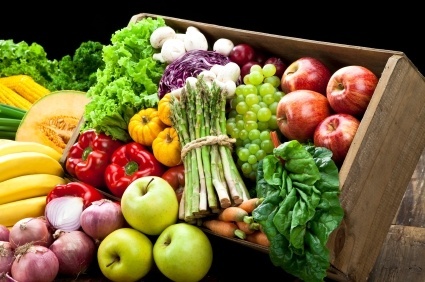
- Dietary guidelines have changed over the years as research becomes more accurate in determining what we should eat to attain optimal health and weight. The strongest evidence to date shows that calories matter, but focusing on food quality is an equally important part of preventing weight gain and promoting weight loss.
- Focus on eating high-quality foods in appropriately sized portions.
Consider quality, not just calories
“A calorie is a calorie” is an oft-repeated dietary slogan, and not overeating is indeed an important health measure. Rather than focusing on calories alone, however, emerging research shows that quality is also key in determining what we should eat and what we should avoid in order to achieve and maintain a healthy weight. Rather than choosing foods based only on caloric value, think instead about choosing high-quality, healthy foods, and minimizing low-quality foods.
- High-quality foods include unrefined, minimally processed foods such as vegetables and fruits, whole grains, healthy fats and healthy sources of protein – the foods recommended in the Healthy Eating Plate .
- Lower-quality foods include highly processed snack foods, sugar-sweetened beverages, refined (white) grains, refined sugar, fried foods, foods high in saturated and trans fats, and high-glycemic foods such as potatoes.
There isn’t one “perfect” diet for everyone, owing to individual differences in genes and lifestyle.
Quality counts
One study analyzed whether certain foods were more or less likely to promote weight gain. This type of research examining specific foods and drinks allows us to understand whether “a calorie is a calorie,” or if eating more higher-quality foods and fewer lower-quality foods can lead to weight loss and maintenance.
Researchers in the Department of Nutrition at Harvard School of Public Health show us that quality is in fact very important in determining what we should eat to achieve and maintain a healthy weight, and that the notion of “a calorie is a calorie” does not tell the whole story.
- In a study of over 120,000 healthy women and men spanning 20 years, researchers determined that weight change was most strongly associated with the intake of potato chips, potatoes, sugar-sweetened beverages, and both processed and unprocessed red meats. The researchers concluded that consumption of processed foods higher in starches, refined grains, fats, and sugars can increase weight gain.
- Foods shown to be associated with weight loss were vegetables, whole grains, fruits, nuts, and yogurt.
- Researchers did not discount the importance of calories, instead suggesting that choosing high-quality foods (and decreasing consumption of lower-quality foods) is an important factor in helping individuals consume fewer calories. ( 23 )
View the HSPH news release , “Changes in specific dietary factors may have big impact on long-term weight gain: Weight-loss Strategy to Only ‘Eat Less, Exercise More” May be Overly Simplistic’”
Managing macronutrients: Does it matter?
With the proliferation of macronutrient-based diets over the past several decades, from low-fat to low-carbohydrate, discussion of the three main macronutrients – carbohydrates, proteins, and fats – has become standard when talking about optimal diets. Researchers have begun comparing these “macronutrient management”-style diets to one another in order to determine which is most effective, but thus far evidence is largely inconclusive.
One study, published in JAMA in 2007, compared four weight-loss diets ranging from low to high carbohydrate intake. This 12-month trial followed over 300 overweight and obese premenopausal women, randomly assigning them to either an Atkins (very low carbohydrate), Zone (low carbohydrate), LEARN (high carbohydrate), or Ornish (very high in carbohydrate) diet.
- After one year, weight loss was greater for women in the Atkins diet group compared with the other diet groups.
- This study also examined secondary outcomes focused on metabolic effects (such as cholesterol, body fat percentage, glucose levels and blood pressure), and found that those for the Atkins group were comparable with or more favorable than the other diet groups.
- There was no significant difference in weight loss among the other three diets (Zone, LEARN, and Ornish).
- This study does raise questions about about long-term effects and mechanisms, but the researchers concluded that a low-carbohydrate, high-protein, high-fat diet may be considered a feasible recommendation for weight loss. ( 24 )
Another study, published in The New England Journal of Medicine in 2009, challenged the above study’s findings by testing four different types of diets and producing results that showed comparable average weight loss among the different diets.
- The study followed 800 people over 2 years, assigning subjects to one of four diets: Low-fat and average-protein, low-fat and high-protein, high-fat and average-protein, and high-fat and high protein.
- Researchers concluded that all of the diets resulted in meaningful weight loss, despite the differences in macronutrient composition.
- The study also found that the more group counseling sessions participants attended, the more weight they lost, and the less weight they regained. This supports the idea that not only is what you eat important, but behavioral, psychological, and social factors are important for weight loss as well. ( 25 )
An additional study, published in The New England Journal of Medicine in 2010, looked at the role of protein and glycemic index upon weight loss maintenance. Researchers first implemented a low-calorie diet to produce weight loss, then examined whether protein and glycemic index impacted weight loss maintenance.
- The study population was made up of nearly 800 overweight adults from European countries who had lost at least 8% of their initial body weight with a low-calorie diet. Participants were then assigned one of five diets to prevent weight regain over a 26-week period: A low-protein and low-glycemic-index diet, a low-protein and high-glycemic-index diet, a high-protein and low-glycemic-index diet, a high-protein and high-glycemic-index diet, or a control diet.
- The low-protein-high-glycemic-index diet was associated with subsequent significant weight regain, and weight regain was less in the groups assigned to a high-protein diet than in those assigned to a low-protein diet, as well as less in the groups assigned to a low-glycemic-index diet than in those assigned to a high-glycemic-index diet.
- These results show that a modest increase in protein content and a modest reduction in the glycemic index led to an improvement in maintenance of weight loss. ( 26 )
The results from these three studies suggest that there may be some benefits to a macronutrient-based dietary approach, but research also shows that while a particular diet may result in weight loss for one person, it may not be effective for another person due to individual differences in genes and lifestyle. For those seeking the “perfect” one-size-fits-all diet, then, there isn’t one! The great news is that everyone can follow The Healthy Eating Plate guidelines and choose healthy, flavorful foods to create a diet that works best for you.
23. Mozaffarian, D., et al., Changes in diet and lifestyle and long-term weight gain in women and men . N Engl J Med , 2011. 364(25): p. 2392-404. 24. Gardner, C.D., et al., Comparison of the Atkins, Zone, Ornish, and LEARN diets for change in weight and related risk factors among overweight premenopausal women: the A TO Z Weight Loss Study: a randomized trial. JAMA , 2007. 297(9): p. 969-77. 25. Sacks, F.M., et al., Comparison of weight-loss diets with different compositions of fat, protein, and carbohydrates . N Engl J Med , 2009. 360(9): p. 859-73. 26. Larsen, T.M., et al., Diets with high or low protein content and glycemic index for weight-loss maintenance . N Engl J Med , 2010. 363(22): p. 2102-13.
Terms of Use
The contents of this website are for educational purposes and are not intended to offer personal medical advice. You should seek the advice of your physician or other qualified health provider with any questions you may have regarding a medical condition. Never disregard professional medical advice or delay in seeking it because of something you have read on this website. The Nutrition Source does not recommend or endorse any products.
An official website of the United States government
The .gov means it’s official. Federal government websites often end in .gov or .mil. Before sharing sensitive information, make sure you’re on a federal government site.
The site is secure. The https:// ensures that you are connecting to the official website and that any information you provide is encrypted and transmitted securely.
- Publications
- Account settings
Preview improvements coming to the PMC website in October 2024. Learn More or Try it out now .
- Advanced Search
- Journal List
- J Obes Metab Syndr
- v.29(3); 2020 Sep 30

Clinical Evidence and Mechanisms of High-Protein Diet-Induced Weight Loss
Jaecheol moon.
1 Department of Internal Medicine, Jeju National University Hospital, Jeju, Korea
Gwanpyo Koh
2 Department of Internal Medicine, Jeju National University School of Medicine, Jeju, Korea
Several clinical trials have found that consuming more protein than the recommended dietary allowance not only reduces body weight (BW), but also enhances body composition by decreasing fat mass while preserving fat-free mass (FFM) in both low-calorie and standard-calorie diets. Fairly long-term clinical trials of 6–12 months reported that a high-protein diet (HPD) provides weight-loss effects and can prevent weight regain after weight loss. HPD has not been reported to have adverse effects on health in terms of bone density or renal function in healthy adults. Among gut-derived hormones, glucagon-like peptide-1, cholecystokinin, and peptide tyrosine-tyrosine reduce appetite, while ghrelin enhances appetite. HPD increases these anorexigenic hormone levels while decreasing orexigenic hormone levels, resulting in increased satiety signaling and, eventually, reduced food intake. Additionally, elevated diet-induced thermogenesis (DIT), increased blood amino acid concentration, increased hepatic gluconeogenesis, and increased ketogenesis caused by higher dietary protein contribute to increased satiety. The mechanism by which HPD increases energy expenditure involves two aspects: first, proteins have a markedly higher DIT than carbohydrates and fats. Second, protein intake prevents a decrease in FFM, which helps maintain resting energy expenditure despite weight loss. In conclusion, HPD is an effective and safe tool for weight reduction that can prevent obesity and obesity-related diseases. However, long-term clinical trials spanning more than 12 months should be conducted to further substantiate HPD effects.
INTRODUCTION
Prevalence of obesity around the world have increased rapidly in recent years. This phenomenon poses serious health risks because obesity can progressively cause a wide range of diseases such metabolic syndrome, non-alcoholic fatty liver disease, type 2 diabetes, and cardiovascular diseases. 1 To resolve obesity, a negative energy balance, in which energy expenditure is greater than energy intake, must be encouraged. This can be achieved via an energy-restricted diet. 2 However, an energy-restricted diet carries the risk of post-loss weight regain because it increases hunger and decreases fullness. Furthermore, weight loss through an energy-restricted diet reduces fat mass and fat-free mass (FFM), which hinders a continuous negative energy balance. To overcome this, lowering energy intake while maintaining fullness and FFM is crucial, and a high-protein, energy-restricted diet is one important strategy. 3 , 4 In this review article, we examine the clinical evidence for the weight-loss effects and side effects of high-protein diet (HPD) and introduce various mechanisms through which HPD increases satiety and induces weight loss while preserving FFM.
CLINICAL OUTCOMES WITH HPD
Protein is a component of the human body, a source of energy, and an essential nutrient that facilitates growth and development. The recommended dietary allowance of protein to avoid protein deficiency in adults is 0.80 g/kg body weight (BW)/day, which translates to about 48–56 g/day and about 10%–15% of the total daily energy expenditure. 5 To date, many clinical trials have attempted to regulate BW through high protein consumption more than the recommended dietary allowance ( Table 1 ).
Summary of studies on HPD
Values are presented as mean (95% confidence interval) or mean± standard deviation.
HPD, high-protein diet; NS, not significant; BMI, body mass index; FFM, fat-free mass; REE, resting energy expenditure; SBP, systolic blood pressure; DBP, diastolic blood pressure; TC, total cholesterol; HDL-C, high-density lipoprotein cholesterol; LDL-C, low-density lipoprotein cholesterol; HbA1c, glycosylated hemoglobin; FFA, free fatty acids.
Wycherley et al. 4 conducted a meta-analysis of 24 randomized controlled trials (RCTs) that compared HPD and standard-protein diet (SPD) with isocaloric, energy-restricted diets. Subjects in the HPD group consumed 1.07–1.60 g protein/kg BW/day (27%–35% of total energy intake consumed as protein), and subjects in the SPD group consumed 0.55–0.88 g/kg BW/day (16%–21% of total energy intake consumed as protein), with the two groups having a difference less than 1,250 kJ/day in total energy intake. A total of 1,063 participants were enrolled, and the mean (±standard deviation) diet duration was 12.1±9.3 weeks. Compared with subjects in the SPD group, those in the HPD group showed a significant reduction in BW (–0.79 kg; 95% confidence interval [CI], –1.50 to –0.08 kg), fat mass (–0.87 kg; 95% CI, –1.26 to –0.48 kg), and blood triglycerides (–20.3 mg/dL; 95% CI, –29.2 to –10. 6 mg/dL) and a significant increase in FFM (0.43 kg; 95% CI, 0.09–0.78 kg) and resting energy expenditure (REE; 595.5 kJ/day; 95% CI, 67.0– 1,124.1 kJ/day). Santesso et al. 6 conducted a meta-analysis of 74 RCTs with less than 5% difference in calorie intake between the two study groups regardless of energy restriction. Compared with subjects in the SPD group who consumed protein as 5%–23% of their daily total energy, subjects in the HPD group who consumed protein as 16%–45% of their daily total energy showed a significant decrease in BW (–0.36 kg; 95% CI, –0.56 to –0.17 kg), body mass index (–0.37 kg/m 2 ; 95% CI, –0.56 to 0.19 kg/m 2 ), waist circumference (–0.43 cm; 95% CI, –0.69 to –0.16 cm), and blood pressure (systolic: –0.21 mmHg; 95% CI, –0.32 to –0.09 mmHg and diastolic: –0.18 mmHg; 95% CI, –0.29 to –0.06 mmHg), but the degree of improvement was small.
Most clinical trials examining the effects of HPD used controlled diets, which were provided by the investigators. However, Skov et al. 7 and Weigle et al. 8 conducted clinical trials involving ad libitum diets. Skov et al. 7 conducted a six-month randomized dietary intervention trial, where participants were divided into an HPD (protein as 25% of total energy intake, n=25), high-carbohydrate diet (protein as 12% of total energy intake, n=25), or control group (n=15), with fat intake set to 30% of total energy intake. Although the participants followed an ad libitum diet at designated restaurants, they were instructed to strictly adhere to the required diet composition. In contrast to other controlled feeding trials, the withdrawal rate was very low (<10%). After 6 months, participants in the high-protein group significantly lost BW (–3.7 kg; 95% CI, –6.2 to –1.3 kg) and fat mass (–3.3 kg; 95% CI, –5.5 to –1.1 kg) compared with those in the high-carbohydrate diet group. Similar results were observed in the study by Weigle et al. 8 That study was a single-arm trial involving a weight-maintaining diet (15% protein, 35% fat, and 50% carbohydrate) for the first 2 weeks, an isocaloric HPD (30% protein, 20% fat, and 50% carbohydrate) for the next 2 weeks, and an ad libitum HPD (30% protein, 20% fat, and 50% carbohydrate) for the next 12 weeks. After HPD, satiety increased, while BW (–4.9± 0.5 kg) and fat mass (–3.7±0.4 kg) significantly decreased.
Some studies examined the effect of HPD on weight regain after weight loss. Westerterp-Plantenga et al. 9 induced weight loss through a 4-week, very low-energy diet in 148 mildly obese participants, after which protein was additionally administered at 48.2 g/day for 3 months. The participants in the group given additional protein consumed 18% of their daily total energy as protein, while the control group consumed 15% of their daily total energy as protein. Participants in the protein group showed 50% less weight regain compared with control-group participants. Weight regain constituted FFM in the protein-group participants and fat mass in the controlgroup participants. Lejeune et al. 10 also observed less weight regain in participants consuming 30 g/day of protein for 6 months (0.8 vs. 3.0 kg; P <0.05). Clifton et al. 11 and Layman et al. 12 compared HPD and high-carbohydrate diet for nine and 12 months, respectively, and they confirmed a correlation between protein intake and weight loss and between protein intake and fat-mass reduction, respectively.
In conclusion, many clinical trials have shown that consuming more protein than the recommended dietary allowance induces weight loss and improves body composition regardless of total energy intake. HPD was also observed to have long-term weight-loss effects and to prevent weight regain following initial weight loss.
POSSIBLE HARMFUL EFFECTS OF HPD
The benefits of HPD are well known, but there have been concerns that it may be harmful to the bones and kidneys. It has long been hypothesized that HPD increases the resorption of bones, which act as buffers, by increasing the acid load in the body, 13 and some researchers argued that HPD increases risk for bone fracture and osteoporosis by accelerating bone resorption and urinary calcium excretion. 14 However, a meta-analysis of 74 RCTs observed that subjects in the HPD group (16%–45% of total daily energy intake as protein) were not significantly different from low-protein-diet subjects (5%–23% of total daily energy intake as protein) with regard to bone mineral density of the lumbar spine and hips. 6 Furthermore, low protein intake is generally considered a nutritional deficiency. In particular, it has been described as a factor affecting osteoporosis development in older adults. 15 Hannan et al. 16 reported that protein intake was negatively correlated with bone loss in their Framingham Osteoporosis Study, which prospectively examined 615 older adults over four years. There have also been concerns that HPD may deteriorate renal function by increasing the glomerular filtration rate (GFR) and inducing renal hypertrophy. However, Friedman et al. 17 found no declining renal function in terms of various indicators such as GFR and albuminuria when studying the safety of HPD in 307 obese adults with normal renal function over two years (24 months). Nevertheless, they reported increased calcium level in urine with neither reduction in bone mineral density nor urolithiasis, calling for further studies. Knight et al. 18 also reported no association of high protein intake with change in GFR in their prospective Nurses’ Health Study, which involved 1,624 females. They noted that GFR decreased by 1.69 mL/min per 1.73 m 2 in participants with mild renal insufficiency (GFR 55–80 mL/min/ 1.73 m 2 ) when protein intake was increased by 10 g. Overall, HPD does not lead to reduced bone mineral density. On the contrary, high protein intake can help prevent bone loss in older adults who are prone to nutritional deficiency. While HPD also does not affect renal function in healthy people, it can adversely affect renal function in people with kidney disease. There is not a clear definition of the upper limit of beneficial protein intake, but Millward 19 reported in their study on energy-restricted HPD that up to 1.66 g/kg BW/ day does not pose a health hazard. Martens et al. 20 and Bray et al. 21 studied HPD with neutral or positive energy balance, and they reported that consuming an amount of protein that accounts for 25%–30% of the total daily energy intake for 10–12 weeks did not induce any adverse effects. However, more long-term clinical trials are required to identify a safe upper limit of HPD.
MECHANISMS OF HPD-INDUCED WEIGHT LOSS
Dietary protein not only decreases BW by increasing satiety and energy expenditure, but also improves body composition by increasing FFM. Increased satiety from protein intake is associated with elevation of blood amino acid (AA) concentration, hunger-inhibiting hormones, diet-induced thermogenesis (DIT), and ketone body levels. While HPD induces a negative energy balance—a state of greater energy output than input—by increasing DIT and sleeping metabolic rate, low-protein diets promote a positive energy balance. 22
Energy expenditure
HPD increases energy expenditure by increasing DIT and resting metabolism. Daily energy expenditure is divided into three elements: (1) sleeping metabolic rate or REE, (2) DIT or diet-induced energy expenditure, and (3) activity-induced energy expenditure. Protein intake generally affects DIT. 2 DIT refers to the energy required for intestinal absorption of nutrients, early stages of nutrient metabolism, and nutrient storage. The total energy and protein percentage of a diet are the major determinants of DIT. In other words, DIT increases with increasing calories and protein content. DIT is known to be 0%–3% of total energy intake for fat, 5%–10% for carbohydrates, and 20%–30% for proteins. 23
HPD also contributes to weight loss by preventing a decline in REE. Wycherley et al. 4 performed a meta-analysis of 24 RCTs and found that, while subjects in both the HPD (1.25±0.17 g protein/ kg BW/day) and SPD (0.72±0.09 g protein/kg BW/day) groups had reduced REE, REE was higher in the HPD subjects (142 kcal/ day, 95% CI, 16–269 kcal/day). HPD is known to preserve REE by preventing lean mass loss. 4
Once DIT is increased by HPD, satiety is also increased. The increased oxygen demand required to metabolize consumed protein also increases satiety. 24 In a similar mechanism, people who live at high altitudes, where oxygen pressure is low, are lighter due to lower dietary intake. 25
In general, dietary protein increases energy expenditure because it has a markedly higher DIT than fat and carbohydrates, and it preserves REE by preventing lean mass loss. Furthermore, increased DIT increases satiety, which also contributes to weight loss.
Satiety hormones
To the best of our knowledge, Holt et al. 26 were the first to show that dietary protein increases satiety. In their study, they rated satiety for 38 foods, and protein-rich food received the highest ratings, followed by carbohydrate-rich and fat-rich foods. They further reported that a food’s protein content was proportional to its satiety index score, while fat content was inversely proportional to satiety index score.
One of the important mechanisms of HPD-induced satiety involves elevation of the anorexigenic hormones glucagon-like peptide- 1 (GLP-1), cholecystokinin (CCK), and peptide tyrosine-tyrosine (PYY). 27 , 28 Release of GLP-1, CCK, and PYY is stimulated by proteins that also stimulate the vagus nerve, thus reducing food intake. 29 The enteroendocrine cells that secrete these anorexigenic hormones are situated at the luminal side of the gut. These cells detect nutrients in the gastrointestinal tract and release GLP-1, PYY, and CCK, which increase satiety and decrease food intake. 30 , 31 Many clinical trials that compared the effects of HPD and SPD on the indices of appetite regulation and satiety found that HPD increased plasma PYY, GLP-1, and CCK levels, with a proportional increase in fullness and decrease in hunger sense. 32 , 33
Ghrelin is an orexigenic hormone that induces food intake by increasing hunger, and its plasma concentration is decreased by protein intake. 34 Bowen et al. 35 , 36 found that liquid preloads containing protein rather than glucose significantly suppressed ghrelin release. In conclusion, dietary protein elevates GLP-1, CCK, and PYY levels, which are secreted in the gut and diminish appetite while also decreasing ghrelin levels, which increases appetite. Such changes in the release of satiety hormones constitute an important mechanism of HPD-induced weight loss.
Aminostatic hypothesis
The aminostatic hypothesis, which proposes that elevated levels of plasma AAs increase satiety and, conversely, decrease the plasma AA that induces hunger, was first introduced in 1956. 37 According to this hypothesis, surplus AAs not involved in the body’s protein synthesis stimulate the brain’s satiety signaling. Multiple studies reported that HPDs significantly increased plasma AA concentration 38 and satiety 24 , 39 compared with high-fat or high-carbohydrate diets. However, the aminostatic theory has recently lost support because fasting plasma AA levels are not associated with appetite, and increased plasma AA concentration following protein intake is not consistently associated with appetite. 40 Future studies should more specifically examine the homeostatic mechanism that connects peripheral organs to the central nervous system, which might explain the aminostatic hypothesis.
Gluconeogensis
Increased gluconeogenesis due to dietary protein is another mechanism of HPD-induced weight loss. With HPD, AAs remaining after protein synthesis are involved in an alternative pathway known as gluconeogenesis. 41 HPD increases the expression of phosphoenolpyruvate carboxykinase, an enzyme that initiates gluconeogenesis, and glucose-6-phosphatase, an enzyme involved in the final stages of gluconeogenesis. As such, the increased energy usage in gluconeogenesis increases energy expenditure, contributing to weight loss. 42 Furthermore, the elevation of glucose as a result of gluconeogenesis and the subsequent elevation of hepatic glycogen synthesis because of increased glucose level are known to intensify the sense of satiety in the brain. 42 , 43
Ketogenesis
Compared to a standard diet, high-protein and low-carbohydrate diets increase fasting blood β-hydroxybutyrate concentration. Elevated β-hydroxybutyrate concentration is known to directly increase satiety. 44 Veldhorst et al. 45 reported that, although carbohydrate-free HPD increased gluconeogenesis, the mechanism did not involve appetite; rather, they speculated that the elevated β-hydroxybutyrate level triggered satiety. On the other hand, some argue that HPD does not suppress appetite, but only prevents an appetite increase. In other words, one’s appetite remains the same with both energyrestricted HPD and the standard-energy medium-protein diet, but the high-protein content in HPD contributes to weight loss by preventing excessive food intake at the next meal even if the total energy intake was low. 20 , 46
Clinical trials with various designs have found that HPD induces weight loss and lowers cardiovascular disease risk factors such as blood triglycerides and blood pressure while preserving FFM. Such weight-loss effects of protein were observed in both energyrestricted and standard-energy diets and in long-term clinical trials with follow-up durations of 6–12 months. Contrary to some concerns, there is no evidence that HPD is harmful to the bones or kidneys. However, longer clinical trials that span more than one year are required to examine the effects and safety of HPD in more depth.
The mechanism underlying HPD-induced weight loss involves an increase in satiety and energy expenditure. Increased satiety is believed to be a result of elevated levels of anorexigenic hormones, decreased levels of orexigenic hormones, increased DIT, elevated plasma AA levels, increased hepatic gluconeogenesis, and increased ketogenesis from the higher protein intake. Protein is known to increase energy expenditure by having a markedly higher DIT than carbohydrates and fat, and increasing protein intake preserves REE by preventing FFM decrease ( Fig. 1 ).

Schematic of the proposed high-protein diet-induced weight loss mechanism. ↑, increase; ↓, decrease; FFM, fat-free mass; DIT, diet-induced thermogenesis; GLP-1, glucagon-like peptide-1; CCK, cholecystokinin; PYY, peptide tyrosine-tyrosine; AA, amino acid; REE, resting energy expenditure.
In conclusion, HPD is a safe method for losing weight while preserving FFM; it is thought to also prevent obesity and obesity-related diseases, such as metabolic syndrome, non-alcoholic fatty liver disease, type 2 diabetes, and cardiovascular diseases.
ACKNOWLEDGMENTS
This work was supported by the 2020 education, research, and student guidance grant, funded by Jeju National University.
CONFLICTS OF INTEREST
The authors declare no conflict of interest.
AUTHOR CONTRIBUTIONS
Study concept and design: GK; acquisition of data: all authors; analysis and interpretation of data: all authors; drafting of the manuscript: JM; critical revision of the manuscript: GK; obtained funding: GK; administrative, technical, or material support: GK; and study supervision: GK.
Appointments at Mayo Clinic
- Weight loss
I'm trying to lose weight. Could protein shakes help?
Makers of protein shakes may say that their products help lower body fat or promote weight loss. But protein shakes aren't a magic way to lose weight.
Some studies find that consuming a higher than usual amount of protein in your diet may offer benefits. For example, eating or drinking products that are high in protein may help you lower body fat, keep lean muscle, feel full and lose weight. But evidence is limited. And studies often test many protein sources and not only protein shakes.
Replacing meals with protein shakes may help you lower your daily calories, which can help you lose weight. But in time you'll need to start eating solid food again. Eating solid food may cause excess weight to return if you don't make smart food choices. And if you rely too much on protein shakes to replace daily meals, you'll miss out on the healthy benefits of whole foods.
Since protein has calories, consuming too much can make it harder to lose weight. This can happen if you drink protein shakes along with your usual diet and you're not eating less calories or exercising.
The Dietary Guidelines for Americans state that an average adult needs about 46 to 56 grams of protein a day. This amount depends on your weight and overall health. As long as you're eating a healthy diet, you likely don't need to add extra protein through protein shakes or other sources.
Keep in mind that the key to losing weight is burning more calories than you consume. Choose healthy foods, such as:
- Whole grains such as brown rice or whole-wheat bread
- Low-fat or fat-free dairy products such as milk, yogurt and cheese
- Protein-rich foods such as skinless chicken breasts, eggs, fish, beans, peas, lentils, soy products, nuts and seeds
And avoid eating too much food with added sugars, salt or saturated fat.
Also add physical activity to your daily routine. Aim for about 30 minutes of activity, such as brisk walking, most days of the week. And do strength training of all major muscle groups at least two times a week.
Katherine Zeratsky, R.D., L.D.
There is a problem with information submitted for this request. Review/update the information highlighted below and resubmit the form.
From Mayo Clinic to your inbox
Sign up for free and stay up to date on research advancements, health tips, current health topics, and expertise on managing health. Click here for an email preview.
Error Email field is required
Error Include a valid email address
To provide you with the most relevant and helpful information, and understand which information is beneficial, we may combine your email and website usage information with other information we have about you. If you are a Mayo Clinic patient, this could include protected health information. If we combine this information with your protected health information, we will treat all of that information as protected health information and will only use or disclose that information as set forth in our notice of privacy practices. You may opt-out of email communications at any time by clicking on the unsubscribe link in the e-mail.
Thank you for subscribing!
You'll soon start receiving the latest Mayo Clinic health information you requested in your inbox.
Sorry something went wrong with your subscription
Please, try again in a couple of minutes
- Phentermine for weight loss
- Vitamin B-12 injections
- AskMayoExpert. Healthy diet (adult). Mayo Clinic; 2022.
- Healthy eating for a healthy weight. Centers for Disease Control and Prevention. www.cdc.gov/healthyweight/healthy_eating/. Accessed April 6, 2022.
- Protein foods. U.S. Department of Agriculture. https://www.myplate.gov/eat-healthy/protein-foods. Accessed April 6, 2022.
- Colditz GA. Healthy diet in adults. https://www.uptodate/contents/search. Accessed April 6, 2022.
- 2020-2025 Dietary Guidelines for Americans. U.S. Department of Health and Human Services and U.S. Department of Agriculture. https://www.dietaryguidelines.gov. Accessed April 6, 2022.
- Van Baak MA, et al. Dietary strategies for weight loss maintenance. Nutrients. 2019; doi:10.3390/nu11081916.
- Cuenca-Sanchez M, et al. Controversies surrounding high-protein diet intake: Satiating effect and kidney and bone health. Advances in Nutrition. 2015; doi:10.3945/an.114.007716.
- Kim JE, et al. Effect of dietary intake on body composition changes. Effects of dietary protein intake on body composition changes after weight loss in older adults: A systematic review and meta-analysis. Nutrition Reviews. 2016; doi:10.1093/nutrit/nuv065.
- Hector AJ, et al. Protein recommendations for weight loss in elite athletes: A focus on body composition and performance. International Journal of Sport Nutrition and Exercise Metabolism. 2018; doi:10.1123/ijsnem.2017-0273.
- Duyff RL. Academy of Nutrition and Dietetics Complete Food and Nutrition Guide. 5th ed. Houghton Mifflin Harcourt; 2017.
- Raymond JL, et al., eds. Krause and Mahan's Food & the Nutrition Care Process. 15th ed. Kindle edition. Elsevier; 2021.
Products and Services
- A Book: The Mayo Clinic Diet Bundle
- The Mayo Clinic Diet Online
- Alli weight-loss pill
- Apple cider vinegar
- Bariatric surgery
- Biliopancreatic diversion with duodenal switch (BPD/DS)
- Dietary supplements for weight loss
- Endoscopic intragastric balloon
- Endoscopic sleeve gastroplasty
- Endoscopic Sleeve Gastroplasty (Gastric Sleeve)
- Gastric bypass (Roux-en-Y)
- Weight-loss surgery
- Intragastric balloon
- Prescription weight-loss drugs
- Biliopancreatic diversion with duodenal switch
- Natural diuretics
Mayo Clinic does not endorse companies or products. Advertising revenue supports our not-for-profit mission.
- Opportunities
Mayo Clinic Press
Check out these best-sellers and special offers on books and newsletters from Mayo Clinic Press .
- Mayo Clinic on Incontinence - Mayo Clinic Press Mayo Clinic on Incontinence
- The Essential Diabetes Book - Mayo Clinic Press The Essential Diabetes Book
- Mayo Clinic on Hearing and Balance - Mayo Clinic Press Mayo Clinic on Hearing and Balance
- FREE Mayo Clinic Diet Assessment - Mayo Clinic Press FREE Mayo Clinic Diet Assessment
- Mayo Clinic Health Letter - FREE book - Mayo Clinic Press Mayo Clinic Health Letter - FREE book
- Healthy Lifestyle
- Expert Answers
- Protein shakes Good for weight loss
We’re transforming healthcare
Make a gift now and help create new and better solutions for more than 1.3 million patients who turn to Mayo Clinic each year.
Jon Gosselin Shares "Beach Day" Body Transformation Amid Weight-Loss Journey
Jon gosselin, who shared he was using a semaglutide injections like ozempic, showcased his body transformation while enjoying a beach day with girlfriend stephanie lebo..
Jon Gosselin is making a splash with his latest photo.
The Jon & Kate Plus 8 alum showed off his toned figure during a sun-filled day with his girlfriend Stephanie Lebo in Brigantine, NJ.
As he captioned his June 9 Instagram , "Beach day." In the snapshot, Jon rocked a light blue fitted tank top and bright orange swim trunks, while the lash artist kissed his cheek and posed in a crop top and cut-off denim shorts.
The 47-year-old's body transformation comes two months after he opened up about losing 32 pounds with the help of semaglutide injections—a generic form of the Type 2 diabetes drug, like Ozempic .
"You know what's annoying?" he told Page Six in an interview published April 26. "The regret of not starting it 10 years ago. I feel amazing! Like, why didn't I do this sooner? Maybe it wasn't the right time."
Jon—who shares twins Cara and Mady , 23, and sextuplets Aaden , Joel , Alexis , Leah , Hannah and Collin , 19, with ex-wife Kate Gosselin —explained what inspired his weight-loss journey.
"A lot of things were going on emotionally and I went to court a lot, which was super expensive," he explained, hinting at his divorce proceedings and multiple custody battles with Kate. "It just wasn't a good time in my life. But now I finally have time to focus on myself."
In addition to taking medication, the DJ noted he made another major lifestyle change: "I just told myself, 'Dude, you've got to stop eating fries. You've just got to stop eating drive-thru food.'"
It also helps to have Stephanie's support.
"She is my best friend," Jon recently told E! News' Francesca Amiker . "I have guy friends, but this is different. I confide in her with everything. It's very relieving, and I can just go be me."
As he put it, "It took me a long time to find someone like that."
Jon isn't the only star to candidly speak out about his body transformation. Keep reading to see how celebrities have lost weight and focused on their health.
Kelly Clarkson
Yep, the talk show host is standing a little taller these days. Informed by doctors she was pre-diabetic , "I dropped weight because I've been listening to my doctor—a couple years I didn't," the singer explained to People . "And 90 percent of the time I'm really good at it because a protein diet is good for me anyway."
She is a Texas girlie after all, "so I like meat—sorry, vegetarians in the world!"
The mom to River and Remington is also enjoying exploring her new life in NYC . “Walking in the city is quite the workout,” she added. “And I’m really into infrared saunas right now. And I just got a cold plunge because everybody wore me down.”
Not in her tool kit: The weight loss drug du jour. "My doctor chased me for like two years and I was like, 'No, I'm afraid of it. I already have thyroid problems,'" she explained on a May 2024 episode of The Kelly Clarkson Show . "Everybody thinks it Ozempic. It's not." Rather, it's another unnamed medicine, she continued, "Something that aids in helping break down the sugar—obviously my body doesn't do it right."
Oprah Winfrey
You get some health advice! And you get some health advice! Because now that the media legend is feeling better than ever , she's dishing out her best tips. "It's not one thing," she stressed to Entertainment Tonight of her treadmill workouts, hikes, water consumption and nutritious eats, "it's everything ."
While Winfrey hasn't named the weight loss medication she's using, she told People in December, "The fact that there's a medically approved prescription for managing weight and staying healthier, in my lifetime, feels like relief, like redemption, like a gift, and not something to hide behind and once again be ridiculed for," she explained of adding that particular tool to her arsenal. "I’m absolutely done with the shaming from other people and particularly myself."
Tarek El Moussa
Living proof that you can, in fact, flip your life, the HGTV personality detailed his two-year fitness journey in a July 2023 Instagram post .
"Sometimes you think you’re doing the right thing but what you actually need is redirection in order to see growth," he wrote. While his previous regimen included the occasional hot yoga class with wife Heather Rae El Moussa , the reality star noted that he wasn't following a particular routine, tracking his protein intake or receiving any sort of guidance.
Enter: nutritionist Sean Torbati . Now, "I’m eating the right food & Hot yoga 1-2 times a week which is so good for my mental & physical state," the dad of three explained. "It all comes down to motivation and perseverance."
For him, "Once I realized how BADLY I wanted to feel good and be healthy—for myself, my wife, my kids, and my longevity—was the second I put my head down and got to work!!"
Whoopi Goldberg
The View cohost revealed she used Mounjaro —a type 2 diabetes medication —to slim down after gaining weight in 2021.
"I weighed almost 300 pounds when I made Till ," she said on the March 19 episode of the daytime talk show. "I had taken all those steroids, I was on all this stuff, and one of the things that's helped me drop the weight is Mounjaro. That's what I use."
Whitney Way Thore
The reality star knows she's fabulous with or without your compliments thank you very much . Responding to speculation that she had undergone a dramatic body transformation, the My Big Fat Fabulous Life star responded in a February Instagram post , "I hate addressing this, but no, I have not had medical intervention to lose weight."
And while she noted she had dropped 100 pounds from her previously 385-pound frame, including 50 after mom Barbara "Babs" Thore 's December 2022 death , "I weigh 285 pounds and I have been this weight for almost a year now."
Bottom line, she continued, "Thank you for the compliments, but I really don't like obsessing over my body and I don't like it when others do it either."
Valerie Bertinelli
Well aware that she's hot in Cleveland, L.A. or wherever else she happens to be, the actress gave her refreshing take on body image with a February Instagram post .
"This is a 150lb body on a 5'4 frame," the Food Network host wrote, sharing a 2014 bikini photo. "I don't weigh myself anymore because this is considered overweight by who's [sic] standards, I don't know. It's stupid and I believed them for far too long."
Fully removed from the pressures of dieting, "I now, finally, know that I am a kind, considerate, funny, thoughtful woman," she continued. "So please remember, who you are and what your character is, should never be overshadowed by what size you are or how much you weigh. You are enough. Just the way you are."
As for anyone that might not agree, she summed up, "F--k ‘em."
Post Malone
Man, the musician feels just like a rockstar since dropping 55 pounds . "I've had a lot of people ask me about my weight loss and i'd suppose, performance on stage," he acknowledged in an April 2023 Instagram post . "i'm having a lot of fun performing, and have never felt healthier."
His inspiration, he continued, was the daughter he welcomed in 2022 : "i guess dad life kicked in and i decided to kick soda, and start eating better so i can be around for a long time for this little angel. next up is smokes and brews, but i like to consider myself a patient man."
Kelly Osbourne
Why, yes, she did feel the pressure to snap back after welcoming son Sidney in November 2022. "It became my mission," she told E! News of dropping 85 pounds in that initial postpartum period. "I was obsessed with it because I didn't even want to get brought into the conversation, I just wanted to be left alone."
Not that she's recommending her strict AF approach. "It was a lot of work," she said. "It was miserable. I was hungry all the time, but I'm really happy with the results."
John Goodman
The Roseanne alum has hit a lot of highs and lows throughout his health journey. "In the old days, I would take three months out, lose 60 or 70 pounds, and then reward myself with a six-pack or whatever and just go back to my old habits," he explained in 2017. "This time I wanted to do it slowly. Move, exercise. I'm getting to the age where I can't afford to sit still anymore."
His sensible approach—lots of walking and a Mediterranean diet heavy on fish, vegetables and nuts—has helped him maintain a 200-pound weight loss . "It's a life of rehab," he admitted to Men's Health . "But it's a labor of love."
After being diagnosed with type 2 diabetes and losing both his dad and brother to heart attacks, The Price Is Right host decided to take a spin at healthier eating.
“No carbs,” he told Entertainment Tonight of his winning formula that also included a lot of daily cardio. “I have cheated a couple times, but basically no carbs, not even a cracker. No bread at all. No pizza, nothing. No corn, no beans, no starches of any kind. Egg whites in the morning or like, Greek yogurt, cut some fruit.”
And to wash it all down, “I don’t drink anything but water,” he said. “No coffee, no tea, no soda.”
Tammy Slaton
A huge loss has led to some pretty big gains for the 1000-lb Sisters star . Since shedding a remarkable 440 pounds, she's celebrated a series of milestones, documented on her TLC show: Flying for the first time , being able to buckle her seatbelt on a plane and ride in the front seat of a car , inside a hot air balloon and on rides at Disney World.
"Some people take small things for granted," Slaton explained in a February TikTok . "Like being able to buckle a seatbelt and not have to use an extender. It's big for me. Because I hadn't been able to do that stuff in years."
Now, continued the reality star, "I'm more or less like giving myself a pat on the back for achieving something and doing it. Getting the weight off and living. That's what I'm doing. I can finally say I'm living life."
Brittany Cartwright
Raise your glasses high to this healthy take from the Vanderpump Rules alum. While the Jenny Craig brand ambassador is hoping to see some results now that she's recommitted to the meal plan, "I'm also just trying to maintain and be the best version of myself for my son," she explained to E! News in February. Because while she "would definitely love to lose some weight," it's more important to model healthy habits for her and Jax Taylor 's son Cruz .
"I just think it's important to show him a healthy routine," said the future star of The Valley . "Working out is so important to me and for my mental health. I just think that being involved in a good healthy journey is super important for me."
Megan Thee Stallion
All that work on her body-ody-ody-ody-ody has paid off for the musician who has dedicated herself to going hard on strength training.
"I'm really proud of my journey," the star told People in 2023. "Fitness has become a part of my lifestyle. I've been disciplined and committed to working out on a regular basis and investing in my health."
And with all the work she's been putting in, she continued, “I might have to drop a Hottie Bootcamp sometime soon." A little sample: A heart-pounding mix of deadlifts, jump-roping, forward lunges and mountain climbers. "This s--t burn like a motherf--ker," she said in one video . "But I know you see them thighs popping."
Shay Mitchell
When the world shut down in March 2020, mere months after the Pretty Little Liars alum gave birth to her first daughter Atlas , "I felt the least motivated I ever have," she shared with E! News . "Everything had kind of come to a halt and so truly I just thought, well, eff it."
Workout plans were tossed out the window along with her long-held "everything in moderation" way of eating. Having slid from the first few months of postpartum into the free-for-all that was 2020 "eating 100 percent s---ty food" had taken a toll and she missed feeling good about her body.
Approached with the idea of signing on for Openfit's 4 Weeks of Focus with trainer Kelsey Heenan , she was pumped but skeptical.
After four straight weeks kicking off her mornings with lemon-infused warm water and a 30-minute sweat session ("It included HIIT, it included cardio, it included strength training," she said of the varied full-body routines) and recommitting to healthy meal choices ("If I want pizza, I'll have pizza and dump some spinach on it") she was a convert. "I was like, 'Hoooooly...' you know," she admitted. "I've been active my entire life. I have never lifted a 40-pound weight, lifted a 50-pound."
Though the fitness influencer does a fair amount of sweating, it's never about the small stuff. The social media star—also known as Fat Girl Fed Up online—revealed in a December Instagram that she didn't quite hit her goal of getting under 200 pounds. But she still felt like celebrating .
"I have to keep reminding myself progress is progress, no matter how small," she noted. "I just know I worked really hard this week. But it's OK, because I didn't gain all that weight overnight, I'm not gonna lose it overnight either. So keep going, no matter what."
Because she knows all of her health goals are within reach. "I will get to wonderland," she said. "Whether it's next week or next year, we're gonna get there, eventually. Keep going, believe in yourself, progress not perfection."
Jonathan Van Ness
Wanting to get stronger so they could tumble into a more intense gymnastics routine, the Queer Eye star truly stuck the landing when it came to their health journey.
"I got a nutritionist back in April. I've lost 35 lbs," they shared in an August 2022 TikTok, showing off their body transformation. "Here's the thing, I wanted to change my body size because of my gymnastics and my career."
However, they cautioned, don't assume you're going to nail that metaphorical aerial on your first try. "It took three weeks before I saw any change," the Love That Story author admitted. "So, if you're wanting to make a change, literally three weeks of working out and eating differently before I saw any change."
Dylan Sprouse
Before turning 30 in 2022, the Disney Channel alum made the choice to dive into a new training regimen.
"Used to wear a shirt in the pool as a kid so I decided in my late twenties I wanted to change my body and become a meat head," the actor, wed to model Barbara Palvin , captioned an Instagram post that April . "This is my meat head post."
Between hitting the weights and the kettlebells, it was "a long slog," he continued, "but I'm proud of the progress I've made and I ain't done yet."
Rebel Wilson
Sometimes you're hitting every high note, sometimes you're admitting life isn't always pitch perfect. Such was the case when the actress revealed in a candid January 2024 Instagram post that she'd regained 30 pounds after hitting her 75-kilogram goal weight in 2020.
With filming committments making it harder to keep up with her grueling boxing and hiking workouts, "I’ve lost focus on my healthy lifestyle," said Wilson, who's spoken about the work she'd put in to ditch her emotional eating habits and trade a carb-heavy diet for more protein.
The extra stress leading to extra pounds, "It makes me feel bad about myself," Wilson admitted, "it shouldn’t…but it does."
Chris Pratt
Saying buh-bye to his favorite beers? Fine. Committing to “three to four hours a day of just consistent, ass-kicking hard work," as he described his P90X, kickboxing and running sessions to Men's Journal ? Sure.
But for Pratt, the toughest part of his 60-pound transformation from Parks and Recreation 's Andy Dwyer to Guardians of the Galaxy superhero was all the water—drinking an ounce a day for every pound he weighed.
“I was peeing all day long, every day," he explained. "That part was a nightmare,”
Though he was already "kind of a Baldwin" as Cher Horowitz would note, the Clueless alum understood why fans were shocked to hear he would be crawling into Ant-Man's suit as the the Marvel's latest hero.
“When people heard that I was cast in this movie, I think most people’s reactions were ‘Huh? Paul Rudd as a superhero? Really?'” Rudd admitted to Variety in 2015.
So he knew what he had to do. The ageless star "took the Chris Pratt approach to training for an action movie," he shared. "Eliminate anything fun for a year and then you can play a hero.”
Jessie James Decker
The Just Eat author has turned to her tried-and-true South Beach diet to feel more herself after the births of her older children. "I saw results instantly," she told E! News of the protein-heavy plan. "I got on the program and I worked out and it was just like, okay."
But first she soaks up every second of the postpartum period. "I always tell mothers, like, that should be the last thing on your mind," stressed Decker, mom to Vivianne , Eric Jr. , Forrest and February 2024 arrival Denver . "After you have a baby, please do not think about trying to lose weight. Just feed your baby. Love on your baby. You have a newborn. Your body is trying to heal. You will know when your body is ready. Don't listen to your brain telling you, 'Lose weight, lose weight.' You'll know when you physically feel like, 'Okay, I feel like I'm ready to kind of have that energy and can run around.'"
Nolan Gould
Sure, the six-pack has been a nice benefit of the Modern Family alum's 90-minute training sessions and healthier diet ("What I get is actually really healthy food for you: Lean protein, eating as many vegetables as you want and staying away from things like soda," he described to People ).
But completing an ambitious bucket list is really what drives him. "A lot of my life goals outside of acting have to do with the outdoors—I know I want to climb big rock walls in Yosemite, and so, I want to get fit for that," he explained. "One of my big life goals is to do the Pacific Crest Trail, which is up the coast of America, Mexico to Canada and back."
Ashley Greene
Following the September 2022 birth of daughter Kingsley , the Twilight alum sunk her teeth into a hard truth: "I don't think my body will ever be quite 'the same,'" she shared in a January 2023 Instagram post , "and I'm learning to be ok with that."
And should she find herself struggling, she's picked up a strategy every bit as important as the workout routine she recommitted herself to postpartum.
"I go and pick up my child," she told E! News of her "sweet angel" daughter. Staring into Kingsley's eyes "allows you to be grateful versus kind of nitpicking yourself," she explained of her strategy. "And so that is one of my hacks that I do because no matter what you put out there, it's hard not to be self-critical."

IMAGES
VIDEO
COMMENTS
After gaining weight in high school, @hopebby_fit started a vegan diet and started lifting weights and doing cardio to lose 50 pounds. View full post on Instagram. By going keto, then switching to ...
10 Lessons I Learned from My Weight-Loss Journey. I've kept 70 pounds off for more than 10 years. Here are 10 key lessons I've learned along the way. By Emily Abbate. Updated on August 18, 2023. ... This carried on to college, and like many, I gained the freshman 15—or perhaps the freshman 30 would be more accurate. In the spring of 2007, I ...
And that's super important after weight loss, as your metabolism can slow down drastically. In a Journal of Nutrition study, participants who added a daily habit of drinking 4 to 5 cups of green tea to their 25-minute workout routine lost an average of two more pounds and more belly fat than the non-tea drinkers.
One of the biggest goals in my life is to be on a weight loss journey and losing 40 pounds as a result. Since my sights have been set on this since last year, my weight loss journey has had some ups and downs. ... After all, since I've been taking this superhero challenge, I've actually been gaining weight despite doing 100 push-ups, sit ...
Whether you are starting your weight loss journey, finding yourself in the middle of the struggle or working on maintenance, here are tips to keep you on track: 1. START NOW AND START SMALL. You gained weight…it's a bummer, but you can't harp on it: move forward. Stop saying "tomorrow will be the day I start."
Tina Minasyan shares how losing 170 pounds was just the beginning of her weight-loss journey. ... I found that I gained almost half the weight back. After several rounds of going on and off the pills, I ended up weighing more than when I first started taking the medicine. Undergoing Weight-Loss Surgery . By July 2015, I weighed 320 pounds. I ...
The answer "smaller portions" is so lackluster and boring when someone is asking me about losing weight, but it has absolutely held true for me. Today, as I point out below, I'm eating all the foods I love, but my body is satisfied with much less of it. 4. Alcohol, in moderation, is fine.
Daniel, 40, from Warrington in the United Kingdom, shares his weight loss journey. I had gained weight over the last few years and, almost without me realizing, that continued into lockdown ...
After gaining weight in my 20s, I embarked on a two-year weight-loss journey. Here's how I centered my mental health and reached my goals. A vertical stack of three evenly spaced horizontal lines. ...
The weight just wouldn't come off." Desperate for help, she met with a bariatric doctor who prescribed Wegovy ® —a GLP-1 agonist receptor weight-loss medication. Donna knew she needed to take her weight-loss journey a step further. "I needed to find a weight-loss plan that would work in tandem with the medication," she explained.
1. You Picked an Unsustainable Diet. An unsustainable diet is a big reason why people tend to re-gain weight they've lost, according to Fatima Cody Stanford, MD, MPH, an obesity medicine physician-scientist. An overly restrictive meal plan (i.e. a very low-calorie diet) is practically impossible (and unhealthy) to keep up over the long term, so ...
One of the main ways to combat yo-yo dieting is to exercise. Staying active will ensure you maintain a healthy weight during your long-term weight loss plan. Exercise will also help you avoid ...
Meet Jenna. Jenna has been sharing her weight loss story in the hopes of helping others who were struggling and founded the free community Getting Closer Every Day. She wanted to offer support where people felt safe and encouraged during their journey. After being pregnant with her daughter, she had trouble losing weight and started crash dieting.
When you're on a weight loss journey, a weight fluctuation can feel disheartening when you've gained weight but its totally normal. Medically-backed treatments available now. Weight Loss Treatment. ... All of these moving parts, which can cause weight gain or weight loss, are why it's recommended that you don't weigh yourself at random times of ...
People can lose weight and maintain this loss by taking several achievable steps. These include the following: 1. Eat varied, colorful, nutritionally dense foods. Eat a varied, nutritious diet ...
There can be plenty of changes to make when starting a weight loss journey, which is why a slow and steady approach give you the best results in the long run. To recap here are the initial steps you should go through: Set yourself a realistic goal. Build in strength training 2-4 times per week. Slowly build up cardio.
10 Best Ways To Keep Menopausal Weight Gain at Bay. Weight Loss; The Best Outback Steakhouse Order for Weight Loss. A dietitian shares exactly what to order at Outback with weight loss in mind. ... These common walking faux pas can be roadblocks in your weight-loss journey. Weight Loss; Running or Incline Walking: Which Burns More Fat?
A report by Research and Markets found the global weight-loss-drug market was estimated to grow from $3.83 billion in 2023 to $44.12 billion in 2029 as more people looked to combine medication ...
Then, one day, you step on the scale. To your surprise and horror, the number is higher than the week before. Weight fluctuations naturally occur daily and weekly. Your exercise habits, hydration levels and diet all affect your day-to-day weight. Gaining a pound or two while generally trending downward in your weight is normal.
Walk for at least 30 minutes at 3.5-4.0 mph, 3 days a week (approx. 180 to 240 calories burned). Strength train 2 days a week for 30 minutes (approx. 140 to 280 calories burned) With this plan, Mary will create a calorie deficit of 270 to 550 calories each day (depending on whether she exercises).
Researchers first implemented a low-calorie diet to produce weight loss, then examined whether protein and glycemic index impacted weight loss maintenance. The study population was made up of nearly 800 overweight adults from European countries who had lost at least 8% of their initial body weight with a low-calorie diet.
Fairly long-term clinical trials of 6-12 months reported that a high-protein diet (HPD) provides weight-loss effects and can prevent weight regain after weight loss. HPD has not been reported to have adverse effects on health in terms of bone density or renal function in healthy adults. Among gut-derived hormones, glucagon-like peptide-1 ...
A WeightWatchers membership helps you lose weight and build healthy habits with: A treatment plan tailored to the unique needs of your body. In-app weight and activity trackers to help visualize your progress. 11,000+ recipes to inspire healthy eating. Community support to get you through the hard days.
Answer From Katherine Zeratsky, R.D., L.D. Makers of protein shakes may say that their products help lower body fat or promote weight loss. But protein shakes aren't a magic way to lose weight. Some studies find that consuming a higher than usual amount of protein in your diet may offer benefits. For example, eating or drinking products that ...
The View cohost revealed she used Mounjaro—a type 2 diabetes medication—to slim down after gaining weight in 2021. "I weighed almost 300 pounds when I made Till ," she said on the March 19 ...
Recent Posts. The Ultimate Guide to Ozempic vs. Wegovy for Weight Loss: What You Need to Know June 4, 2024; Kelly Clarkson's Journey to Health: Unveiling Her 37-Pound Weight Loss Secrets June 4, 2024; 8 Common Weight Loss Mistakes and How to Avoid Them June 4, 2024; Top 5 Slimming Gummies You Need to Try for Fast Weight Loss June 4, 2024; From 400 Pounds to a Healthier Life: Nikocado Avocado ...